The Andlinger Center for Energy and the Environment and Princeton E-ffiliates Partnership Annual Meeting aims to catalyze the exchange of ideas and spark future collaborations by bringing together E-ffiliates corporate members and industry leaders, researchers, policy experts, Princeton University faculty, students, and postdocs for a full day of presentations on science, technology, and policy that are of critical importance to the energy and environmental sectors.
General Inquiries
Please contact Diana Dudash, Program Administrator for E-ffiliates and Events.
2023
The Andlinger Center for Energy and the Environment hosted its twelfth Annual Meeting on Friday, October 27, 2023, with Amory B. Lovins giving the keynote address. Here’s a recap of the event.
The Andlinger Center for Energy and the Environment 2023 Annual Meeting was held on Friday, October 27, 2023 – 8:30 a.m. to 6:15 p.m. at Maeder Auditorium in Princeton University.
Ensuring a robust pathway to global decarbonization will require the rapid deployment of established clean energy technologies, as well as the swift research, development, and deployment of new and emerging technological solutions. This year’s Annual Meeting will convene experts from the academic, public, and private sectors to discuss the challenges and opportunities of three such technologies — fusion, hydrogen, and CCUS (carbon capture, utilization, and storage) — that could play a critical role in securing a sustainable shared future.
The keynote was given by Amory B. Lovins, adjunct professor of civil and environmental engineering at
Stanford University and co-founder and chairman emeritus at RMI (Rocky Mountain Institute).
Registration and Breakfast
8:30 a.m.
Welcome
9:00 a.m.
Claire F. Gmachl, Interim Director, Andlinger Center for Energy and the Environment; Eugene Higgins Professor of Electrical Engineering; Head of Whitman College, Princeton University
Barry Rand, Associate Director for External Partnerships, Andlinger Center for Energy and the Environment; Professor of Electrical and Computer Engineering and the Andlinger Center for Energy and the Environment, Princeton University
Morning Keynote: Disruptive Energy Futures
9:20 a.m.
Amory B. Lovins, Adjunct Professor of Civil and Environmental Engineering, Stanford University; Co-founder and Chairman Emeritus, RMI (Rocky Mountain Institute)
Break
10:30 a.m.
Panel: Next-Generation Technologies for Carbon Capture, Utilization, and Storage
10:45 a.m.
Panelists will discuss emerging technologies for carbon capture, utilization, and storage (CCUS), including direct-air capture, direct ocean capture, techniques for transforming carbon emissions into useful products, and innovative carbon sequestration approaches.
Emily A. Carter, Moderator, Senior Strategic Advisor and Associate Lab Director for Applied Materials and Sustainability Sciences at the Princeton Plasma Physics Laboratory, Gerhard R. Andlinger Professor in Energy and the Environment and Professor of Mechanical and Aerospace Engineering, the Andlinger Center for Energy and the Environment, and Applied and Computational Mathematics, Princeton University
Sarah Gasda, Research Director, NORCE Energy, Professor, Department of Physics and Technology, University of Bergen
Erika La Plante, Assistant Professor of Materials Science and Engineering, University of California, Davis; Co-founder and Head of MRV and Environmental Impact Assessment, Equatic
Noah McQueen, Co-founder, Head of Research, Heirloom
Lunch and Poster Session
12:00 p.m.
Lunch and the poster session will be held at the Frick Chemistry Laboratory Atrium.
Panel: Hydrogen’s Role in a Decarbonized Energy System
2:15 p.m.
As a zero-carbon energy carrier, hydrogen could play a significant role in a decarbonized energy system as a fuel for dispatchable, on-demand power sources for mobile and stationary applications. Panelists will explore the production and utilization challenges that are key to unlocking the full potential of hydrogen (and related carriers such as ammonia) as a zero-carbon fuel.
Michael Mueller, Moderator, Professor of Mechanical and Aerospace Engineering, Princeton University
Thomas Darrah, Chief Technology Officer, Koloma; Professor, School of Earth Sciences, The Ohio State University
Jeffrey Goldmeer, Global Hydrogen Value Chain Leader and Emergent Technologies Director, GE Vernova’s Power Business
Jennifer Kurtz, Director, Energy Conversion and Storage Systems Center and Technical Lead, Advanced Research on Integrated Energy Systems (ARIES), National Renewable Energy Laboratory (NREL)
Amilcare Porporato, Thomas J. Wu ’94 Professor of Civil and Environmental Engineering and the High Meadows Environmental Institute, Princeton University
Break
3:30 p.m.
Panel: Public-Private Partnership Towards Fusion Power Plants
3:45 p.m.
Panelists will outline the opportunities and challenges ahead for integrating fusion into the U.S. energy system, as well as the complementary roles that private industry and public institutions must play to shorten the time horizon for bringing fusion online.
Egemen Kolemen, Moderator, Associate Professor of Mechanical and Aerospace Engineering and the Andlinger Center for Energy and the Environment, Princeton University; Staff Research Physicist, Princeton Plasma Physics Laboratory (PPPL)
Steven Cowley, Director, Princeton Plasma Physics Laboratory (PPPL); Professor of Astrophysical Sciences, Princeton University
Ahmed Diallo, Distinguished Research Fellow, Princeton Plasma Physics Laboratory (PPPL); Program Director, Advanced Research Projects Agency-Energy (ARPA-E), U.S. Department of Energy
David A. Gates, Chief Technology Officer, Thea Energy
Adjourn
5:00 p.m.
Reception and Poster Session Awards
5:15 p.m.
KEYNOTE SPEAKER
Amory B. Lovins
Adjunct Professor of Civil and Environmental Engineering, Stanford University; Co-founder and Chairman Emeritus, RMI (Rocky Mountain Institute)
Physicist Amory Lovins is Cofounder (1982) and Chairman Emeritus of RMI (formerly Rocky Mountain Institute); author of 31 books and over 850 papers; a designer of superefficient buildings, vehicles, and industrial plants; and a half-century advisor to major firms and governments worldwide on advanced energy efficiency and strategy. He received the Blue Planet, Volvo, Zayed, Onassis, Nissan, Shingo, and Mitchell Prizes, MacArthur and Ashoka Fellowships, 12 honorary doctorates, the Heinz, Lindbergh, Right Livelihood, National Design, and World Technology Awards, and Germany’s Officer’s Cross of the Order of Merit (Bundesverdienstkreuz 1. Klasse). A Harvard and Oxford dropout, former Oxford don, honorary US architect, Swedish engineering academician, and 2011–18 member of the US National Petroleum Council, he has taught at ten universities and is currently an Adjunct Professor of Civil and Environmental Engineering at Stanford. In 2009, Time named him one of the world’s 100 most influential people, and Foreign Policy, one of the 100 top global thinkers.
SPEAKERS AND PANELISTS
Emily A. Carter
Senior Strategic Advisor and Associate Lab Director for Applied Materials and Sustainability Sciences at the Princeton Plasma Physics Laboratory, Gerhard R. Andlinger Professor in Energy and the Environment and Professor of Mechanical and Aerospace Engineering, the Andlinger Center for Energy and the Environment, and Applied and Computational Mathematics, Princeton University
Carter is the Gerhard R. Andlinger Professor in Energy and the Environment at Princeton University and Senior Strategic Advisor and Associate Laboratory Director at the Department of Energy’s Princeton Plasma Physics Laboratory (PPPL). She was the Founding Director of the Andlinger Center for Energy and the Environment, and then Dean of Engineering and Applied Science at Princeton. Thereafter, she served as UCLA’s Executive Vice Chancellor and Provost, and Distinguished Professor of Chemical and Biomolecular Engineering before returning to Princeton and PPPL. The author of over 450 publications and patents, she has delivered nearly 600 invited/plenary lectures worldwide and serves on advisory boards spanning a wide range of disciplines. She is the recipient of numerous honors, including election to the U.S. National Academy of Sciences, the American Academy of Arts and Sciences, U.S. National Academy of Inventors, the U.S. National Academy of Engineering, and the European Academy of Sciences.
Steven Cowley
Director, Princeton Plasma Physics Laboratory (PPPL); Professor of Astrophysical Sciences, Princeton University
Cowley, a theoretical physicist and international authority on fusion energy, became the seventh director of the Princeton Plasma Physics Laboratory in 2018, and a Princeton professor of astrophysical sciences. Most recently president of Corpus Christi College and professor of physics at the University of Oxford in the United Kingdom since 2016, Cowley previously was chief executive officer of the United Kingdom Atomic Energy Authority (UKAEA) and head of the Culham Centre for Fusion Energy.
Thomas Darrah
Chief Technology Officer, Koloma; Professor, School of Earth Sciences, The Ohio State University
Darrah obtained a Ph.D. in geology from the University of Rochester and has nearly 20 years of experience specializing in gas geochemistry and subsurface geoscience. Darrah is an internationally recognized scholar who has made significant contributions to the geological sciences through research funded by the National Science Foundation, the U.S. Department of Energy, and others, as well as industry. He is a professor in the School of Earth Sciences and director of the Global Water Institute at The Ohio State University. He is a co-founder and chief technical officer of Koloma, where he is responsible for overseeing natural hydrogen exploration and intellectual property and technology development.
Ahmed Diallo
Program Director, ARPA-E; Distinguished Research Fellow, Princeton Plasma Physics Laboratory (PPPL)
Diallo serves as the program director at ARPA-E, advancing commercial fusion energy through pioneering research. He is also the principal research physicist at Princeton Plasma Physics Laboratory (PPPL), where he spearheaded the Advanced Diagnostics Development Division. At PPPL, Diallo developed advanced diagnostic methods for microelectronics and fusion plasma studies. He also served as the deputy director for the Innovation Network for Fusion Energy (INFUSE), where he planned, directed, and evaluated research activities in partnership with national labs, universities. His notable awards encompass the U.S. Department of Energy’s Early Career Research Award, DOE Oppenheimer Fellow, and the PPPL Distinguished Research Fellow title. Prior to his PPPL tenure, Diallo was a research fellow at the Australian National University and a postdoctoral scientist at the Swiss Plasma Center, Swiss Federal Technical Institute. He proudly holds a Ph.D. in physics from the University of Iowa.
Sarah Gasda
Research Director, Computational Geosciences and Modeling, NORCE Energy; Professor, Department of Physics and Technology, University of Bergen
Gasda is research director and chief scientist in computational geosciences at NORCE, an independent research institute in Bergen, Norway. She currently leads the Centre for Sustainable Subsurface Resources (CSSR), a national research center dedicated to providing new subsurface knowledge and digital solutions to reduce Norway’s offshore emissions drastically. Over a 20-year research career, she has applied her expertise in modeling and simulation of multiphase flow in porous media to solve engineering challenges in geological carbon storage and underground hydrogen storage. She is an internationally recognized expert in CO2 storage technology with contributions to understanding long-term migration and containment, leakage risk, gigatonne-scale storage assessment, and storage in depleted petroleum reservoirs. Her research team at NORCE specializes in open-source reservoir simulation that brings state-of-the-art methods into commercial-ready software. Gasda holds a Ph.D. in civil and environmental engineering from Princeton University in 2008.
David A. Gates
Chief Technology Officer, Thea Energy
Gates, the chief technology officer at Thea Energy, was until recently the head of the Advanced Projects Department and the stellarator physics leader at PPPL. He also held a joint appointment as a senior research scholar at the Andlinger Center for Energy and the Environment. Gates previously led collaborative efforts with the Wendelstein 7-X stellarator in Greifswald, Germany and also on the Large Helical Device in Toki, Japan. He served as the principal investigator of the ARPA-E project “Stellar Simplification using Permanent Magnets”. Prior to taking the role as stellarator leader, he was the leader of the NSTX Advanced Scenarios and Control topical science group as well as head of the Magneto-Hydrodynamic (“MHD”) Stability group. He also was a physics operator on NSTX. Gates did his undergraduate studies in physics and mathematics at the University of Wisconsin-Madison and did his graduate studies at Columbia University where he received his M.S., M. Phil., and Ph.D. in applied physics. He was a research associate at Culham Laboratory in Oxfordshire, England from 1993-1997 where he worked on the COMPASS-D and START devices. Gates was a visiting professor at the National Institute for Fusion Science in Toki, Japan in 2010 and 2011. He became a fellow of the American Physical Society in 2013.
Claire F. Gmachl
Interim Director, Andlinger Center for Energy and the Environment; Eugene Higgins Professor of Electrical Engineering; Head of Whitman College, Princeton University
Gmachl is interim director of the Andlinger Center for Energy and the Environment, the Eugene Higgins Professor of Electrical Engineering, and head of Whitman College at Princeton University. Her research group works on the development of new quantum devices, especially lasers, and their optimization for systems applications ranging from sensors to optical communications. Gmachl received her Ph.D. in 1995 from the Technical University of Vienna (Austria). For seven years at Bell Labs, she worked on quantum cascade lasers. She joined Princeton University in 2003. In 2005, she received a MacArthur Foundation fellowship.
From 2006 to 2016, Gmachl directed the Engineering Research Center for Mid-Infrared Technologies for Health and the Environment (MIRTHE), headquartered at Princeton. MIRTHE is a National Science Foundation Engineering Research Center with partners including the City College New York, Johns Hopkins University, Rice University, Texas A&M, and the University of Maryland-Baltimore County. The center encompasses a world-class team of engineers, chemists, physicists, environmental and bioengineers, and medical doctors. MIRTHE developed infrared optical trace gas sensing systems based on new technologies, such as quantum cascade lasers or quartz-enhanced photo-acoustic spectroscopy, with the ability to detect minute amounts of chemicals found in the environment or atmosphere, emitted from spills, combustion, or natural sources, or exhaled in human breath.
Jeffrey Goldmeer
Global Hydrogen Value Chain Leader & Emergent Technologies Director, GE Vernova’s Power Business
Goldmeer is responsible for developing a unified strategy for low-carbon intensity hydrogen and hydrogen derivatives. He is also co-creator and co-host of GE’s award-winning decarbonization podcast, Cutting Carbon, which has 116,000 downloads and listeners in 155 countries. Goldmeer has more than 22 years of industrial experience on a wide variety of fuels, gas turbine combustion systems, and the power industry. This includes first-of-a-kind operation of hydrogen and natural gas blends on multiple commercially operating gas turbines. He is also leading a team evaluating the use of ammonia as a gas turbine fuel. Goldmeer holds a Ph.D. in mechanical engineering from Case Western Reserve University. Prior to joining GE, Goldmeer was a senior research scientist at Southwest Sciences and was a National Research Council (post-doctoral) research associate at the NASA Glenn Research Center. He holds 13 patents on a variety of combustion and propulsion related technologies.
Egemen Kolemen
Associate Professor of Mechanical and Aerospace Engineering and the Andlinger Center for Energy and the Environment, Princeton University; Staff Research Physicist, Princeton Plasma Physics Laboratory (PPPL)
Kolemen’s research focuses on the application of dynamics and control theory to experimental plasma physics, primarily to address the challenges of fusion reactor design. He analyzes the dynamics of complex plasma phenomena using applied mathematics and control theory with the aim of designing and implementing novel control techniques, which are then used to build real-time control systems from the ground up. Current research includes reduction of the heat flux to the fusion reactor vessel using advanced magnetic divertor configuration, detachment, and radiation control; and disruption avoidance against instabilities such as neoclassical tearing modes and resistive wall modes.
Jennifer Kurtz
Director, Energy Conversion and Storage Systems Center and Technical Lead, Advanced Research on Integrated Energy Systems (ARIES), National Renewable Energy Laboratory (NREL)
Kurtz leads NREL’s Energy Conversion and Storage Systems Center, which spans innovative, interdisciplinary, and integrated research and development for technology advancements in electrochemical, molecular, thermal, and mechanical systems. The center’s research focus is clean, high-performance, cost-effective, safe, diverse, and integrated solutions that improve energy system flexibility and balance to maximize renewable energy generation, storage, and conversion with advanced controls and optimization. Kurtz is part of the leadership team for NREL’s ARIES: Advanced Research on Integrated Energy Systems. Previously, she managed the hydrogen and fuel cell systems engineering group in NREL’s Center for Integrated Mobility Sciences, and was a principle research engineer for the National Fuel Cell Technology Evaluation Center. Prior to joining NREL in 2007, Kurtz worked at UTC Power, primarily in fuel cell system design.
Erika La Plante
Assistant Professor of Materials Science and Engineering, University of California, Davis; Co-founder and Head of MRV and Environmental Impact Assessment, Equatic
La Plante is a co-founder and head of MRV (Measurement, Reporting, and Verification) and Environmental Impact Assessment at Equatic, an ocean carbon removal company that accelerates and amplifies the ocean’s natural ability to absorb and permanently store atmospheric carbon. Her research at UCLA, where she was a postdoctoral researcher, project scientist, and lecturer, formed the basis of Equatic technology and helped the organization offer reliable, cost-effective, and scalable ocean carbon removal. La Plante is also an assistant professor of materials science and engineering at the University of California, Davis. She has a B.S. in geology and a Ph.D. in geochemistry from the University of Illinois at Chicago. She has produced multiple peer-reviewed publications on mineral reactivity and processing, cementitious materials, and carbon dioxide sequestration, and applies her expertise in the kinetics of low-temperature aqueous processes at mineral-fluid interfaces to address the many research questions in the fields of climate, sustainability, built environment, and energy.
Noah McQueen
Co-founder and Head of Research, Heirloom
McQueen is the head of research at Heirloom, a direct air capture company with the goal of removing one billion tons of carbon dioxide from the atmosphere by 2035. McQueen’s expertise surrounds carbon capture and removal, with a focus on direct air capture and carbon mineralization technologies. Their expertise further includes techno-economic analysis and life cycle assessment to evaluate the technical and economic feasibility of carbon removal systems. McQueen holds a Ph.D. in chemical engineering from the University of Pennsylvania and a B.S. in chemical engineering from the Colorado School of Mines.
Michael Mueller
Professor of Mechanical and Aerospace Engineering, Princeton University
Mueller’s research interests encompass computational modeling of multi-physics turbulent reacting flows with applications to energy and propulsion, including combustion as well as offshore wind, fusion, and other energy conversion processes. In addition, his research extends to broader areas of computational and data sciences including uncertainty quantification, numerical algorithms for emerging parallel computing architectures, and data-based modeling and algorithms. Since 2020, he is jointly appointed as a faculty researcher at the National Renewable Energy Laboratory. He has been recognized through the Young Investigator Program of the Army Research Office (2017) and with a Research Excellence Award from The Combustion Institute (2020). He has also received the Princeton University Graduate Mentoring Award (2015) and been named to the Princeton Engineering Commendation List for Outstanding Teaching seven times between 2013 and 2020.
Amilcare Porporato
Thomas J. Wu ’94 Professor of Civil and Environmental Engineering and the High Meadows Environmental Institute, Princeton University
Porporato’s research and teaching regard nonlinear and stochastic dynamical systems, hydrometeorology, ecohydrology, and environmental thermodynamics, with applications to sustainable use of soil and water resources, natural climate solutions, and sustainable energy transition. Porporato has been the editor of Water Resources Research and Hydrological Processes and is a member of the editorial board of Entropy, Advances in Water Resources, and the Hydrologic Science Journal. Porporato is the author of more than 300 peer-reviewed papers, several publications presented at national and international conferences, and invited talks. He is a co-author of the books Ecohydrology of Water-controlled Ecosystems (Cambridge UP, 2004) and Ecohydrology: Dynamics of Life and Water in the Critical Zone (Cambridge UP, 2022), and he is the editor of Dryland Ecohydrology (Springer, 2005). Porporato received the Parisatti International prize, the first Landolt & Cie Visiting Chair in Innovative Strategies for a Sustainable Future at EPFL, the Outstanding Civil Engineering Faculty Award, Borland lecture at the Hydrology Days, the AGU Hydrology award, and the Dalton Medal (EGU). He is an elected fellow of AGU and a WOS highly cited researcher.
Barry Rand
Associate Director for External Partnerships, Andlinger Center for Energy and the Environment; Professor of Electrical and Computer Engineering and the Andlinger Center for Energy and the Environment, Princeton University
Rand’s research interests highlight the border between electrical engineering, materials science, chemistry, and applied physics, covering electronic and optoelectronic thin-films and devices. He has authored approximately 160 refereed journal publications and holds 25 issued U.S. patents. He has received several awards and accolades, including the 3M Nontenured Faculty Award (2014), DuPont Young Professor Award (2015), DARPA Young Faculty Award (2015), and ONR Young Investigator Program Award (2016). Rand earned a B.E. in electrical engineering from The Cooper Union in 2001 and received M.A. and Ph.D. degrees in electrical engineering from Princeton University. From 2007 to 2013, he was at imec in Leuven, Belgium, ultimately as a principal scientist, researching the understanding, optimization, and manufacturability of thin-film solar cells. He joined the Princeton University faculty in 2013.
2022
The Andlinger Center for Energy and the Environment hosted its eleventh Annual Meeting on Friday, October 14, 2022 at Princeton University. Read more about the event here.
The Andlinger Center for Energy and the Environment 2022 Annual Meeting was held on Wednesday, October 14, 2022 – 9:00 a.m. to 6:00 p.m. at Maeder Auditorium in Princeton University.
The past year marked record heatwaves, flooding, and droughts around the world while surging inflation and supply chain disruptions threaten to derail energy transition efforts. The Andlinger Center for Energy and the Environment 2022 Annual Meeting featured speakers from business, national security, and academia sharing their experiences and offering insights on the changing geopolitics of the global energy transition.
The morning keynote was given by Amanda Lacaze, CEO and managing director of Lynas Rare Earths, and the afternoon keynote was a discussion with Jigar Shah, director of the Loan Programs Office at the U.S. Department of Energy.
Registration and Breakfast
8:30 a.m.
Welcome
9:00 a.m.
Claire F. Gmachl, Interim Director of Andlinger Center for Energy and the Environment; Eugene Higgins Professor of Electrical Engineering; Head of Whitman College, Princeton University
Andrea J. Goldsmith, Dean of the School of Engineering and Applied Science; Arthur LeGrand Doty Professor of Electrical and Computer Engineering, Princeton University
Morning Keynote
9:15 a.m.
Amanda Lacaze, CEO and Managing Director, Lynas Rare Earths
Panel: Climate Change and Conflict
10:15 a.m.
A changing climate and a rapidly transforming global energy economy could have profound implications for national and global security. Does confronting an issue of intrinsically global scale require us to revise the paradigms of “allies” and “rivals”?
Chris Greig, Moderator, Theodora D. ’78 & William H. Walton III ’74 Senior Research Scientist at the Andlinger Center for Energy and the Environment, Princeton University
Marcus King, Professor of the Practice in Environment and International Affairs, Edmund A. Walsh School of Foreign Service, Georgetown University
Matthew Levinger, Research Professor of International Affairs; Director of the National Security Studies Program; Director of the Master of International Policy and Practice Program, Elliot School of International Affairs, The George Washington University
Morielle Lotan, CEO and Founder, MILE Ventures and Climate180
Lunch and Poster Session (Frick Chemistry Laboratory)
12:00 p.m. – 2:00 p.m.
Afternoon Keynote
2:15 p.m.
Jigar Shah, Director, Loans Program Office, Department of Energy
Panel: Future of Seaborne Traded Energy Commodities
3:15 p.m.
The global transition to net-zero will see a fundamental shift in the energy commodities that are produced, shipped, and consumed. Will coal, oil, and natural gas which currently provide 80% of global energy be substituted by clean carriers like hydrogen? How will we supply the huge demand for energy transition materials like copper, lithium, rare earths, and nickel, and who will be the energy superpowers in 2050?
Eric Larson, Moderator, Senior Research Engineer, Energy Systems Analysis Group, Andlinger Center for Energy and the Environment, Princeton University
Anthony Ku, Co-chair of the Industrial Advisory Board, IRTC-Business
Yueh-Lin (Lynn) Loo, Chief Executive Officer, Global Centre for Maritime Decarbonisation; Former Director, Andlinger Center for Energy and the Environment; Theodora D. ’78 and William H. Walton III ’74 Professor in Engineering, on leave from Princeton University
Ryo Okumura, Department Manager; Upstream and Carbon Management Lead; Diamond Climate Impact Ventures (DCIV) BE Catalyst Team; EX Taskforce, Mitsubishi Corporation
Panel: Globalizing Technology and Finance
4:30 p.m.
The global transition to net-zero requires an unprecedented allocation of capital and deployment of technology and infrastructure. This panel will explore the opportunities and challenges of such mobilization at a global scale.
Jesse Jenkins, Moderator, Assistant Professor of Mechanical and Aerospace Engineering and the Andlinger Center for Energy and the Environment, Princeton University
Sean Kelleher, Senior Group Director of Finance, Worley
Sri Sekar, Climate Finance Lead, Deloitte
Bella Tonkonogy, U.S. Director, Climate Policy Initiative (CPI)
Adjourn
5:45 p.m.
Barry Rand, Associate Director for External Partnerships, Andlinger Center for Energy and the Environment; Associate Professor of Electrical and Computer Engineering and Andlinger Center for Energy and the Environment, Princeton University
Reception
6:00 p.m.
Amanda Lacaze
CEO and Managing Director
Lynas Rare Earths
Lacaze is the CEO and managing director of Lynas Rare Earths, the world’s only scale producer of separated rare earth materials outside China. Her company, Lynas, is an environmentally responsible producer of rare earth materials essential to future-facing and green technologies, including electric vehicles, electronics, and wind turbines. It operates the high-grade, Tier 1 Mt Weld resource in Western Australia and a proven processing facility in Malaysia. The company is building a $500m rare earth processing facility in Kalgoorlie, Western Australia, and is planning to construct a heavy rare earths and light rare earths separation facility in the United States on the Gulf Coast of Texas. Lacaze was appointed CEO in 2014 and successfully led the company through a challenging turnaround. Early in her career, Lacaze developed deep management and marketing experience, leading to positions across many industries, including telecommunications, agriculture, and fast-moving consumer goods. She was recognized as CEO of the Year in the 2018 MiningNews.net Awards and in 2021 and 2019 and was named in the Australian Financial Review Magazine’s Power List as one of the 10 most influential corporate leaders. Lacaze is a board member of the Minerals Council of Australia and a member of Chief Executive Women and the Australian Institute of Company Directors.
Jigar Shah
Director, Loan Programs Office
U.S. Department of Energy
Shah is the Loans Programs Office’s director at the United States Department of Energy. He was most recently co-founder and President at Generate Capital, where he focused on helping entrepreneurs accelerate decarbonization solutions through the use of low-cost infrastructure-as-a-service financing. Prior to Generate Capital, Shah founded SunEdison, a company that pioneered “pay as you save” solar financing. After SunEdison, Shah served as the founding CEO of the Carbon War Room, a global non-profit founded by Sir Richard Branson and Virgin Unite to help entrepreneurs address climate change. Originally from Illinois, Shah holds a B.S. from the University of Illinois-UC and an MBA from the University of Maryland College Park.
SPEAKERS
Claire F. Gmachl
Interim Director of the Andlinger Center for Energy and the Environment; Eugene Higgins Professor of Electrical Engineering; Head of Whitman College, Princeton University
Gmachl is interim director of the Andlinger Center for Energy and the Environment, the Eugene Higgins Professor of Electrical Engineering, and head of Whitman College at Princeton University. Her research group works on the development of new quantum devices, especially lasers, and their optimization for systems applications ranging from sensors to optical communications. Gmachl received her Ph.D. in 1995 from the Technical University of Vienna (Austria). She worked for seven years at Bell Labs, where she worked on quantum cascade lasers. She joined Princeton University in 2003 and received a MacArthur Foundation fellowship in 2005.
From 2006 to 2016, Gmachl directed the Engineering Research Center for Mid-Infrared Technologies for Health and the Environment (MIRTHE), headquartered at Princeton. MIRTHE is a National Science Foundation Engineering Research Center with partners including the City College New York, Johns Hopkins University, Rice University, Texas A&M, and the University of Maryland-Baltimore County. The center encompasses a world-class team of engineers, chemists, physicists, environmental and bioengineers, and medical doctors. MIRTHE developed infrared optical trace gas sensing systems based on new technologies, such as quantum cascade lasers or quartz-enhanced photo-acoustic spectroscopy, with the ability to detect minute amounts of chemicals found in the environment or atmosphere, emitted from spills, combustion, or natural sources, or exhaled in human breath.
Andrea J. Goldsmith
Dean, School of Engineering and Applied Science; Arthur LeGrand Doty Professor of Electrical and Computer Engineering, Princeton University
Goldsmith is the dean of the School of Engineering and Applied Science and the Arthur LeGrand Doty Professor of Electrical and Computer Engineering at Princeton University. She was previously the Stephen Harris Professor of Engineering and professor of electrical engineering at Stanford University, where she is now the Harris Professor Emerita. Her research interests are in information theory, communication theory, and signal processing, and their application to wireless communications, interconnected systems, and biomedical devices. She founded and served as chief technical officer of Plume WiFi (formerly Accelera, Inc.) and of Quantenna, Inc. Goldsmith serves on the board of directors for Intel, Medtronic, Crown Castle Inc., and the Marconi Society. She also serves on the President’s Council of Advisors on Science and Technology (PCAST) for the White House.
Goldsmith is a member of the National Academy of Engineering, the Royal Academy of Engineering and the American Academy of Arts and Sciences. She is a fellow of the IEEE and has received several awards for her work, including the Marconi Prize, the ACM Sigmobile Outstanding Contribution Award, the IEEE Sumner Technical Field Award, the ACM Athena Lecturer Award, the ComSoc Armstrong Technical Achievement Award, the Kirchmayer Graduate Teaching Award, the WICE Mentoring Award, and the Silicon Valley/San Jose Business Journal’s Women of Influence Award. She is the author of the book “Wireless Communications,” co-author of several other books, all published by Cambridge University Press, and an inventor on 29 patents. Goldsmith received a B.S., M.S., and Ph.D. in electrical engineering from University of California-Berkeley.
Goldsmith is currently the founding chair of the IEEE Board of Directors’ Committee on Diversity and Inclusion. She served on the board of governors for both the IEEE Information Theory and Communications Societies. At Stanford, she served on several committees as part of the faculty senate, particularly those focused on women and leadership, undergraduate education, planning, and research.
Chris Greig
Theodora D. ’78 and William H. Walton III ’74 Senior Research Scientist, Andlinger Center for Energy and the Environment, Princeton University
Greig joined Princeton in 2020 to continue his leadership of the Rapid Switch initiative following a successful two-year appointment as the Gerhard R. Andlinger Visiting Fellow in Energy and the Environment at the Andlinger Center. Greig co-led Princeton’s Net-Zero America (NZA) study, which identified five technological pathways to achieve net-zero emissions in the U.S. by 2050, and is contributing to NZA-inspired studies for Australia and Asia. Prior to joining Princeton, Greig was director of the Dow Centre for Sustainable Engineering Innovation at The University of Queensland (UQ) in Australia and the founding director of the UQ Energy Initiative.
During a 25-year career in industry, Greig held senior executive roles in the energy and resources sectors, including CEO of ZeroGen, a large-scale carbon capture and storage project. He also served as chairman of the Energy Policy Institute of Australia and deputy chairman of Gladstone Ports Corporation. His research explores the technical, social, and business challenges of rapid, large-scale decarbonization of energy and industrial sectors. Greig has a Ph.D. in chemical engineering and is a fellow of the Australian Academy of Technology and Engineering.
Jesse Jenkins
Assistant Professor of Mechanical and Aerospace Engineering and the Andlinger Center for Energy and the Environment, Princeton University
Jenkins is an assistant professor and macro-scale energy systems engineer at Princeton University with a joint appointment in the Department of Mechanical and Aerospace Engineering and the Andlinger Center for Energy and Environment. He leads the Princeton ZERO Lab (Zero-carbon Energy systems Research and Optimization Laboratory), which focuses on improving and applying optimization-based energy systems models to evaluate and optimize low-carbon energy technologies, guide investment and research in innovative energy technologies, and generate insights to improve energy and climate policy and planning decisions. Jenkins earned a Ph.D. and M.S. from MIT, worked previously as a postdoctoral fellow at the Harvard Kennedy School, and spent six years as an energy and climate policy analyst. Jenkins recently served on the National Academies of Science Engineering and Medicine expert committee on Accelerating Decarbonization of the U.S. Energy System, was a principal investigator and lead author of Princeton’s landmark Net-Zero America study, and leads the REPEAT Project (repeatproject.org), which provides regular, timely, and independent environmental and economic evaluation of federal energy and climate policies as they are proposed and enacted. Jenkins has delivered invited testimony to multiple Congressional committees and his research is regularly featured in major media outlets. He regularly provides technical analysis and policy advice for non-profit organizations, policymakers, investors, and early-stage technology ventures working to accelerate the deployment of clean energy.
Sean Kelleher
Senior Group Director of Finance, Worley
Kelleher is the senior group director of finance for Worley in the Americas. In this role, he is responsible for providing financial and commercial services and business partnering support to operational leaders for Worley’s businesses throughout the USA, Canada, Central, and South America. Kelleher joined Worley in 2005 in the corporate finance team before moving to Houston in 2009 to lead finance for the USA and LAC region. Following that, he was responsible for the Major Projects and Integrated Solutions businesses globally. Kelleher has over 15 years of experience across a multitude of energy sectors including oil and gas, minerals and metals, power, and new energy, and has experience with consulting efforts through to major capital projects. Prior to Worley, Kelleher held numerous senior finance positions with GrainCorp in Australia. He holds a bachelor of business degree in accounting from the University of New England and is a member of CPA Australia.
Marcus King
Professor of the Practice in Environment and International Affairs, Edmund A. Walsh School of Foreign Service, Georgetown University
King is Professor of the Practice in Environment and International Affairs at Georgetown University’s Edmund A. Walsh School of Foreign Service. King also draws on experience from a number of governmental and non-governmental organizations including CNA Corporation’s Center for Naval Analyses, and as research director of the Sustainable Energy Institute. He has held Presidential appointments in the Office of the Secretary of Defense, where he represented the United States for negotiation of the UN Framework Convention on Climate Change, and the Office of the Secretary of Energy. King maintains expertise in areas including environmental security, climate change, and conflict and transnational security. His most recent book is “Water and Conflict in the Middle East” (Oxford University Press, 2020). King is Vice Chairman of the Council on Strategic Risks and a member of the Center for Climate and Security’s Advisory Board.
Anthony Ku
Co-chair of the Industrial Advisory Board, IRTC-Business
Ku is currently an independent consultant serving clients in the areas of clean energy, materials, and sustainability. He currently co-chairs the Industry Advisory Board of the EU’s International Roundtable on Critical Materials-Business (ITRC-Business) group. He is formerly the Chief Technology Officer at NICE America, a clean energy technology incubator affiliated with China Energy, with responsibilities for strategy and technical execution in areas related to carbon management, hydrogen infrastructure development, shale gas technology, and energy management. Prior to joining NICE, Ku was a Senior Engineer at GE Global Research where he led advanced materials development projects and delivered three products to market. Anthony has been active in materials sustainability for over a decade, including coordination of GE’s internal critical materials assessments and responses, and chairing the Industrial Advisory Board for the EU’s International Roundtable on Critical Materials. He holds a Ph.D. degree in chemical engineering from Princeton University and M.S. and B.S. degrees in chemical engineering from MIT.
Eric Larson
Senior Research Engineer, Energy Systems Analysis Group, Andlinger Center for Energy and the Environment, Princeton University
Larson heads the Andlinger Center’s Energy Systems Analysis Group. He also has affiliations with the Center for Policy Research on Energy and Environment in the School of Public and International Affairs and the High Meadows Environmental Institute. He holds an appointment as a senior scientist with Climate Central. He co-led Princeton’s Net-Zero America project and is active in other Rapid Switch projects. Originally trained in mechanical engineering, his research intersects engineering, environmental science, economics, and public policy. His research aims to identify sustainable, engineering-based solutions to major energy-related problems, especially climate change, and to inform public policy and private-sector decision-making. He has done extensive work on the design and assessment of advanced systems for the production of clean transportation fuels and electricity from biomass and fossil fuels with CO2 capture and storage, among other topics. He holds a BSE from Washington University (St. Louis) and a Ph.D. from the University of Minnesota (Minneapolis).
Matthew Levinger
Research Professor of International Affairs; Director of the National Security Studies Program; Director of the Master of International Policy and Practice Program, Elliot School of International Affairs, The George Washington University
Levinger is research professor of international affairs at the George Washington University. He directs the National Security Studies Program, an executive education program for senior officials from the U.S. government and its international partners, as well as the Master of International Policy and Practice Program at GW’s Elliott School of International Affairs. Before joining GW, he was senior program officer at the United States Institute of Peace, where he developed and taught executive education programs on international conflict analysis and prevention for foreign policy professionals from the United States and overseas. From 2005 to 2007, Levinger was founding director of the Academy for Genocide Prevention at the U.S. Holocaust Memorial Museum. At the Holocaust Museum, he played a key role in launching “Crisis in Darfur,” a joint initiative of the museum and Google Earth, as well as the Genocide Prevention Task Force, co-chaired by former Secretary of State Madeleine Albright and former Secretary of Defense William Cohen. Before moving to Washington, he was associate professor of history at Lewis & Clark College in Portland, Oregon; he has also taught at Stanford University. In 2003-2004, he was a William C. Foster Fellow at the U.S. Department of State. He has consulted for organizations including the World Bank, IREX, the National Democratic Institute, and the UN Department of Peacekeeping Operations.
Levinger’s research and teaching have focused on conflict analysis and prevention, as well as the history of nationalism, revolutionary politics, and genocide. His handbook Conflict Analysis: Understanding Causes, Unlocking Solutions was published by the U.S. Institute of Peace Press in 2013. He is also the author of Enlightened Nationalism: The Transformation of Prussian Political Culture, 1806-1848 (Oxford, 2000) and co-author of The Revolutionary Era, 1789-1850 (Norton, 2002). He received his B.A. from Haverford College and his Ph.D. in history from the University of Chicago.
Yueh-Lin (Lynn) Loo
Chief Executive Officer, Global Centre for Maritime Decarbonisation; Former Director, Andlinger Center for Energy and the Environment; Theodora D. ’78 and William H. Walton III ’74 Professor in Engineering, on leave from Princeton University
Loo is the chief executive officer of the Global Centre for Maritime Decarbonisation (GCMD), a non-profit organization based in Singapore. Established by six founding partners from the maritime industry and supported by the Maritime and Port Authority of Singapore in 2021, GCMD’s mission is to help the sector accelerate its decarbonization efforts through shaping standards, deploying solutions, financing projects and fostering collaboration across sectors. In the year since its founding, Lynn led GCMD in commissioning a study to define the safety and operational envelopes for bunkering ammonia, and a drop-in biofuels pilot involving 12 vessels bunkering at three ports on three different continents to bolster the integrity of green fuels supply chain. Lynn also broadened GCMD’s circle of partners by bringing in integrated energy companies, a management consulting firm, a law firm and several trade associations. In this capacity, she sits on the board of the Global Maritime Forum and is an advisory director to 2050, a venture capital firm focusing on the built environment.
Loo is also the Theodora D. ’78 and William H. Walton III ’74 Professor in Engineering, and Professor of Chemical and Biological Engineering, at Princeton University. Before GCMD, she was director of the Andlinger Center for Energy and the Environment, where she commissioned the Rapid Switch Initiative and the Net-Zero America Study, which has provided unprecedented temporal and geographic granularity on pathways for the US to navigate the energy transition. This report has been socialized extensively among senior members of the Biden administration, and has influenced the thinking of investors and key decision makers. She also founded Princeton E-ffiliates Partnership, a flagship corporate partner program to engage industry, and she launched Princeton’s first executive program in partnership with the World Economic Forum to contextualize the complexities of the energy transition for business leaders.
Loo received BSEs in chemical engineering and materials science and engineering from the University of Pennsylvania and her PhD in chemical engineering from Princeton University. She is co-founder of Andluca Technologies, a startup developing wireless smart window retrofits to increase building energy efficiency and occupant comfort. For the development of this technology, she and her team received the 2020 Thomas Edison Patent Award from the NJ Council of Research and Development. An academic of twenty years, she has trained more than 100 postdoctoral graduates, graduate students, and undergraduates. She is a prominent researcher in organic and hybrid electronics. Her scholarly work on developing solar cells and opto-electronics with emerging classes of materials has been recognized by numerous accolades, including Sloan and Beckman Fellowships, the John H. Dillon Medal from the American Physical Society, and the Alan P. Colburn Award from the American Institute of Chemical Engineers. She is a Young Global Leader with the World Economic Forum and a fellow of the American Physical Society and the Materials Research Society.
Morielle Lotan
CEO and Founder, MILE Ventures and Climate180
Lotan is a published academic, entrepreneur and businesswoman, CEO of MILE Ventures, co-founder of Climate180, and, as a member of the international intelligence community, spends her time focused on the crossroads between energy and security.
MILE Ventures specializes in growth strategy and business development by providing tailored strategy and business development solutions for clients in different stages of growth. Lotan works with CEOs from disruptive startup industries, including Israel’s only nuclear fusion start-up, energy and security, in addition to advising investors and has served as an M&A advisor for Goldman Sachs.
Climate180 brings together a select group of clean energy and envelope technology companies along with financial investors, government decision-makers, and industry representatives in order to advance solutions for the energy challenges to address climate needs. Prior to starting MILE Ventures and Climate180, Lotan served as the chief innovation officer at USGRDCO where she was responsible for building the company’s innovation strategy, raising significant capital and fostering strategic partnerships with the public and private sector.
Ryo Okumura
Department Manager; Upstream and Carbon Management Lead; Diamond Climate Impact Ventures (DCIV) BE Catalyst Team; EX Taskforce, Mitsubishi Corporation
Okumura has had an extensive career of over 20 years in energy and carbon management project development and operation at multiple global offices of Mitsubishi Corporation since 2002. His significant achievement was the successful deal delivery of the world-scale GHG Emission Reduction project in Southern Iraq, “Basrah Gas Company” in 2012. In the U.S., he has been leading decarbonization business development and directing corporate venturing since 2018 and led the establishment of a new cross-vertical carbon management organization, “Diamond Low Carbon Ventures” in 2019, and the participation in the Catalyst program by Breakthrough Energy through his “Diamond Climate Impact Ventures” initiative in 2022. Okumura graduated from Kobe University, Faculty of Business Administration in 2002 and completed Advanced Management Program at IMD in 2018.
Barry Rand
Associate Director for External Partnerships, Andlinger Center for Energy and the Environment; Associate Professor of Electrical and Computer Engineering and Andlinger Center for Energy and the Environment, Princeton University
Rand joined the Princeton University faculty in 2013 holding a joint appointment in the Department of Electrical and Computer Engineering and the Andlinger Center for Energy and the Environment, and is currently associate professor. Rand’s research interests highlight the border between electrical engineering, materials science, chemistry, and applied physics, covering electronic and optoelectronic thin-films and devices. He has authored approximately 140 refereed journal publications and holds 23 issued U.S. patents. He has received several awards and accolades, including the 3M Nontenured Faculty Award (2014), DuPont Young Professor Award (2015), DARPA Young Faculty Award (2015), and ONR Young Investigator Program Award (2016). Rand earned a B.E. in electrical engineering from The Cooper Union in 2001 and received M.A. and Ph.D. degrees in electrical engineering from Princeton University. From 2007 to 2013, he was at imec in Leuven, Belgium, ultimately as a principal scientist, researching the understanding, optimization, and manufacturability of thin-film solar cells.
Sri Sekar
Climate Finance Lead, Deloitte
Sekar is the Climate Finance Lead for Deloitte’s International Development practice. He has over 15 years of experience in the sustainable infrastructure development, finance, and policy space, during which he has directly led or advised public and private sector clients on the development of climate resilient infrastructure. Spanning multiple continents, Sekar has brought clean energy projects to financial close across various markets, contractual terms and conditions, and complex policy environments. As an advisor to clients such as the World Bank, U.S. Agency for International Development, and the U.S. Department of State, Sekar has provided guidance on de-risking energy and critical mineral projects, structuring climate-based credit enhancement facilities, standing up voluntary carbon markets, and developing bankable business models for waste management service delivery in emerging market urban environments. At GE, Sekar managed over $500 million in utility-scale renewable energy deals, and in his policy role as the Mayor of the District of Columbia, he spearheaded reforms to the tax increment financing of the city’s vertical infrastructure. He holds a J.D. from George Washington University and an M.B.A. from Georgetown University.
Bella Tonkonogy
U.S. Director, Climate Policy Initiative (CPI)
Tonkonogy is U.S. Director at Climate Policy Initiative (CPI), an analysis and advisory international non-profit organization working at the nexus of finance and policy for climate change. She oversees research and new initiatives across CPI’s climate finance workstreams including investment trends analysis, financial sector alignment and effectiveness, and innovative finance. Tonkonogy previously oversaw energy and environment investments at the U.S. Department of the Treasury and was a climate economist at the U.S. EPA and OECD. She holds an MBA from MIT Sloan School of Management, an MSc from Imperial College London, and a B.A. from the University of California-Berkeley.
Opening remarks
Morning Keynote: Amanda Lacaze
Panel: Climate Change and Conflict
Afternoon Keynote Chat
Panel: Future of Seaborne Traded Energy Commodities
Panel: Globalizing Technology and Finance
2021
The Andlinger Center for Energy and the Environment hosted its tenth Annual Meeting on Wednesday, October 27, 2021 at Princeton University. Read more about the event here.
The Andlinger Center for Energy and the Environment 2021 Annual Meeting was held on Wednesday, October 27, 2021 – 9:00 a.m. to 6:00 p.m. virtually and in person at Maeder Auditorium in Princeton University.
The Andlinger Center for Energy and the Environment 2021 Annual Meeting catalyzed dynamic discussions on the global transition to net-zero emissions. Speakers from the financial, energy services, oil and gas, and renewables sectors shared their experiences and offer insights on the opportunities and challenges of the energy transition.
The keynote segment, entitled “Ørsted’s Green Business Transformation and the Next Frontier for Climate Action” was given by Thomas Thune Andersen, chairman of Ørsted.
Registration and Breakfast
9:00 a.m. – 9:45 a.m.
All events are in Maeder Hall Auditorium and will be offered virtually. Due to the nature of this hybrid event, certain speakers may be virtual, which is subject to change.
- Andlinger Center for Energy and the Environment, Maeder Hall, 92 Olden Street, Princeton, NJ
Welcome
9:45 a.m.
Claire Gmachl, Interim Director of Andlinger Center for Energy and the Environment; Eugene Higgins Professor of Electrical Engineering; Head of Whitman College, Princeton University
Andrea J. Goldsmith, Dean of the School of Engineering and Applied Science; Arthur LeGrand Doty Professor of Electrical Engineering, Princeton University
Keynote: Ørsted’s Green Business Transformation and the Next Frontier for Climate Action
10:00 a.m.
Thomas Thune Andersen, Chairman, Ørsted
In conversation with Yueh-Lin (Lynn) Loo, Chief Executive Officer, Global Centre for Maritime Decarbonisation; Former Director, Andlinger Center for Energy and the Environment; Theodora D. ’78 and William H. Walton III ’74 Professor in Engineering, on leave from Princeton University
(Virtual)
Panel: Traditional Heavyweights in the Hydrocarbon Business
11:00 a.m.
The future outlook for production and utilization of oil and gas is uncertain in the near term to 2030 but expected to decline substantially, under all scenarios consistent with longer-term goals of the Paris Agreement. Trillions of dollars are invested in existing hydrocarbon assets and a global supply chain infrastructure, and trillions more will need to be invested in the new energy economy. In this panel, we will hear from senior executives in traditional hydrocarbon industries on the opportunities and challenges they see in the energy transition.
Robert H. Socolow, Moderator, Professor Emeritus, Department of Mechanical and Aerospace Engineering, Princeton University
Edward Stones, Global Business Director, Energy and Climate Change, Dow
Vijay Swarup, Vice President, ExxonMobil Research Engineering Company
Charlie Weiss, Senior Vice President, Environmental and Sustainability, Occidental Petroleum (Virtual)
Lunch
12:15 p.m.
Panel: Disruptors and Emerging Technologies in Clean Energy
1:45 p.m.
Unencumbered by existing carbon-intensive assets and long-term contracts with suppliers and customers, a host of emerging players are disrupting the global energy economy. While the opportunities are enormous, these disruptors face their own different set of uncertainties and challenges – from variable uptake of demand-side technologies, inconsistent policy settings, the high cost of venture finance, and inertia in supply chains. In this panel, we will hear from three innovative leaders of high-profile companies at varying stages of rapid business growth.
Rodney Priestley, Moderator, Vice Dean for Innovation, Office of the Dean for Research; Pomeroy and Betty Perry Smith Professor of Chemical and Biological Engineering; Associate Director, Princeton Center for Complex Materials, Princeton University
R. Brent Alderfer, Founder and Board Director, Community Energy, Inc.
Jane Hunter, Chief Executive Officer, Tritium (Virtual)
Mark Widmar, Chief Executive Officer, First Solar (Virtual)
Break
3:00 p.m.
Panel: Enablers – Project Delivery, Capital Allocators, and Business Services
3:15 p.m.
At the heart of the energy transition are service providers who design, build, and service energy infrastructure, allocate capital, advise on strategy and audit performance for businesses in traditional and emerging sectors. Climate change and the energy transition are bringing new challenges, rapidly changing standards, and increased pressure from different stakeholders. In this panel, we will hear from senior executives in the services sectors on how they are navigating these challenges and supporting customers and investors as their companies and teams adapt to changing expectations.
Chris Greig, Moderator, Acting Associate Director for External Partnerships and Theodora D. ’78 and William H. Walton III ’74 Senior Research Scientist, Andlinger Center for Energy and the Environment, Princeton University (Virtual)
Christopher Ashton, Chief Executive Officer and Managing Director, Worley (Virtual)
Scott L. Corwin, U.S. Leader for Sustainability and Climate Change, Deloitte (Virtual)
Scott Hobart, Chief Investment Officer, Mercator Partners (Virtual)
Adjourn
4:30 p.m.
Poster Session and Reception
4:40 p.m. – 6:00 p.m.
KEYNOTE SPEAKER
Thomas Thune Andersen
Chairman, Ørsted
Thomas Thune Andersen has chaired Ørsted through its green transformation and global growth. He also chairs Lloyds Register Group, a professional services company specializing in engineering and technology for the maritime industry and VKR Holding, a strategic holding and investment company with a focus on investments in improving indoor quality of life e.g. Velux Windows. Andersen is also a board member of the maritime company BW Group; IMI, a verification technology company for high-end design and manufacturing of flow valves focusing on safety and energy savings, and Green Hydrogen Systems. Further to his board portfolio, he is active in Friends of Ocean Action community and the World Economic Forum community, participating in the organization’s energy transitions commission. Over the past five years, his focus has centered on business transformation, sustainability, and the global energy transition towards a carbon-free future. In addition, Andersen is a member of the Danish Committee on Corporate Governance and the Gender Diversity Roundtable Denmark. Mr. Andersen previously served as executive vice president at A.P. Moller Maersk and as CEO of Maersk Oil.
SPEAKERS
R. Brent Alderfer
Founder and Board Director, Community Energy, Inc.
R. Brent Alderfer is an energy entrepreneur who cofounded Community Energy, Inc. and led early development of utility-scale wind and then solar projects in the United States. Alderfer has been a leader in energy market innovation and continues to view climate action as a driver of jobs and economic activity. He is active in energy policy nationally and currently serves on the board of the Council for New Energy Economics. Alderfer previously served as a commissioner on the Colorado Public Utility Commission. He holds an electrical engineering degree from Northeastern University and a law degree from Georgetown University.
Christopher Ashton
Chief Executive Officer and Managing Director, Worley
Chris Ashton is the chief executive officer and managing director of Worley Limited. A leading global provider of professional project and asset services, Worley operates in nearly 50 countries worldwide through a diverse network of professional, engineering, project management and field-based team members.
Worley has more than 100 years of history delivering some of the world’s most complex engineering solutions, uniquely positioning the company to meet the demands of the global energy transition – a task Ashton takes to heart. Ashton’s role as CEO is marked by an acceleration of the company’s transformation strategy – putting passion, skills, and strongly held beliefs at the center of some of the biggest challenges on the planet.
Ashton joined Worley in 1998 and has held various leadership roles across the company as it evolved through acquisition as well as organic growth. Prior to taking on the CEO and managing director roles in February 2020, Ashton acted as chief operating officer and was responsible for the integration of the energy, chemicals, and resources businesses and setting the strategy for Worley’s eventual transformation. During his time at Worley, Ashton also held global roles where he was responsible for the performance of Worley’s fabrication businesses, global integrated delivery, and the power sector globally. He has held regional roles with responsibility for operations in Europe, the Middle East and Africa, as well as executive roles in strategy and sales. Ashton earned an M.B.A. from the Cranfield School of Management. He earned honors in electrical and electronic engineering from the University of Sunderland. Ashton is also a graduate of Harvard Business School’s advanced management program.
Scott L. Corwin
U.S. Leader for Sustainability and Climate Change, Deloitte
Scott Corwin serves as the United States leader for sustainability and climate change at Deloitte. He is responsible for setting the direction for the work of 120,000+ professionals across Deloitte’s U.S. accounting and assurance, advisory, consulting and tax businesses, assisting clients in transitioning their organizations to thrive in a low-carbon future. Over his 30+ year career in consulting, Corwin has worked closely with senior leaders and boards of global organizations to successfully undertake strategy-based transformations to address disruptive change in their sectors, markets, and communities. Prior to assuming his current role, Corwin founded and led Deloitte’s global future of mobility (FoM) practice. Under his leadership, Deloitte’s FoM team worked closely with corporations, governments, academia, and NGOs to actively shape the emergence of the mobility ecosystem and advance the adoption of seamless integrated mobility to enable people to move faster, safer, cleaner, cheaper and with greater accessibility, inclusivity and equity.
Corwin has authored numerous publications around sustainability and climate change that are part of Deloitte’s future of mobility collection including, “Leading a Low Carbon Future.” Corwin is a frequent keynote speaker at global conferences and universities, and a guest on media and podcasts, including ones by the Consumer Technology Association, World Economic Forum/Davos, the Vatican’s Pontifical Academy of Science, Fortune Magazine, and the World Business Council for Sustainable Development. Prior to joining Deloitte, Corwin was a partner at Booz Allen Hamilton and Booz & Co. and, before that, a partner with AT Kearney in New York City. He earned his B.A. from Brandeis University and M.B.A. from New York University’s Stern School of Business. He serves on the advisory board of NYU Stern’s Fubon Center for Technology.
Claire F. Gmachl
Interim Director of the Andlinger Center for Energy and the Environment; Eugene Higgins Professor of Electrical Engineering; Head of Whitman College, Princeton University
Claire F. Gmachl is interim director of the Andlinger Center for Energy and the Environment, the Eugene Higgins Professor of Electrical Engineering, and head of Whitman College at Princeton University. Her research group works on the development of new quantum devices, especially lasers, and their optimization for systems applications ranging from sensors to optical communications. Gmachl received her Ph.D. in 1995 from the Technical University of Vienna (Austria). She worked for seven years at Bell Labs, where she worked on quantum cascade lasers. She joined Princeton University in 2003. In 2005, she received a MacArthur Foundation fellowship.
From 2006 to 2016, Gmachl directed the Engineering Research Center for Mid-Infrared Technologies for Health and the Environment (MIRTHE), headquartered at Princeton. MIRTHE is a National Science Foundation Engineering Research Center with partners including the City College New York, Johns Hopkins University, Rice University, Texas A&M, and the University of Maryland-Baltimore County. The center encompasses a world-class team of engineers, chemists, physicists, environmental and bioengineers, and medical doctors. MIRTHE developed infrared optical trace gas sensing systems based on new technologies, such as quantum cascade lasers or quartz-enhanced photo-acoustic spectroscopy, with the ability to detect minute amounts of chemicals found in the environment or atmosphere, emitted from spills, combustion, or natural sources, or exhaled in human breath.
Andrea J. Goldsmith
Dean, School of Engineering and Applied Science; Arthur LeGrand Doty Professor of Electrical Engineering, Princeton University
Andrea J. Goldsmith is the dean of the School of Engineering and Applied Science and the Arthur LeGrand Doty Professor of Electrical Engineering at Princeton University. She was previously the Stephen Harris Professor of Engineering and professor of electrical engineering at Stanford University, where she is now the Harris Professor Emerita. Her research interests are in information theory, communication theory, and signal processing, and their application to wireless communications, interconnected systems, and neuroscience. She founded and served as chief technical officer of Plume WiFi (formerly Accelera, Inc.) and of Quantenna, Inc. Goldsmith serves on the board of directors for Intel, Medtronic, Crown Castle Inc., and the Marconi Society. She also serves on the Presidential Council of Advisors on Science and Technology (PCAST).
Goldsmith is a member of the National Academy of Engineering, the American Academy of Arts and Sciences, and a fellow of the IEEE. She has received numerous awards for her work, including the Marconi Prize, the IEEE Sumner Technical Field Award, the ACM Athena Lecturer Award, the ComSoc Armstrong Technical Achievement Award, the Kirchmayer Graduate Teaching Award, the WICE Mentoring Award, and the Silicon Valley/San Jose Business Journal’s Women of Influence Award. She is the author of the book “Wireless Communications,” co-author of several other books, all published by Cambridge University Press, and an inventor on 29 patents. Goldsmith received a B.S., M.S., and Ph.D. in electrical engineering from University of California-Berkeley.
Goldsmith is currently the founding chair of the IEEE Board of Directors’ committee on diversity, inclusion, and ethics. She has also served on the board of governors for both the IEEE Information Theory and Communications Societies. At Stanford, she served on serval committees as part of the faculty senate, particularly those focused on women and leadership, undergraduate education, planning, and research.
Chris Greig
Acting Associate Director for External Partnerships; Theodora D. ’78 and William H. Walton III ’74 Senior Research Scientist, Andlinger Center for Energy and the Environment, Princeton University
Chris Greig joined Princeton in 2020 to continue his leadership of the Rapid Switch initiative following a successful two-year appointment as the Gerhard R. Andlinger Visiting Fellow in Energy and the Environment at the Andlinger Center. Greig co-led Princeton’s Net-Zero America (NZA) study, which identified five technological pathways to achieve net-zero emissions in the U.S. by 2050, and is contributing to NZA-inspired studies for Australia and Asia. Prior to joining Princeton, Greig was director of the Dow Centre for Sustainable Engineering Innovation at The University of Queensland (UQ) in Australia and the founding director of the UQ Energy Initiative.
During a 25-year career in industry, Greig held senior executive roles in the energy and resources sectors, including CEO of ZeroGen, a large-scale carbon capture and storage project. He also served as chairman of the Energy Policy Institute of Australia and deputy chairman of Gladstone Ports Corporation. His research explores the technical, social, and business challenges of rapid, large-scale decarbonization of energy and industrial sectors. Greig has a Ph.D. in chemical engineering and is a fellow of the Australian Academy of Technology and Engineering.
Scott Hobart
Chief Investment Officer, Mercator Partners
Scott Hobart is the chief investment officer of Mercator Partners, a sustainability-focused asset manager based in Princeton, New Jersey. Mercator invests across public equity markets globally with a focus on identifying sectors and business models that support the urgent need to decarbonize asset-heavy industries. The investment process at Mercator draws heavily on insights from academia and national laboratories. Prior to founding Mercator in 2017, Hobart spent 10 years as chief investment officer for Red Kite’s equity and alternative trading strategies, running some of the largest basic materials and commodities investment mandates globally. Hobart holds a CFA charter and commerce and arts degrees from the University of Melbourne.
Jane Hunter
Chief Executive Officer, Tritium
Jane Hunter has been the CEO of Tritium since March 2020 and joined Tritium as deputy CEO in September 2019. Tritium is a global technology leader in the design and manufacture of fast DC chargers for electric vehicles. Tritium has 90% of the market share in Australia, 20% of the European market, and 15% of the U.S. DC electric vehicle charging market. The company is headquartered in Brisbane, Australia and has offices, logistics, and production facilities in Los Angeles and Amsterdam.
Prior to moving to Tritium, Hunter was the chief operating officer for Boeing’s international advanced technology arm known as Phantom Works, responsible for developing Boeing’s airpower teaming system. The system, known as “the Loyal Wingman,” is a 38-foot stealth and reconnaissance unmanned aerial vehicle. This Boeing division is headquartered in Brisbane, with sites in Saudi Arabia, India, South Korea and the UK.
Whilst at Boeing, Hunter was also a company director of Boeing Defence Australia and Boeing Distribution Services and chaired the South Queensland Defence Advisory Board. She is currently a director of the Electric Vehicle Council of Australia and a member of Queensland’s Manufacturing Ministerial Council.
Hunter has previously been independently recognized for her work. At the A18 Airspace Awards, she received the award for Outstanding Contribution to the Aviation/Aerospace Sectors – Women in Aviation/Aerospace Australia, and also received the Women in Defence Award in the project management category from the Australian Defence Magazine in 2019.
Yueh-Lin (Lynn) Loo
Chief Executive Officer, Global Centre for Maritime Decarbonisation; Former Director, Andlinger Center for Energy and the Environment; Theodora D. ’78 and William H. Walton III ’74 Professor in Engineering, on leave from Princeton University
Lynn Loo is the chief executive officer of the Global Centre for Maritime Decarbonization (GCMD), a newly established not-for-profit organization based in Singapore, supported by six founding partners from the maritime industry and by the Maritime and Port Authority of Singapore. GCMD’s mission is to help the sector accelerate its decarbonization efforts through shaping standards, deploying solutions, financing projects, and fostering collaboration across sectors.
Before GCMD, Loo was director of the Andlinger Center for Energy and the Environment, where she substantially expanded the E-ffiliates corporate membership program and the center’s faculty, and most recently, commissioned the Rapid Switch Initiative and the Net-Zero America (NZA) study. NZA has provided unprecedented temporal and geographic granularity on pathways to achieve a clean energy transition in the United States. Loo is the Theodora D. ’78 and William H. Walton III ’74 Professor in Engineering, and professor of chemical and biological engineering, currently on leave from Princeton University.
Loo received B.S.E.s in chemical engineering, and materials science and engineering, from the University of Pennsylvania and her Ph.D. in chemical engineering from Princeton University. She is co-founder of Andluca Technologies, a startup developing wireless smart window retrofits to increase building energy efficiency and occupant comfort. For the development of this technology, she and her team received the 2020 Thomas Edison Patent Award from the Council of Research and Development of New Jersey. Her scholarly work has been recognized by numerous accolades, including the Sloan and Beckman Fellowships, the John H. Dillon Medal from the American Physical Society, and the Alan P. Colburn Award from the American Institute of Chemical Engineers. She is also a Young Global Leader with the World Economic Forum and a fellow of the American Physical Society and the Materials Research Society.
Rodney D. Priestley
Vice Dean for Innovation, Office of the Dean for Research; Pomeroy and Betty Perry Smith Professor of Chemical and Biological Engineering; Associate Director, Princeton Center for Complex Materials, Princeton University
Rodney D. Priestley is the first vice dean for innovation at Princeton University. He is also the Pomeroy and Betty Perry Smith Professor in the Department of Chemical and Biological Engineering, the associate director of the Princeton Center for Complex Materials, and an entrepreneur. He earned his Ph.D. in chemical engineering from Northwestern University in 2008. His research involves describing and developing complex materials, especially nanoparticles, thin polymer films, and nanocomposites, focusing on material properties at small length scales. From designing next-generation biocompatible surfactants to creating ultra-stable polymer films resistant to property changes upon heating, his work impacts industries ranging from personal care to aerospace. His recent interests include the use of polymers to manage the effect of systems on the environment. For example, his team recently developed a solar absorber gel technology that produces purified water from contaminated sources using only natural sunlight.
Recent recognitions include the 2020 American Physical Society Dillon Medal and 2020 American Chemical Society Macro Letters-Biomacromolecules-Macromolecules Young Investigator Award. The magazine the Root named him to its list of 100 most influential African Americans, and he was also selected as a World Economic Forum Young Scientist.
Robert H. Socolow
Professor Emeritus, Department of Mechanical and Aerospace Engineering, Princeton University
Robert Socolow is professor emeritus in the Department of Mechanical and Aerospace Engineering at Princeton University. Socolow earned a Ph.D. from Harvard University in theoretical high-energy physics in 1964 and joined the Princeton University faculty in 1971 with the assignment of inventing interdisciplinary environmental research. Socolow works mostly on climate change solutions. He is well known for his paper with Stephen Pacala, the Frederick D. Petrie Professor in Ecology and Evolutionary Biology, “Stabilization Wedges: Solving the Climate Problem for the Next 50 Years with Current Technologies” (Science, 2004), which raised awareness that climate change mitigation could already be pursued aggressively. His interests include raising the level of ambition of the world’s global climate research in the natural sciences, encouraging technological “leapfrogging” by developing countries, stimulating the deployment of carbon dioxide capture during fossil fuel use, and anticipating the dangers of climate change “solutions” – notably nuclear weapons proliferation and land misuse.
Socolow is a member of the American Academy of Arts and Sciences, an associate of the National Research Council of the National Academies, a fellow of the American Physical Society, and a fellow of the American Association for the Advancement of Science. He was the editor of Annual Review of Energy and the Environment from 1992-2002. He is a member of the science and security board of the Bulletin of the Atomic Scientists. He was recently appointed to the National Academies’ committee to advise the U.S. Global Change Research Program.
Edward Stones
Global Business Director, Energy and Climate Change, Dow
Edward Stones is global business director of energy and climate change for Dow, based in Houston, Texas. He is responsible for delivering energy business profitability and power production at the 14 Dow-operated power facilities, as well as steam, utilities, and energy service to more than 100 manufacturing facilities globally. He leads Dow’s energy conservation and greenhouse gas reduction efforts, and actively participates in the company’s global advocacy efforts for energy sustainability and climate change.
Stones joined Union Carbide Corporation in 1997, now a subsidiary of Dow, as a manufacturing engineer at the St. Charles, Louisiana site. Stones has held numerous roles in manufacturing and finance, and commercial roles in hydrocarbons, specialty chemicals, and plastics. Among them are director of energy risk; director of hydrocarbons business development and plastics strategic development for Europe, the Middle East, and Africa; director of global hydrocarbons business development and hydrocarbons risk management; and most recently, senior director for investor relations. He has presented to Dow investors, as well as governmental, NGO, and industry stakeholders throughout the world.
Stones served as chair of the industrial efficiency sub-committee in the writing of the National Petroleum Council’s “Hard Truths” report and has provided testimony to the U.S. Senate Energy Committee on the role of natural gas in climate change. He has served on the European Petrochemical Association’s young executive think tank. Stones led the negotiation of Sadara feedstocks agreements with Saudi Aramco. Sadara is a joint venture between Dow and Saudi Aramco, comprising one of the world’s largest integrated chemical facilities and the largest ever built in a single phase. Stones holds a bachelor’s degree in chemical engineering and a master’s degree in environmental engineering from Stanford University, and an M.B.A. from Louisiana State University.
Vijay Swarup
Vice President, ExxonMobil Research and Engineering Company
Vijay Swarup has held the role of vice president of research and development at ExxonMobil since 2014. He leads a team of scientists and engineers to develop technologies that can support the demand for global energy while transitioning to a lower carbon future. A 30-year veteran of ExxonMobil, Swarup has held a variety of leadership roles in engineering, chemicals, and planning from offices in Alberta, Canada, to Baytown, Texas. He has a Ph.D. in chemical engineering from Rutgers University and serves on the National Academies Board on Chemical Sciences Technology, and the advisory boards for the MIT Energy Initiative and the Singapore Energy Center.
Charlie Weiss
Senior Vice President, Environmental and Sustainability, Occidental Petroleum
Charlie Weiss is senior vice president of environmental and sustainability, overseeing Occidental’s environmental performance, environmental, social and governance (ESG) reporting, communications and social responsibility. Weiss is an environmental professional and attorney with more than 30 years of experience in aligning and enhancing safety, sustainability, ESG, and strategic communications. Most recently, he served as executive vice president of public affairs for California Resources Corporation, where he led health, safety and environment (HSE), sustainability, government affairs, communications, and community outreach. From 2007 to 2014, Weiss was Occidental’s vice president of HSE. Prior to joining Occidental’s legal department in 1996, he was in private law practice at Latham & Watkins.
Weiss holds a bachelor’s degree in chemical engineering, cum laude, from Princeton University and a law degree from the University of Michigan, magna cum laude. He is a lifetime member of the American Institute of Chemical Engineers, and a member of the executive committee of the Oil and Gas Climate Initiative and the state bars of California and Texas.
Mark Widmar
Chief Executive Officer, First Solar
Mark Widmar became chief executive officer of First Solar, Inc. in July, 2016. He joined First Solar in April 2011 as chief financial officer (CFO), and oversaw all financial operations, including financial planning and analysis, treasury, internal audit, investor relations, accounting, and tax. While in that role, he also served as a director on the board of directors of 8point3 Energy Partners, the joint yield company formed by First Solar and SunPower to own and operate a portfolio of selected solar generation assets.
Prior to joining First Solar, Widmar was the CFO for Graftech International, and was also president of Graftech’s engineering solutions business. From 2005 to 2006, Widmar served as corporate controller for NCR Inc., an enterprise technology provider for restaurants, retailers, and banks. Prior to his appointment to controller, he was a business unit CFO for NCR, with responsibility for setting the financial vision and strategy for a $2 billion global enterprise. In this position, Widmar was instrumental in the establishment of strategic plans, annual operating plans, and pricing strategy. Widmar has also held various financial and managerial positions with Dell, Lucent Technologies, AlliedSignal, and Bristol Myers/Squibb. He began his career in 1987 as an accountant with Ernst & Young, Widmar holds a bachelor’s degree and an M.B.A. from Indiana University and is a certified public accountant.
videos
Welcome and introductory remarks
Keynote: Ørsted’s Green Business Transformation and the Next Frontier for Climate Action
Panel: Disruptors and Emerging Technologies in Clean Energy
Panel: Enablers – Project Delivery, Capital Allocators, and Business Services
2020
The Andlinger Center for Energy and the Environment and Princeton E-ffiliates Partnership hosted their ninth Annual Meeting on Friday, October 30, 2020 at a virtual seminar, with the honorable Elizabeth Sherwood-Randall giving the keynote address. Read more about the event here.
The Andlinger Center’s ninth Annual Meeting brought together virtually industry, government, and academic experts to speak on the opportunities, threats, and challenges to decarbonizing the U.S. power sector and building a secure, environmentally sustainable, and resilient 21st century grid. National security expert and energy leader, the Honorable Elizabeth Sherwood-Randall, former United States Deputy Secretary of Energy, was the keynote speaker. During her address, she expressed an urgent need for strong federal leadership on decarbonization in the form of a comprehensive plan that fully integrates clean energy, climate, economic and national security goals to achieve a sustainable energy transition.
The CEOs of Xcel Energy, PSEG and New York Power Authority discussed keeping power affordable, clean, and reliable, and opportunities to invest in and serve communities have that have historically been underserved.
Security experts from Princeton, MIT, the University of Illinois, and Siemens Corporate Technology, laid out the risks of cyber attacks to the grid as it continues to transform and potential steps for protecting physical and cyber assets.
The day closed with a virtual student research presentation and engagement session in breakout rooms in which undergraduates, graduate students, and postdoctoral researchers discussed their research with academic, government and industry representatives.
agenda
Andlinger Center for Energy and the Environment
2020 Annual Meeting
Sponsored by Princeton E-ffiliates Partnership
Agenda for Friday, October 30, 2020
Friday, October 30, 2020
Welcome and Keynote Speech
10:30 a.m. EST
Welcome
Z. Jason Ren – Acting Center Director and Associate Director for Research; Professor of Civil and Environmental Engineering and the Andlinger Center for Energy and the Environment, Princeton University
Andrea J. Goldsmith – Dean, School of Engineering and Applied Science; Arthur LeGrand Doty Professor of Electrical Engineering, Princeton University
Keynote: In the Service of Sustainability: The Case for an Integrated Energy, Climate, and Security Agenda
10:40 a.m.
The Honorable Elizabeth Sherwood-Randall – Former Deputy Secretary, U.S. Department of Energy; Distinguished Professor of the Practice, Georgia Institute of Technology; Senior Fellow, Belfer Center, Harvard Kennedy School
Panel: Security challenges for a grid in transition
Panelists will explore how the evolution of the traditional electro-mechanical electric grid to a cyber-enabled smart grid brings with it many security challenges, as an increased reliance on cyber infrastructure creates vulnerabilities to a wide range of cyber-enabled attacks. This panel brings together experts to discuss these challenges and potential solutions.
11:30 a.m.
H. Vincent Poor – Moderator, Michael Henry Strater University Professor of Electrical Engineering, Princeton University
- Anuradha Annaswamy – Founder and Director of the Active-Adaptive Control Laboratory, Department of Mechanical Engineering, MIT
- Prateek Mittal – Associate Professor of Electrical Engineering, Princeton University
- David Nicol – Director of the Information Trust Institute and Herman M. Dieckamp Endowed Chair in Engineering, University of Illinois at Urbana-Champaign
- Martin Otto – Head of Cybersecurity Research Group, Siemens Corporate Technology
Break
12:30 p.m.
Leading the way to a 100% clean electricity system: A conversation with electric utility CEOs
In the last two years, states and electric utilities across the country have enacted legislation, executive orders, and company commitments to build a 100% clean electricity system by 2050 or sooner. Given the long-lived nature of utility-sector investments, 2050 is practically the day after tomorrow, and key decisions must be made today that will shape the path ahead. In this conversation, key executives leading the way to a 100% clean electricity future will discuss the challenges they face, the decision-making process that led them to embrace decarbonization goals, and their interactions with state and federal policy making.
1:00 p.m.
Jesse Jenkins – Moderator, Assistant Professor of Mechanical and Aerospace Engineering and the Andlinger Center for Energy and the Environment, Princeton University
- Ben Fowke – Chairman and CEO, Xcel Energy
- Ralph Izzo– Chairman, President and CEO, PSEG
- Gil Quiniones – President and CEO, New York Power Authority
Research Presentations and Engagement
2:00 p.m.
Adjourn
3:00 p.m.
Download the PDF version here.
speakers
Keynote
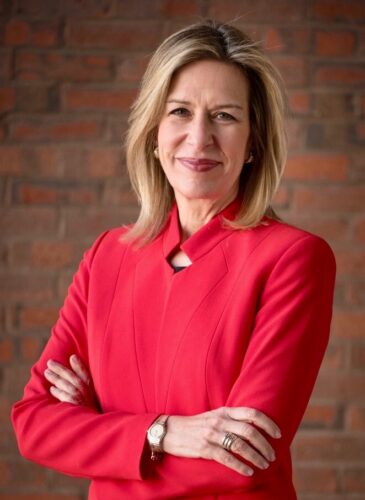
Elizabeth Sherwood-Randall
Former Deputy Secretary, U.S. Department of Energy; Distinguished Professor of the Practice, Georgia Institute of Technology; Senior Fellow, Belfer Center, Harvard Kennedy School
Elizabeth Sherwood-Randall is a Distinguished Professor at the Georgia Institute of Technology, with a joint appointment at its Strategic Energy Institute and the Nunn School of International Affairs. She is also a senior fellow at Harvard Kennedy School’s Belfer Center for Science and International Affairs.
Sherwood-Randall served from 2014 to 2017 as Deputy Secretary at the U.S. Department of Energy (DOE). In her capacity as deputy secretary, she was the Department’s chief operating officer, overseeing a budget of nearly $30 billion and a workforce of more than 113,000 people. She provided strategic direction for DOE’s broad missions in nuclear deterrence and proliferation prevention, science and energy, environmental management, emergency response, and grid security. While at DOE, she developed and implemented a new approach to fulfilling the agency’s growing responsibilities for grid resilience and emergency response to meet growing natural, physical, and cyber threats. She also led energy, climate, and nuclear security dialogues with global partners including China, the European Union, India, Japan, Korea, Saudi Arabia, and the United Arab Emirates.
From 2013 to 2014 Sherwood-Randall was the White House Coordinator for Defense Policy, Countering Weapons of Mass Destruction, and Arms Control, with responsibility for U.S. defense strategy, policy, and budget planning. She served from 2009 to 2013 as Special Assistant to the President and Senior Director for European Affairs at the National Security Council where she spearheaded the revitalization of America’s alliances and partnerships in Europe.
In the Clinton administration, Sherwood-Randall served as Deputy Assistant Secretary of Defense for Russia, Ukraine, and Eurasia from 1994 to 1996. During that time she led the effort to denuclearize three former Soviet states, for which she was awarded the Department of Defense Medal for Distinguished Public Service and the Nunn-Lugar Trailblazer Award. She began her career working for Senator Joe Biden as his chief advisor on foreign and defense policy. She has also worked atStanford University, the Council on Foreign Relations, and the Brookings Institution.
Sherwood-Randall attended college at Harvard University and then earned a doctoral degree as a Rhodes Scholar at Oxford University. She is married to Dr. Jeffrey B. Randall, a neurosurgeon, and they are the parents of two sons, one of whom is a senior majoring in neuroscience at Princeton.
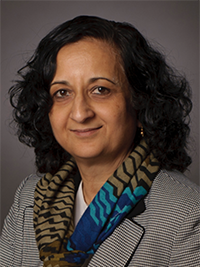
Anuradha Annaswamy
Founder and Director of the Active-Adaptive Control Laboratory, Department of Mechanical Engineering, MIT
Dr. Anuradha Annaswamy is Founder and Director of the Active-Adaptive Control Laboratory in the Department of Mechanical Engineering at MIT. Her research interests span adaptive control theory and its applications to aerospace, automotive, and propulsion systems as well as cyber physical systems such as Smart Grids, Smart Cities, and Smart Infrastructures. Her current research team of 15 students and post-docs is supported at present by the US Air-Force Research Laboratory, US Department of Energy, Boeing, Ford-MIT Alliance, and NSF. She has received best paper awards (Axelby; CSM), Distinguished Member and Distinguished Lecturer awards from the IEEE Control Systems Society (CSS) and a Presidential Young Investigator award from NSF. She is the author of a graduate textbook on adaptive control, co-editor of two vision documents on smart grids as well as two editions of the Impact of Control Technology report, and a member of the National Academy of Sciences Committee on modernizing the US Electric System. She is a Fellow of IEEE and IFAC. She is currently serving as the President of CSS.
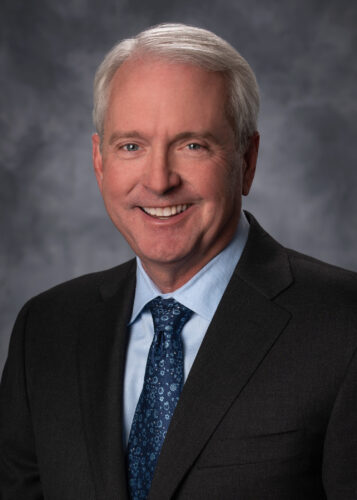
Ben Fowke
Chairman and Chief Executive Officer, Xcel Energy
Ben Fowke is Chairman and CEO of Xcel Energy, one of the largest public utilities in the country. The Fortune 500 company, headquartered in Minneapolis, serves parts of eight states, providing electricity to 3.6 million customers and natural gas service to 2 million customers.
Widely respected in the industry, Fowke serves as Chair of the Edison Electric Institute and sits on the boards of the Nuclear Energy Institute, Energy Insurance Mutual and Institute of Nuclear Power Operations. He is also a frequent contributor to important policy topics in Washington, D.C.
Fowke serves on the National Infrastructure Advisory Council (NIAC), representing the energy industry. The NIAC is a private-public partnership that advises governmental agencies on how to mitigate risk and ensure the integrity of the country’s critical infrastructure.
In recent years, Fowke testified before three Senate committees, providing his expertise on the industry’s cyber security preparedness, on Xcel Energy’s industry-leading Unmanned Aircraft System program and the importance and limitations of battery storage solutions.
Fowke has also testified before Congress about the importance of hiring military veterans in the private sector following their service to our country. Xcel Energy has executed on aggressive hiring goals, ensuring that 10 percent of our new outside hires are military veterans. Fowke was honored with the Responsible CEO of the Year award from Corporate Responsibility magazine for Xcel Energy’s efforts to recruit and retain military veterans.
Fowke serves on the board of directors for Securian Financial. He is also active on several industry and community boards, including the Minnesota Business Partnership which he chairs, and served as co-chair of the 2017 Greater Twin Cities United Way campaign with his wife, Kathleen. He and chosen as the 2018 Executive of the Year by Minneapolis-St. Paul Business Journal and the recipient of the 2018 Distinguished Citizen Award from the Northern Star Council of the Boy Scouts of America.
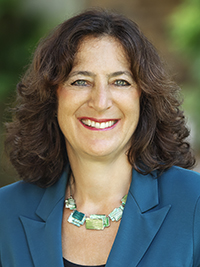
Andrea J. Goldsmith
Dean, School of Engineering and Applied Science; Arthur LeGrand Doty Professor of Electrical Engineering, Princeton University
Andrea J. Goldsmith is the Dean of Engineering and Applied Science and the Arthur LeGrand Doty Professor of Electrical Engineering at Princeton University. She was previously the Stephen Harris Professor of Engineering and Professor of Electrical Engineering at Stanford University, where she is now Harris Professor Emerita.
Her research interests are in information theory, communication theory, and signal processing, and their application to wireless communications, interconnected systems, and neuroscience. She founded and served as Chief Technical Officer of Plume WiFi (formerly Accelera, Inc.) and of Quantenna (QTNA), Inc., and she currently serves on the Board of Directors for Medtronic (MDT) and Crown Castle Inc. (CCI). She is also the founding Chair of the IEEE Board of Directors Committee on Diversity, Inclusion, and Ethics, and chairs several committees in the NAE. Dr. Goldsmith is a member of the National Academy of Engineering and the American Academy of Arts and Sciences, a Fellow of the IEEE and of Stanford, and has received several awards for her work, including the Marconi Prize, the IEEE Sumner Technical Field Award, and the Silicon Valley/San Jose Business Journal’s Women of Influence Award. She is author of the book “Wireless Communications” and co-author of the books “MIMO Wireless Communications” and “Principles of Cognitive Radio,” all published by Cambridge University Press, as well as an inventor on 29 patents. She received the B.S., M.S., and Ph.D. degrees in Electrical Engineering from U.C. Berkeley.
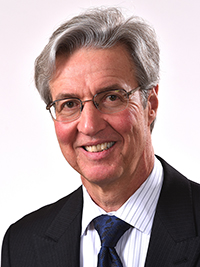
Ralph Izzo
Chairman, President and Chief Executive Officer, PSEG
Ralph Izzo was elected chairman and chief executive officer of Public Service Enterprise Group Incorporated (PSEG) in April 2007. He was named the company’s president and chief operating officer and a member of the board of directors of PSEG in October 2006. Previously, Mr. Izzo was president and chief operating officer of Public Service Electric and Gas Company (PSE&G). He joined PSEG in 1992.
Mr. Izzo is a well-known leader within the utility industry, as well as the public policy arena. He is frequently asked to testify before Congress and speak to organizations on matters pertaining to national energy policy.
Mr. Izzo’s career began as a research scientist at the Princeton Plasma Physics Laboratory, performing numerical simulations of fusion energy experiments. He has published or presented more than 35 papers on magnetohydrodynamic modeling. Mr. Izzo received his Bachelor of Science and Master of Science degrees in mechanical engineering and his Doctor of Philosophy degree in applied physics from Columbia University. He also received a Master of Business Administration degree, with a concentration in finance, from the Rutgers Graduate School of Management.
Mr. Izzo is the chair of the Nuclear Energy Institute (NEI) and a member of the U.S. Department of Energy’s Fusion Energy Sciences Advisory Committee. In addition, he is on the board of directors for the Edison Electric Institute (EEI), Nuclear Electric Insurance Limited (NEIL), the New Jersey Chamber of Commerce, and the New Jersey Performing Arts Center.
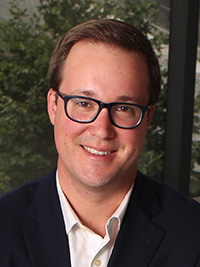
Jesse Jenkins
Assistant Professor of Mechanical and Aerospace Engineering and the Andlinger Center for Energy and the Environment, Princeton University
Jesse Jenkins is an assistant professor at Princeton University with a joint appointment in the Department of Mechanical and Aerospace Engineering and the Andlinger Center for Energy and Environment. He is also an affiliated faculty with the Center for Policy Research in Energy and Environment at the Woodrow Wilson School of Public and International Affairs and an associated faculty at the Princeton Environmental Institute. Jesse is a macro-scale energy systems engineer with a focus on the rapidly evolving electricity sector, including the transition to zero-carbon resources, the proliferation of distributed energy resources, and the role of electricity in economy-wide decarbonization. He leads the Princeton ZERO Lab – the Zero carbon Energy systems Research and Optimization Laboratory — which conducts research to improve decision-making to accelerate rapid, affordable, and effective transitions to net-zero carbon energy systems.
Jesse completed a PhD in Engineering Systems (’18) and MS in Technology and Policy (’14) at the Massachusetts Institute of Technology and a BS in Computer and Information Science (’06) at the University of Oregon. He worked previously as a postdoctoral Environmental Fellow at the Harvard Kennedy School and the Harvard University Center for the Environment, a researcher at the MIT Energy Initiative, a research fellow at Argonne National Laboratory, the Director of Energy and Climate Policy at the Breakthrough Institute, and a Policy and Research Associate at Renewable Northwest.
Jesse has published peer-reviewed papers in the journals Joule, The Energy Journal, Economics of Energy and Environmental Policy, Applied Energy, Nuclear Technology, Energy Policy, and WIREs: Climate Change. His work has been supported by competitive fellowships from the National Science Foundation, MIT Energy Initiative, Martin Family Society for Fellows in Sustainability, and Harvard University Center for the Environment. Jesse has given seminars to executives at global electric utility and energy technology companies, presented his work to staff and commissioners of the Federal Energy Regulatory Commission and state-level regulators and policy makers across the country. He is also a member of the National Academies of Science, Engineering and Medicine “Committee on Accelerating Decarbonization in the UnitedStates: Technology, Policy, and Societal Dimensions,” and he has delivered invited testimony before the United States Senate Committee on Energy and Natural Resources and the United States House Select Committee on the Climate Crisis. His research is regularly featured in media outlets including the New York Times, Wall Street Journal, Washington Post, and National Public Radio.
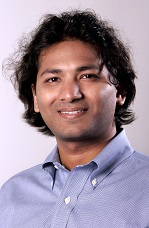
Prateek Mittal
Associate Professor of Electrical Engineering, Princeton University
Prateek Mittal is an Associate Professor of Electrical Engineering at Princeton University. His research aims to design secure and privacy-preserving systems. A unifying theme in his work is to manipulate and exploit structural properties of information and networked systems to solve security and privacy challenges facing our society. His research has applied this distinct approach to widely-used operational systems, and has used the resulting insights to influence system design and operation, including that of the Tor network and the Let’s Encrypt certificate authority, directly impacting hundreds of millions of users.
He is the recipient of faculty research awards from Intel, IBM, Google, Cisco, Facebook, Siemens, Qualcomm, the NSF CAREER award (2016), the ONR YIP award (2018), the ARO YIP award (2018), Princeton University’s E. Lawrence Keyes, Jr. award for outstanding research and teaching (2017), and Princeton innovation award (2015, 2017, 2018). He has received several outstanding paper awards, including at ACM CCS, and has been named on the Princeton Engineering Commendation List for Outstanding Teaching five times. His work on securing Internet domain validation was awarded the runnerup for the 2020 Casper Bowden Award for Outstanding Research in Privacy Enhancing Technologies. He has served on the editorial board of the Privacy Enhancing Technologies Symposium (PETS), the steering committee of the USENIX Security and AI Networking Conference (ScAINet), and has co-chaired the workshops on Hot Topics in Privacy Enhancing Technologies (HotPETS) and Free and Open Communications on the Internet (FOCI).
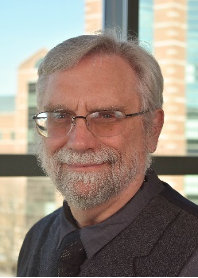
David Nicol
Director of the Information Trust Institute and Herman M. Dieckamp Endowed Chair in Engineering, University of Illinois at Urbana-Champaign
Prof David M. Nicol is the Herman M. Dieckamp Endowed Chair of Engineering at the University of Illinois at Urbana‐Champaign, and a member of the Department of Electrical and Computer Engineering. He also serves as the Director of the Information Trust Institute (iti.illinois.edu), and the Director of the Advanced Digital Sciences Center (Singapore). He is PI for two national centers for infrastructure resilience: the DHS‐funded Critical Infrastructure Resilience Institute (ciri.illinois.edu), and the DoE funded Cyber Resilient Energy Delivery Consortium (cred‐c.org); he is also PI for the Boeing Trusted Software Center, and co-PI for the NSA‐funded Science of Security lablet.
Prior to joining UIUC in 2003 he served on the faculties of the computer science departments at Dartmouth College (1996‐2003), and before that the College of William and Mary (1987‐1996). He has won recognition for excellence in teaching at all three universities. His research interests include trust analysis of networks and software, analytic modeling, and parallelized discrete‐event simulation, research which has led to the founding of startup company Network Perception, and election as Fellow of the IEEE and Fellow of the ACM. He is the inaugural recipient of the ACM SIGSIM Outstanding Contributions award, and co‐author of the widely used undergraduate textbook “Discrete‐Event Systems Simulation”.
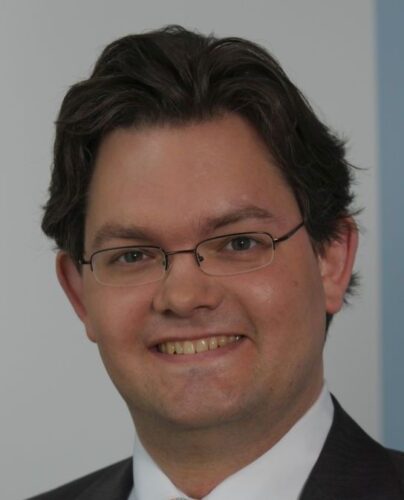
Martin Otto
Head of Cybersecurity Research Group, Siemens Corporate Technology
Dr. Martin Otto is currently head of the research group “Cybersecurity Service Innovation” at Siemens Corporation, Siemens Technology, in Princeton, NJ, USA. His mission is to provide Siemens business units with technology solutions and innovations that enable Siemens to provide state of the art security services to customers. A specific focus is on helping Siemens customers that operate energy systems and other parts of nations’ critical infrastructure to detect, react to, mitigate, and otherwise defend against cyber attacks.
Dr. Martin Otto is a researcher and research manager with Siemens Technology, Siemens’ central R&D organization, since 2005. He held positions both in the US and in Germany, among them as global Head of the Siemens CERT (Computer Emergency Response Team). Before that he acquired a Ph.D. in Computer Science in 2005 from Paderborn University, Paderborn, Germany, working on fault attack side channels on smart cards, a topic that got him hooked on the field of IT and Cybersecurity, a field that has not lost its fascination ever since.
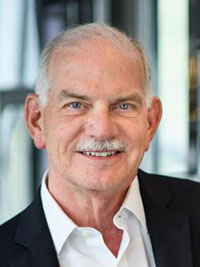
H. Vincent Poor
Michael Henry Strater University Professor of Electrical Engineering, Princeton University
H. Vincent Poor is the Michael Henry Strater University Professor of Electrical Engineering at Princeton University, where he is engaged in research in wireless networks, energy systems, and related fields. During 2006-16 he served as the dean of Princeton’s School of Engineering and Applied Science. He has also held visiting appointments at a number of other universities, including most recently at Berkeley and Cambridge. He is a member of the National Academy of Engineering and the National Academy of Sciences, and a foreign member of the Royal Society and other national and international academies. Recent recognition of his work includes the 2017 IEEE Alexander Graham Bell Medal and honorary doctorates from a number of universities in Asia, Europe and North America. Among his publications is the forthcoming book Advanced Data Analytics for Power Systems (Cambridge University Press, 2021).
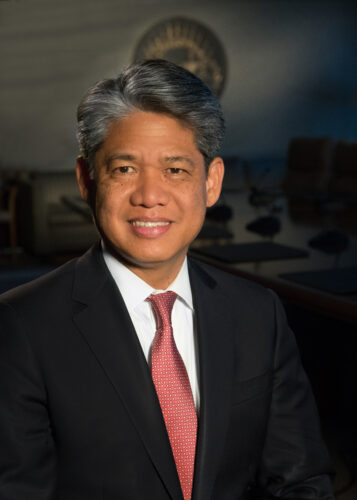
Gil C. Quiniones
President and Chief Executive Officer, New York Power Authority
Gil C. Quiniones has served as President and Chief Executive Officer of the New York Power Authority (NYPA), the nation’s largest state-owned electric utility, since 2011.
Mr. Quiniones guides the nation’s largest state-owned electric utility, with more than $3 billion in annual revenue with 16 generation facilities totaling over 7,000 megawatts and over 1,400 circuit-miles of transmission lines (one-third of the high-voltage transmission in New York State). Its energy services and customer solutions business accounts for more than $250 million annually.
Mr. Quiniones also oversees a 524-mile New York State main canal system, including the legendary Erie Canal, with many smaller feeder canals, 20 upland water reservoirs and hundreds of miles of waterside trails and has the launched “Reimagine the Canals initiative,” which has been designed to preserve the heritage of the Canal and promote its long-term sustainability.
Guiding the development and implementation of NYPA’s Strategic Vision 2020, Mr. Quiniones is technologically and culturally transforming 90-year old public utility that is taking a front line position in Gov. Andrew Cuomo’s battle against climate change, seeking to be the first digital utility, end to end, played a pivotal role in re-electrifying Puerto Rico after hurricane Maria, and became the first North American utility to win the prestigious ISO 55001 International Asset Management certification.
As a well-known thought leader in the electric utility industry, Mr. Quiniones is focusing on the evolution of the post-COVID-19 energy market and championing inclusion and diversity in the utility workplace, as NYPA became the first utility energy company in the country to partner with the American Association of Blacks in Energy to increase African American representation.
Mr. Quiniones is Co-Chair of the Board of Directors of the Alliance to Save Energy and serves on the Boards of the New York State Energy Research and Development Authority and the Large Public Power Council. He is also NYPA’s principal representative to the American Public Power Association.
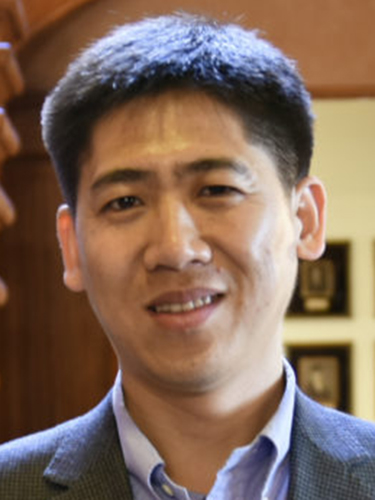
Z. Jason Ren
Acting Center Director and Associate Director for Research; Professor of Civil and Environmental Engineering and the Andlinger Center for Energy and the Environment, Princeton University
Jason Ren is the acting director for the Andlinger Center for 2020 and has been the associate director for research since 2019. He is a professor in the Department of Civil and Environmental Engineering and the Andlinger Center for Energy and the Environment, Jason is recognized as an international leader in environmental bioengineering with broad research areas linked to the “water-energy nexus.” He specializes in carbon valorization and energy recovery from waste streams. His lab analyzes reaction mechanisms and develop technologies for resource recovery during wastewater treatment, water desalination, and carbon capture processes. His goal is to enable a low-carbon circular economy with zero waste.
videos
Keynote: In the Service of Sustainability: The Case for an Integrated Energy, Climate, and Security Agenda
Panel: Security challenges for a grid in transition
Leading the way to a 100% clean electricity system: A conversation with electric utility CEOs
2019
The Andlinger Center for Energy and the Environment and Princeton E-ffiliates Partnership hosted their eighth Annual Meeting on Friday, November 8, 2019 at Princeton University. Read more about the event here.
The 2019 Annual Meeting was a full-day event that convened corporate leaders, researchers, policy experts, faculty, and students from across the sphere of energy and the environment. The meeting explored ways to leverage technological advances, data science, and policy to accelerate resource recovery and carbon dioxide utilization with the goal of working towards economy-wide decarbonization.
Phil Sharp, a former U.S. representative and chair of the House Subcommittee on Energy and Power, in the morning keynote address advocated for a carbon tax, noting that policy is one of the most effective ways to signal to the market the need for emissions reductions and to successfully achieve them.
David Babson, a program director at the U.S. Department of Energy’s Advanced Research Projects Agency, said that by the year 2100, mitigating climate change will require the annual removal of 20 gigatons of carbon dioxide from the atmosphere, more than the current emissions of the U.S. trucking, oil and gas industries. To do this, society needs to make carbon dioxide removal and utilization profitable.
agenda
Andlinger Center for Energy and the Environment
2019 Annual Meeting
Sponsored by Princeton E-ffiliates Partnership
Agenda for Friday, November 8, 2019
All events are in the ANDLINGER CENTER FOR ENERGY AND THE ENVIRONMENT, Maeder Hall Auditorium, unless noted.
• Andlinger Center for Energy and the Environment, Maeder Hall, 92 Olden Street (corner of Olden Street and Prospect Avenue), Princeton, NJ
• Friend Center, 35 Olden Street (corner of Olden and William Streets), Princeton, NJ
Registration and Breakfast
8:00 AM – 9:00 AM
Welcome
9:00 AM – 9:10 AM
Barry Rand, Associate Director for External Partnerships, Andlinger Center for Energy and the Environment; Associate Professor of Electrical Engineering and the Andlinger Center for Energy and the Environment
Yueh-Lin (Lynn) Loo, Director, Andlinger Center for Energy and the Environment; Theodora D. ’78 and William H. Walton III ’74 Professor in Engineering; Professor of Chemical and Biological Engineering
Keynote – The emerging and shifting climate debate in Washington
9:10 AM – 10:00 AM
The Honorable Phil Sharp, Former Member, U.S. House of Representatives; Former Chair, Energy and Power Subcommittee
In conversation with Judi Greenwald, Principal, Greenwald Consulting, LLC; Non-resident Fellow, Andlinger Center for Energy and the Environment
Break
10:00 AM – 10:30 AM
Panel Discussion: Data science at the energy-water nexus
10:30 AM – 12:00 PM
Panelists will explore the nexus between energy and water, and big data, such as how energy and water are intertwined and how data science can help advance research and development and business development in renewable energy, waste to energy, carbon valorization, water resource recovery, and energy and water infrastructure.
Jason Ren, Moderator, Associate Director for Research, Andlinger Center for Energy and the Environment; Professor of Civil and Environmental Engineering and the Andlinger Center for Energy and the Environment
Mengdi Wang, Associate Professor of Operations Research and Financial Engineering
David Babson, Program Director, Advanced Research Projects Agency–Energy (ARPA–E), U.S. Department of Energy
Saman Farid, Partner, Head of US Team, Baidu Ventures
Jeff Moeller, Unit Leader, Research Services, The Water Research Foundation
Qilin Li, Professor of Civil and Environmental Engineering; Co-Director, Nanotechnology-Enabled Water Treatment (NEWT) Center, Rice University
Lunch
Poster Session
12:00 – 1:45 PM
FRIEND CENTER, Convocation Room and lobby
Featured Discussion: One half terawatt of photovoltaic: How did we get here and where do we go next?
2:00 PM – 3:00 PM
Gregory Nemet, Professor of Public Affairs, La Follette School of Public Affairs, University of Wisconsin-Madison
In conversation with Audrey Lee, Vice President, Energy Services, Sunrun
Keynote – Decarbonizing our world: moving beyond renewables
3:00 PM – 3:45 PM
David Eaglesham, Entrepreneur-in-Residence, Breakthrough Energy Ventures
Panel Discussion: Carbon capture utilization: turning a pollutant into a product
3:45 PM – 5:00 PM
This international panel consists of experts in the science, technology, and market introduction of carbon dioxide utilization – the introduction of CO2 as a feedstock for industrially attractive products. Technological hurdles on the way to market at both the discovery level and at the scale-up level will be discussed. Panelists will also explore the challenges of introducing CO2-based products to existing and new markets in the fuel, chemistry, and materials sectors.
Andrew Bocarsly, Moderator, Professor of Chemistry
Ah-Hyung (Alissa) Park, Lenfest Chair in Applied Climate Science, Director of Lenfest Center for Sustainable Energy, The Earth Institute; Associate Professor, Department of Earth and Environmental Engineering and Department of Chemical Engineering, Columbia University
Gay Wyn Quance, CEO and President, Solid Carbon Products, LLC.
Peter Styring, Director, UK Centre for Carbon Dioxide Utilization; Professor of Chemical Engineering and Chemistry, The University of Sheffield
Poster Awards Announcements with Reception
5:00 PM – 6:00 PM
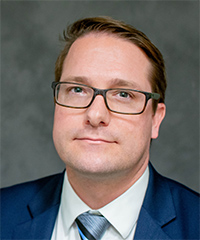 David Babson
David Babson
Program Director, Advanced Research Projects Agency – Energy
U.S. Department of Energy
David Babson is a program director for the Advanced Research Projects Agency – Energy (ARPA-E) at the U.S. Department of Energy (DOE), where he focuses on bioenergy, agriculture, and carbon dioxide (CO2) management systems innovation. Before joining ARPA-E, Babson was the senior advisor for renewable energy, natural resources, and the environment to the chief scientist at the U.S. Department of Agriculture. He led research and development coordination efforts on carbon management, climate resiliency, sustainability, agricultural systems innovation, bioenergy, and biotechnology. Prior to that role, he was a technology manager in DOE’s Bioenergy Technologies Office (BETO), where he oversaw projects for its Conversion Program and worked to understand how to leverage new technologies to advance the emerging bioeconomy and address global energy challenges and climate change.
Prior to joining the DOE, Babson worked as a senior fuels engineer at the Union of Concerned Scientists and as an American Association for the Advancement of Science (AAAS) Science and Technology Policy Fellow at the U.S. Environmental Protection Agency. He held postdoctoral appointments at the University of Minnesota’s Biotechnology Institute and the U.S. Naval Research Laboratory. He has a Ph.D. in chemical and biochemical engineering from Rutgers University and a B.S.E. in chemical engineering from the University of Massachusetts Amherst.
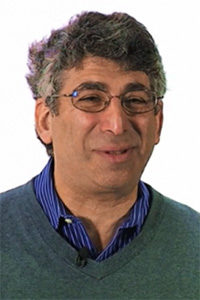 Andrew Bocarsly
Andrew Bocarsly
Professor of Chemistry
Andrew Bocarsly received his B.S. jointly in chemistry and physics from UCLA in 1976, and his Ph.D. in chemistry from Massachusetts Institute of Technology (MIT) in 1980. He has been a member of the Chemistry Department faculty for 39 years and is affiliated with Princeton University’s Institute for the Science and Technology of Materials (PRISM), Princeton Environmental Institute, and the Andlinger Center for Energy and the Environment. Bocarsly has published over 225 papers in peer-reviewed journals and co-authored over a dozen patents. His research is focused on electrochemistry and photoelectrochemistry for the conversion of carbon dioxide to organic fuels and feedstocks; new materials for electrochemistry; cyanogel sol-gel processing; and molecule-based multielectron photoinduced charge transfer processes.
Bocarsly serves as a consultant and contractor to various alternate energy companies. He co-founded Liquid Light Inc., a company formed to commercialize the formation of organic commodity chemicals from carbon dioxide using alternate energy sources. He has received an Alfred P. Sloan Fellowship, the Sigma Xi (Princeton Section) Science Educator Award, and the American Chemical Society-Exxon Solid State Chemistry award. He has served on the advisory board for the Journal of Physical Chemistry Letters, has edited a volume for Structure and Bonding in the area of fuel cells and batteries, and served as the electrochemistry editor for Methods in Materials Research. He currently sits on the editorial advisory board of Journal of CO2 Utilization, and the international advisory board of the International Conference on Carbon Dioxide Utilization. He is a fellow of the American Scientific Affiliation.
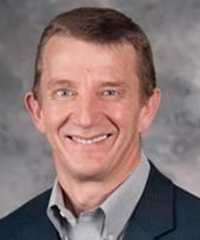
David Eaglesham
Entrepreneur in Residence
Breakthrough Energy Ventures
David Eaglesham is an entrepreneur-in-residence at Breakthrough Energy Ventures, the investment arm of Breakthrough Energy. Breakthrough Energy aims to develop energy technologies to enable a high standard of living globally without contributing to climate change, and is backed by Bill Gates, Jeff Bezos, Richard Branson, Michael Bloomberg, among others. Eaglesham has over three decades of experience developing and commercializing technologies. Eaglesham was the CEO of Pellion Technologies, a Boston-based start-up that commercialized a 1,000Wh/l next-generation battery. In his early career in 1988, he joined Bell Labs, where he worked on semiconductor deposition techniques and doping, and became director of electronic device research. Eaglesham later worked at Lawrence Livermore National Laboratory as chief technologist and at Applied Materials as director of advanced technologies. He was the chief technology officer of First Solar, a global provider of photovoltaic solar systems, where he helped grow revenues from $50 million to $3.5 billion. He is a fellow of the American Physical Society. He was named Outstanding Young Investigator by the Materials Research Society (MRS) in 1994, and was MRS president in 2005. Eaglesham earned a Ph.D. in physics from the University of Bristol and achieved tenure as a lecturer at Liverpool University.
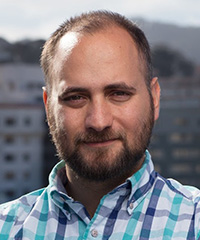 Saman Farid
Saman Farid
Partner, Head of US Team
Baidu Ventures
Saman Farid is a passionate supporter of early-stage startups. He has built three companies in the areas of e-commerce, IP television, and logistics management, and faced the challenges of building, focusing, and scaling a company. After two exits, Farid started Comet Labs, a fund and incubator focused on AI and machine learning, through which he invested in nearly 50 companies such as Airmap, Ripcord, Abundant Robotics, Cobalt Robotics, 3Scan, Saleshero, Otosense, and more.
Farid now leads U.S. investments at Baidu Ventures, where, in additional to capital, he is leveraging Baidu Ventures’ considerable resources in data-sets, technical talent, and domain expertise in an effort to turbocharge the companies in which he invests. Farid previously spent 15 years in China, and has held positions at Honeywell, Verizon, Deloitte Consulting, and Microsoft in roles ranging from research and development to operations optimization. He received a B.S.E. from The Cooper Union and a M.B.A. from Tsinghua University and MIT.
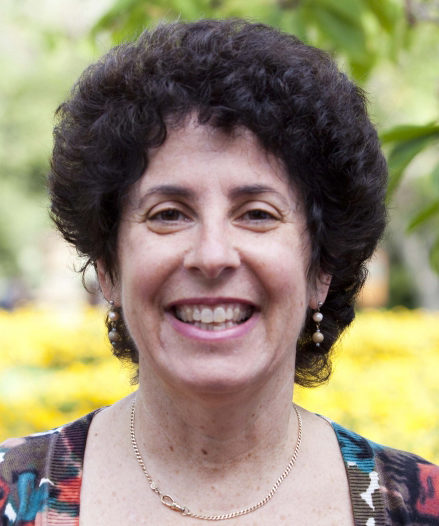 Judi Greenwald
Judi Greenwald
Principal, Greenwald Consulting LLC
Non-Resident Fellow, Andlinger Center for Energy and the Environment
Judi Greenwald is the principal of Greenwald Consulting LLC, providing energy and environmental expert advice, strategic planning, and policy analysis to clients. Greenwald has over 35 years of experience working on energy and environmental policy. In 2018, she was an inaugural Gerhard R. Andlinger Visiting Fellow in Energy and the Environment, and now continues her involvement as a non-resident fellow. Until 2017, Greenwald was the deputy director for climate, environment, and energy efficiency in the U.S. Department of Energy’s (DOE) Office of Energy Policy and Systems Analysis. In this capacity, she oversaw technical, economic and policy analysis related to climate mitigation and resilience, environmental protection, and energy efficiency. Greenwald also served as the senior climate advisor to the Secretary of Energy. Prior to joining the DOE, Greenwald worked for 14 years at the Center for Climate and Energy Solutions (formerly the Pew Center on Global Climate Change), and served on the professional staff of the U.S. Congress Energy and Commerce Committee.
Throughout her career, Greenwald served in advisory roles at numerous governmental and non-governmental organizations, including the Electric Power Research Institute, the Regional Greenhouse Gas Initiative, the California Market Advisory Committee, the Western Climate Initiative, the Midwest Greenhouse Gas Accord Advisory Group, and the White House Climate Change Task Force. Greenwald received a B.S.E cum laude from Princeton University, and an M.A. in science, technology and public policy from The George Washington University.
 Audrey Lee
Audrey Lee
Vice President, Energy Services
Sunrun
Audrey Lee is vice president of energy services at Sunrun, where she deploys and aggregates home solar, batteries, and other energy services to serve residential customers, utilities, and grid operators in creating a more affordable, clean, reliable electricity grid. She leads grid services, advanced product, and data science teams at Sunrun. She also serves on the National Institute of Standards and Technology’s Smart Grid Advisory Committee.
Previously, Lee built the analytics and operations platform at Advanced Microgrid Solutions to optimize a 50 MW fleet of customer-sited batteries as a virtual power plant in Southern California. Prior to that, Lee led policy and analysis at the California Public Utilities Commission President’s office, Harvard University, U.S. Department of Energy, and the International Energy Agency. She holds a Ph.D. in electrical engineering from Princeton University and a B.S. in applied physics from Caltech.
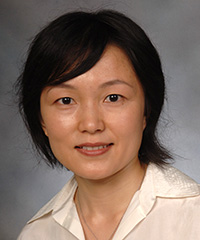 Qilin Li
Qilin Li
Professor of Civil and Environmental Engineering, Chemical and Biomolecular Engineering, and Materials Science and Nanoengineering, Rice University
Qilin Li is a professor of civil and environmental engineering, chemical and biomolecular engineering, and materials science and nanoengineering at Rice University. Li received her B.S.E. in environmental engineering from Tsinghua University in Beijing, China, her M.S. and Ph.D. in environmental engineering from University of Illinois at Urbana-Champaign, and her postdoctoral training at Yale University. Her research focuses on advanced technologies for water and wastewater treatment and reuse, environmental nanotechnology, novel desalination methods, environmental fate and transport of contaminants, and environmental impact of nanotechnology.
Li is a Fellow of the International Water Association (IWA), and served as the chair for the IWA Nano and Water Specialist Group Managing Committee. She serves as the associate director for research for the National Science Foundation’s Nanosystems Engineering Research Center for Nanotechnology Enabled Water Treatment (NEWT), as associate editor of Water Research, and as a member of the Environmental Engineering Committee of the U.S. Environmental Protection Agency’s Science Advisory Board. She also serves on the editorial board of Frontier of Environmental Science and Engineering.
 Yueh-Lin (Lynn) Loo
Yueh-Lin (Lynn) Loo
Director, Andlinger Center for Energy and the Environment
Theodora D. ’78 and William H. Walton III ’74 Professor in Engineering
Professor of Chemical and Biological Engineering
Yueh-Lin (Lynn) Loo is director of the Andlinger Center for Energy and the Environment and the Theodora D. ’78 and William H. Walton III ’74 Professor in Engineering. Her research interests lie in developing and deploying clean energy technologies. In her lab, Loo processes and develops materials for lightweight and flexible solar cells. She has developed a self-powered “smart” window and co-founded a startup, Andluca Technologies, to commercialize the technology to decrease energy consumption and increase occupant comfort in buildings.
Loo received her Ph.D. from Princeton University, and joined the faculty in 2007 after starting her career at the University of Texas at Austin. As the associate director of external partnerships at the Andlinger Center, she launched and led Princeton E-ffiliates Partnership.
Loo is the author of over 170 publications, has delivered more than 200 invited and plenary lectures globally, and serves on numerous international advisory boards. She is a fellow of the American Physical Society, a young global leader of the World Economic Forum, and a strategic advisor for NewWorld Capital Group. Her scholarly work has been recognized by numerous accolades, including Sloan and Beckman Fellowships, the John H. Dillon Medal from the American Physical Society, and the Alan P. Colburn Award from the American Institute of Chemical Engineers.
 Jeff Moeller
Jeff Moeller
Research Unit Leader
The Water Research Foundation
Jeff Moeller serves as a research unit leader at The Water Research Foundation (WRF) where he has worked since 1997. He directs two of the foundation’s four research units – Source and Receiving Waters, and Infrastructure. Prior to this role, Moeller served as WRF director of water technologies, where he managed the Leaders Innovation Forum for Technology (LIFT) Program. LIFT is a program that aims to accelerate innovation and put new technology into practice in the water industry.
Moeller has over 20 years of experience and previously worked as an engineer for Hazen and Sawyer designing water, stormwater, and wastewater systems. He has worked on water projects in the Mid-Atlantic and Southeastern United States, as well as internationally for Inter-American Development Bank-funded projects in Central America. He has led several major WRF research programs in wastewater, stormwater, decentralized systems, and sustainable integrated water management. He specializes in managing research and development, demonstration, and deployment of new water and wastewater processes and technologies. Moeller is currently the principal investigator for a U.S. DOE-funded project titled, “Hydrothermal Processing of Wastewater Solids (HYPOWERS).”
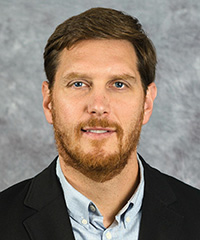 Gregory Nemet
Gregory Nemet
Professor of Public Affairs, La Follette School of Public Affairs
University of Wisconsin-Madison
Gregory Nemet is a professor at the University of Wisconsin–Madison in the La Follette School of Public Affairs. He teaches courses in energy systems analysis, policy analysis, and international environmental policy. Nemet’s research focuses on understanding the process of technological change and the ways in which public policy can affect it. He received his Ph.D. in energy and resources from the University of California, Berkeley. Nemet earned his B.A is in geography and economics from Dartmouth College. He received an Andrew Carnegie Fellowship in 2017 and used it to write a book on how solar PV provides a model for low-carbon innovation: “How Solar Energy Became Cheap”
(Routledge 2019).
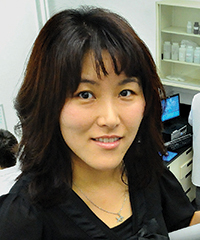 Ah-Hyung Alissa Park
Ah-Hyung Alissa Park
Lenfest Chair in Applied Climate Science
Director of Lenfest Center for Sustainable Energy, The Earth Institute
Associate Professor, Department of Earth and Environmental Engineering and Department of Chemical Engineering, Columbia University
Ah-Hyung Alissa Park is the Lenfest Chair in Applied Climate Science of Earth and Environmental Engineering and Chemical Engineering at Columbia University. She is also the Director of the Lenfest Center for Sustainable Energy at The Earth Institute. Her research focuses on sustainable energy conversion pathways with emphasis on integrated carbon capture, utilization andsStorage (CCUS). Current efforts include the fundamental studies of chemical and physical interactions of natural and engineered materials with CO2, such as the development of novel nano-scale hybrid materials for integrated CO2 capture and conversion.
Park earned bachelor’s and master’s degrees in chemical and biological engineering from the University of British Columbia, and a Ph.D. in chemical and biomolecular engineering from The Ohio State University. Park received a number of professional awards and honors including an NSF CAREER Award in 2009, James Lee Young Investigator Award in 2010. In 2017 and 2018 she was recognized with the American Chemical Society WCC Rising Star Award, Janette and Armen Avanessians Diversity Award at Columbia University, International Partnership Award for Young Scientists of Chinese Academy of Sciences, the American Chemical Society Energy and Fuels Division’s Emerging Researcher Award, PSRI Lectureship Award in Fluidization at the American Institute of Chemical Engineers, and U.S. C3E Research Award. Park was also the chair of the CO2 utilization area for the Mission’s Innovation Workshop on Carbon Capture, Utilization and Storage in September.
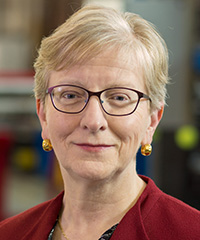 Gay Wyn Quance
Gay Wyn Quance
CEO and Co-founder
Solid Carbon Products, LLC
Gay Wyn Quance is the CEO and co-founder of Solid Carbon Products LLC, which makes carbon dioxide profitable by converting it into valuable, durable carbon products and pure water through a patented, low cost, catalytic converter process – the Noyes Process. This changes the economics of CO2 mitigation from a cost burden to a profit stream. Being able to profitably deploy CO2 as a feedstock means that the economics of carbon capture can be driven by profit. The Noyes Process is net carbon negative, and provides a positive environmental impact.
Quance has over 30 years of experience working with technology platforms and applications in the electric, gas, and water utilities markets. She implemented large-scale smart grid deployments for electrical utilities, enterprise resource management applications for nuclear power generating stations, and aluminum and paper manufacturers. She graduated with honors from Carleton
University with a Bachelor of Science in chemistry and geology.
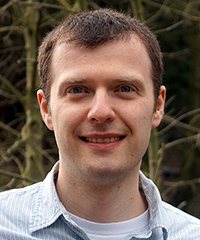 Barry Rand
Barry Rand
Associate Director for External Partnerships
Associate Professor of Electrical Engineering and the Andlinger Center for Energy and the Environment
Barry Rand is an associate professor of electrical engineering and the Andlinger Center for Energy and the Environment. Rand earned a B.S.E. in electrical engineering from The Cooper Union in 2001 and received M.A. and Ph.D. degrees in electrical engineering from Princeton University, in 2003 and 2007, respectively. From 2007 to 2013, he was at imec in Leuven, Belgium, ultimately as a principal scientist, researching the understanding, optimization, and manufacturability of thin-film solar cells. He has been a faculty member in the Department of Electrical Engineering and Andlinger Center for Energy and the Environment at Princeton University since 2013, and is currently an associate professor.
Rand’s research interests highlight the border between electrical engineering, materials science, chemistry, and applied physics, covering electronic and optoelectronic thin-films and devices. He has authored approximately 120 refereed journal publications, has 20 issued U.S. patents, and has received the 3M Nontenured Faculty Award in 2014, DuPont Young Professor Award and Defense Advanced Research Projects Agency Young Faculty Award in 2015, and Office of Naval Research Young Investigator Program Award in 2016.
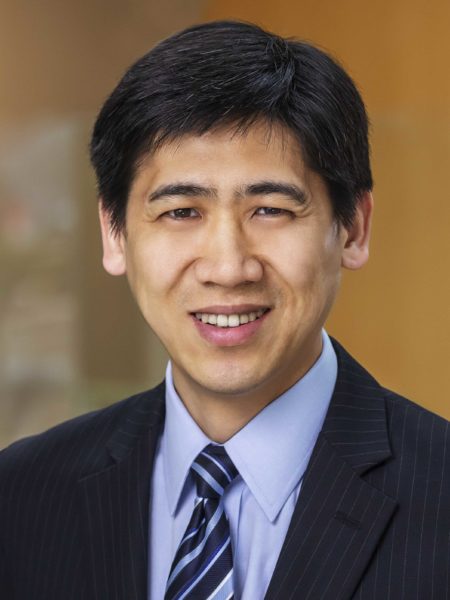 Jason Ren
Jason Ren
Associate Director for Research
Professor of Civil and Environmental Engineering and the Andlinger Center for Energy and the Environment
Jason Ren is a professor of civil and environmental engineering and the Andlinger Center for Energy and the Environment. Ren is recognized as an international leader in environmental bioengineering, with special expertise in energy harvesting from waste streams and in broad research areas linked to the “water-energy nexus.” Ren’s lab analyzes reaction mechanisms and develops processes for energy and resource recovery during environmental processes such as wastewater treatment, environmental remediation, and water desalination. His goal is to expand environmental engineering from pollution clean-up to sustainable development of energy and environmental systems, and to enable a circular economy. Ren received his Ph.D. in environmental engineering from Penn State University.
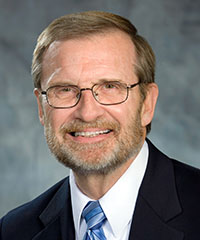 Phil Sharp
Phil Sharp
Former member, U.S. House of Representatives
Former chair, Energy and Power Subcommittee
Phil Sharp has a distinguished record across energy and environmental research and policy. During a 20-year congressional tenure as a member of the U.S. House of Representatives from Indiana, Sharp played key leadership roles in the development of landmark energy legislation, including the Energy Policy Act of 1992 and the Clean Air Act Amendments of 1990. After leaving Congress, Sharp was a member of the National Research Council’s Committee on Effectiveness and Impact of Corporate Average Fuel Economy (CAFÉ) standards and he chaired the Secretary of Energy’s Electric Systems Reliability Task Force. Sharp served as president of Resources for the Future from 2005 until 2016, the oldest D.C. think tank focused on environmental, energy, and natural resource issues.
Sharp has held advisory positions at several universities and organizations. He taught at Ball State University, Columbia University, and Harvard University’s Kennedy School of Government, and served as director of Harvard’s Institute of Politics. Sharp served on the board of directors of Duke Energy Corporation, the Energy Foundation, and Electric Power Research Institute. He was appointed to President Barack Obama’s Blue Ribbon Commission on America’s Nuclear Future and the National Academies’ Committee on America’s Climate Choices. In 2015, Sharp was awarded the James R. Schlesinger Medal for Energy Security by the Department of Energy.
Sharp currently serves on the board of directors of Eco-America, The Green Tech Fund, the Bipartisan Action Center, and on advisory boards of Columbia University’s Center for Global Energy Policy, Harvard University’s Institute of Politics, and the MIT Energy Initiative. Sharp earned a bachelor’s degree from Georgetown University’s School of Foreign Service and a Ph.D. in government from Georgetown University.
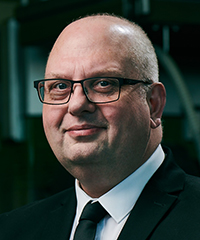 Peter Styring
Peter Styring
Director, UK Centre for Carbon Dioxide Utilization
Professor of Chemical Engineering and Chemistry, The University of Sheffield
Peter Styring is a professor of chemical engineering and chemistry and former head of the Department in Chemistry at the University of Sheffield, where he also holds the title of associate fellow in the understanding of politics. His current research spans the whole supply chain in carbon dioxide utilization from chemistry to process development and life cycle and techno-economic analysis through to policy development. Styring was a panel chair and co-author of a CCUS report written by the G20-backed organization, Mission Innovation. He has contributed to a number of policy report of The Royal Society on carbon capture and utilization, the most recent of which focused on synthetic fuels. He was awarded the 2007 IChemE Hanson Medal.
 Mengdi Wang
Mengdi Wang
Associate Professor of Operations Research and Financial Engineering
Mengdi Wang is an associate professor in the Department of Operations Research and Financial Engineering at Princeton University. She is associated faculty of the Andlinger Center for Energy and the Environment and also affiliated with the Department of Computer Science and Princeton University’s Center for Statistics and Machine Learning. Her research focuses on data-driven stochastic optimization and applications in machine and reinforcement learning. She received her Ph.D. in electrical engineering and computer science from MIT in 2013, where she was affiliated with the Laboratory for Information and Decision Systems and was advised by Dimitri P. Bertsekas.
Wang joined the faculty of Princeton University as an assistant professor in 2014. She received the Young Researcher Prize in Continuous Optimization of the Mathematical Optimization Society in 2016 (awarded once every three years), the Princeton SEAS Innovation Award in 2016, an NSF CAREER award in 2017, the Google Faculty Award in 2017, and the MIT Tech Review 35-Under-35 Innovation Award (China region) in 2018.
2018
The Andlinger Center for Energy and the Environment and Princeton E-ffiliates Partnership hosted their seventh Annual Meeting on Friday, November 9, 2018 at Princeton University, with New Jersey Governor Phil Murphy giving the keynote address. Read more about the event here.
New Jersey Governor Phil Murphy delivered the keynote address at the Nov 9 annual meeting at the Andlinger Center for Energy and the Environment. The governor declared that clean energy is central to New Jersey’s economic future and sketched his plan to bring a range of new technologies to the state.
Murphy cited the planned expansion of energy storage and community solar power, increased energy efficiency measures for the state’s utilities, and plans to approve enough wind energy to power 1.5 million homes and businesses by 2030.
The full-day meeting featured panel discussions on clean energy development and opportunities for industry-academic partnerships to help society transition to sustainable energy systems. Subjects included the development of wind energy, sustainable cements and low-carbon hydrogen production.
All events took place at Princeton University in Maeder Hall at the Andlinger Center for Energy and the Environment, unless otherwise noted.
Friday, November 9, 2018
8:00 a.m. – 9:00 a.m.
Registration and Breakfast
9:00 a.m. – 9:10 a.m.
Welcome
Mark Zondlo, Associate Director for External Partnerships, Andlinger Center for Energy and the Environment; Associate Professor of Civil and Environmental Engineering
Yueh-Lin (Lynn) Loo, Director, Andlinger Center for Energy and the Environment; Theodora D. ’78 and William H. Walton III ’74 Professor in Engineering; Professor of Chemical and Biological Engineering
9:10 a.m. – 9:30 a.m.
Governor’s Keynote Address
Phil Murphy, Governor of New Jersey
9:30 a.m. – 10:00 a.m.
Reflections on Governor Murphy’s Keynote Address, moderated by Mark Zondlo
10:00 a.m. – 10:30 a.m.
Break
10:30 a.m. – 11:00 a.m.
Accelerating Climate Action in the US, September 21, 2018 Conference recap
Judi Greenwald, Non-resident Fellow, Andlinger Center for Energy and the Environment; Principal, Greenwald Consulting LLC
How rapidly can the world’s energy system be decarbonized?
Eric Larson, Senior Research Engineer, Energy Systems Analysis Group, Andlinger Center for Energy and the Environment
11:00 a.m. – 12:00 p.m.
Panel Discussion: Global challenges to rapid, deep decarbonization
This panel discussion will explore critical questions of pace of decarbonization in relation to energy transitions by examining bottlenecks (industrial, economic, social and regulatory) that have the potential to constrain or slow the pace of change. Special attention will be given to the unique challenges and opportunities in China and India.
Chris Greig, Moderator, Gerhard R. Andlinger Visiting Fellow in Energy and the Environment; Director, Dow Centre for Sustainable Engineering Innovation; Director, University of Queensland Energy Initiative
Elizabeth Sherwood-Randall, Distinguished Professor of the Practice, Georgia Institute of Technology; Senior Fellow, Belfer Center, Harvard Kennedy School
Wayne Xu, Chief Technology Officer, National Institute of Clean and Low-Carbon Energy, China
Vijay Swarup, Vice President of Research and Development, ExxonMobil Research and Engineering Company
12:00 p.m. – 1:30 p.m.
Lunch
FRIEND CENTER, Convocation Room
1:30 p.m. – 3:30 p.m.
Industry-academic perspectives on energy technology RD&D: breakthrough opportunities, priorities, hurdles and big questions
Each topic consists of two ten-minute presentations followed by ten minutes of Q&A moderated by Darren Hammell, Gerhard R. Andlinger Visiting Fellow in Energy and the Environment; Founder and CEO of Princeton Power Systems
Topic 1: Offshore wind energy
Kris Ohleth, Senior Manager, Stakeholder Engagement, Ørsted North America
Marcus Hultmark, Associate Professor of Mechanical and Aerospace Engineering
Topic 2: Sustainable cements
Tom Schuler, President and CEO, Solidia Technologies, Inc.
Claire White, Assistant Professor of Civil and Environmental Engineering and the Andlinger Center for Energy and the Environment
Topic 3: Low-carbon hydrogen for fuels and chemicals
David Dankworth, Andlinger Center Visitor in Residence; Senior Scientific Advisor, ExxonMobil Research and Engineering Company
Paul Chirik, Edwards S. Sanford Professor of Chemistry
Topic 4: Microbial production of fuels and chemicals
Laurel Harmon, Vice President, LanzaTech
Jose Avalos, Assistant Professor of Chemical and Biological Engineering and the Andlinger Center for Energy and the Environment
3:30 p.m. – 3:45 p.m.
Break
3:45 p.m. – 4:30 p.m.
Panel Discussion: Getting low-carbon technologies to market and achieving scale
The moderator will frame this panel topic from an investors perspective, and the industry leaders who presented on Topics 1-4 will discuss the unique challenges of getting industries and consumers to adopt low-carbon technologies at the scales needed to meaningfully reduce greenhouse gas emissions.
Sean O’Sullivan, Moderator, Founder, SOSV
David Dankworth, Andlinger Center Visitor in Residence & Senior Scientific Advisor, ExxonMobil Research and Engineering Company
Laurel Harmon, Vice President, LanzaTech
Kris Ohleth, Senior Manager, Stakeholder Engagement, Ørsted North America
Tom Schuler, President and CEO, Solidia Technologies
4:30 p.m. – 6:00 p.m.
Poster Session & Reception

Phil Murphy
Governor of New Jersey
Philip Murphy took the oath of office as New Jersey’s 56th governor on January 16, 2018.
Since taking office, Governor Murphy has focused on making New Jersey a leader in both renewable energy and the fight against global climate change. As one of his first acts in office, he announced New Jersey’s planned re-entry into the Regional Greenhouse Gas Initiative. Under his leadership, New Jersey is also joining its fellow states on the Delaware River Basin Commission in supporting a permanent ban on fracking within the river’s watershed region.
Governor Murphy has initiated the creation of a new Energy Master Plan to point New Jersey to a 100 percent clean-energy economy by 2050. He has committed to making New Jersey a global leader in offshore wind, and has set the state on an ambitious path to having 3,500 MW of wind-generated electricity – enough to power 1.5 million homes – online by 2030. He also unveiled a proposal for New Jersey to create a new wind-energy research institute and workforce training center. Governor Murphy is also engaged in moving the state’s solar energy market forward, and has introduced an innovative community solar energy program.
The Governor also signed a law designed to prevent fossil-fuel drilling off the Jersey Shore, a direct response to the Trump Administration’s efforts to open the region to exploration.
From 2009 until 2013, Governor Murphy served as the United States Ambassador to The Federal Republic of Germany, appointed by President Barack Obama. Governor Murphy worked for over twenty years at Goldman Sachs.
Throughout his life, Governor Murphy has remained deeply engaged in civic life and philanthropy. In 2014, Governor and Mrs. Murphy founded New Start New Jersey, a “think tank” dedicated to seeking new policy directions to grow New Jersey’s economy and middle class. The Murphys partnered with the John J. Heldrich Center for Workforce Development at Rutgers University to create the New Start Career Network which specifically helps long-term unemployed New Jerseyans over age 45 get back into the workforce.
Governor Murphy is a graduate of Harvard University and The Wharton School of the University of Pennsylvania.
The Governor and his wife, Tammy Snyder Murphy, are the parents of four children: Josh, Emma, Charlie, and Sam. The family resides in Middletown, Monmouth County.
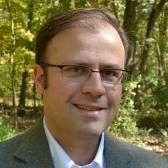
José L. Avalos
Assistant Professor of Chemical and Biological Engineering and the Andlinger Center for Energy and the Environment
José Avalos is an assistant professor in the Department of Chemical and Biological Engineering and the Andlinger Center for Energy and the Environment at Princeton University. He is also an associated faculty member in the Princeton Environmental Institute and the Department of Molecular Biology. His research focuses on the use of biotechnology to address challenges in renewable energy, sustainable manufacturing, the environment, and human health. His lab works primarily in metabolic engineering, synthetic biology, protein engineering, systems biology, and structural biology.
Avalos earned a B.E. in chemical engineering from Universidad Iberoamericana in Mexico City. He then received an MSc in biochemical research from Imperial College in London, and a Ph.D. in biochemistry and biophysics from Johns Hopkins University. He did postdoctoral research at The Rockefeller University in membrane biophysics; and at Massachusetts Institute of Technology, in the Department of Chemical Engineering, and the Whitehead Institute for Biomedical Research in metabolic engineering and synthetic biology. He has received several awards, including the Damon Runyon Cancer Research Fellowship, the Ruth L. Kirschstein National Research Service Award, the Alfred P. Sloan Foundation Research Fellowship Award in Computational and Evolutionary Molecular Biology, the Pew scholarship, and the NSF CAREER Award.
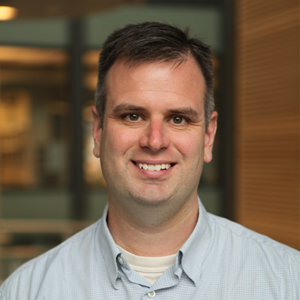
Paul Chirik
Edwards S. Sanford Professor of Chemistry
Paul Chirik joined the Princeton University faculty as the Edwards S. Sanford Professor of Chemistry in 2011 and served as the Associate Director for External Partnerships at the Andlinger Center for Energy and the Environment in 2015-2017. He is a pioneer in developing catalytic processes that rely on earth abundant transition metals, rather than more commonly used precious metals. His research group currently has collaborations with the pharmaceutical, petrochemical, fine and commodity chemical, and flavor and fragrance industries. He has published over 175 peer-reviewed papers and is an inventor on approximately 20 patents.
Chirik, a Philadelphia native, earned his B.S. in chemistry from Virginia Tech and his Ph. D. from Caltech. Following postdoctoral studies at MIT, he was appointed Assistant Professor of Chemistry and Chemical Biology at Cornell University in 2001 and was named the Peter J. W. Debye Professor of Chemistry in 2009. His research and teaching have been recognized with an Arthur C. Cope Scholar Award, the Blavatnik Award for Young Scientists, a Packard Fellowship in science and engineering, a Camille Dreyfus Teacher Scholar Award, and an NSF CAREER Award. He was recently recognized with the ACS Catalysis Lectureship for Excellence in Catalysis Science and the Presidential Green Chemistry Challenge Award by the United States Environmental Protection Agency. He has delivered over 300 lectures around the world and is currently the Editor-in-Chief of Organometallics.
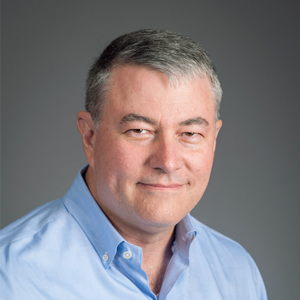
David C. Dankworth
Andlinger Center Visitor in Residence; Distinguished Scientific Advisor
ExxonMobil Strategic Corporate Research
David Dankworth is a Distinguished Scientific Advisor at ExxonMobil Strategic Corporate Research. His work is currently focused on strategies for long term development and deployment of natural gas conversion technologies. He is also a visiting research scholar and scientific portfolio advisor for ExxonMobil’s sponsored collaborative research programs at Princeton University’s Andlinger Center for Energy and the Environment.
In his management career, Dankworth has led a range of global technology groups within ExxonMobil, including heat transfer, combustion, energy conservation, catalytic cracking, and hydroprocessing. He also has played roles in operations as technical manager of the Ingolstadt refinery in Germany, and managed regional engineering support for refining in both Europe and Canada. He was manager of the global Refining Process Engineering division from 2009-2013, which supported research, operations, project development and commercialization of process technology for ExxonMobil refineries and licensing customers worldwide. Most recently, he was head of strategy for EM Research and Engineering Company, working at the interface between technology development and business strategies.
Dankworth is a chemical engineer, with degrees from Rice University (B.S. 1986) University of Cambridge (CPGS 87, Churchill Scholar) and Princeton (Ph.D. 91, Hertz Fellow). He is the inventor on over 20 U.S. and international patents. His continuing interests are in the areas of chemical reactor engineering, process intensification, global energy supply, corporate and industry strategy, and technical organization effectiveness.
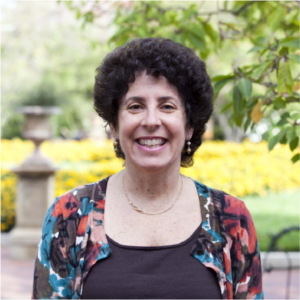
Judi Greenwald
Non-resident Fellow, Andlinger Center for Energy and the Environment; Principal, Greenwald Consulting LLC
Judi Greenwald is the principal of Greenwald Consulting LLC, providing energy and environmental expert advice, strategic planning, and policy analysis to clients. In 2018 she was an Inaugural Gerhard R. Andlinger Visiting Fellow at Princeton University’s Andlinger Center for Energy and the Environment. Until 2017, Greenwald was the deputy director for climate, environment, and energy efficiency in the U.S. Department of Energy’s (DOE’s) Office of Energy Policy and Systems Analysis. In this capacity, she oversaw technical, economic and policy analysis related to climate mitigation and resilience, environmental protection, and energy efficiency. Greenwald also served as a senior advisor to the Secretary for Climate Change. She has 35 years of experience working on energy and environmental policy. Prior to joining DOE, Greenwald worked for 14 years at the Center for Climate and Energy Solutions (formerly the Pew Center on Global Climate Change), most recently serving as the vice president for technology and innovation. There she oversaw the analysis and promotion of technology, business, state, regional and federal innovation in the major sectors that contribute to climate change, including transportation, electric power, buildings, and industry.
Greenwald co-convened the National Enhanced Oil Recovery Initiative, was a member of the advisory council of the Electric Power Research Institute, and has served on several National Academy of Sciences panels studying vehicles and fuels. She also served on the resource panel for the northeast Greenhouse Gas Initiative, the California Market Advisory Committee, as a policy advisor to the Western Climate Initiative, and the Midwest Greenhouse Gas Accord Advisory Group. Prior to her work at the Pew Center, Greenwald served as a senior advisor on the White House Climate Change Task Force and as a member of the professional staff of the U.S. Congress Energy and Commerce Committee, where she worked on the 1990 Clean Air Act Amendments, the 1992 Energy Policy Act, and a number of other energy and environmental statutes. Earlier in her career, she worked as a congressional fellow with then-Senate Majority Leader Robert C. Byrd, an environmental scientist with the U.S. Nuclear Regulatory Commission, and an environmental engineer and policy analyst at the Environmental Protection Agency. Greenwald received a B.S. in engineering cum laude from Princeton University, and an M.A. in science, technology and public policy from George Washington University.
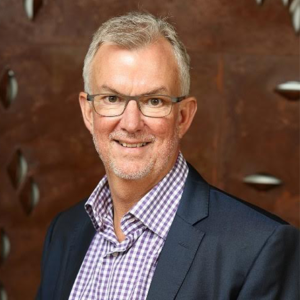
Chris Greig
Gerhard R. Andlinger Visiting Fellow in Energy and the Environment, Andlinger Center for Energy and the Environment; Director, Dow Centre for Sustainable Engineering Innovation; Director, UQ Energy Initiative
Chris Greig leads both the Dow Centre for Sustainable Engineering Innovation and the UQ Energy Initiative. At Princeton, he is leading the Rapid Switch initiative, which looks at opportunities to accelerate low-carbon energy transitions by anticipating and resolving bottlenecks. He is a chemical engineer, having obtained his degree and Ph.D. at the University of Queensland, and is a Fellow of the Australian Academy of Technological Sciences and Engineering.
Greig’s 25-year industry career commenced in 1986 as the co-founder of a successful process technology and contracting company, which he sold in 1999 to a major European engineering company. Since then and prior to joining UQ, he held senior project and executive roles in the construction and energy resources sectors, including as CEO of ZeroGen, a large-scale carbon capture and storage (CCS) project. During his time at UQ, Greig also served as chairman of the Energy Policy Institute of Australia, deputy chairman of Gladstone Ports Corporation, and non-executive director of two ASX listed engineering companies. His main research interests lie in energy transitions, economics and policy, energy for development, mega-project implementation, and CCS.
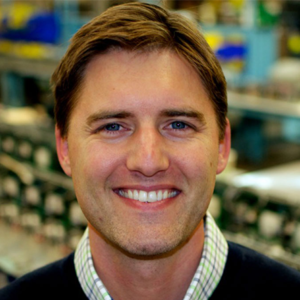
Darren Hammell
Gerhard R. Andlinger Visiting Fellow in Energy and the Environment, Andlinger Center for Energy and the Environment; Founder and CEO, Princeton Power Systems
Darren Hammell took home first place in the Princeton University business plan contest and co-founded Princeton Power Systems in 2001, serving as President and CEO and on the Board of Directors. Since its founding, Princeton Power Systems has been a pioneer in energy storage, renewable microgrids, and power electronics technologies. Under Hammell’s leadership, the company has deployed over 1,000 projects and $200MM in energy storage and renewable microgrids on six continents, leading the global transition to distributed renewable generation and advanced energy storage.
In 2018, Hammell joined Princeton University as the Gerhard R. Andlinger Visiting Fellow in the Andlinger Center for Energy and the Environment. He was named one of Red Herring Magazine’s ‘Young Moguls’ and New Jersey-BIZ’s Forty Under 40 business leaders, and is a frequent invited speaker at industry events. He is a member of the Board of Directors of the non-profit New Jersey Technology Council and the Einstein’s Alley Technology Collaborative, and an investor in early-stage technology companies. Hammell graduated with honors from Princeton University with a B.S.E. in Computer Science and an honorary mention for the Donald Janssen Dike Award for Excellence in Undergraduate Research.
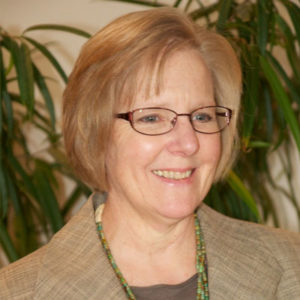
Laurel Harmon
Vice President
LanzaTech
Dr. Harmon provides policy direction and leadership on international legislative and regulatory matters and develops collaborative research and demonstration projects for LanzaTech. LanzaTech is the global leader in gas fermentation technology, offering novel and economic routes to a variety of products, including aviation fuel, from waste carbon streams. By recycling carbon, LanzaTech’s solutions mitigate carbon emissions from industry without adversely impacting food or land security. LanzaTech’s unique process, certified by the Roundtable on Sustainable Biomaterials and currently protected by over 400 granted patents, produces sustainable fuels and platform chemicals that serve as building blocks for everyday products such as rubber and plastics. Dr. Harmon received her Ph.D. in Physical Chemistry from the University of Michigan and has over 30 years experience in policy matters and technology development.
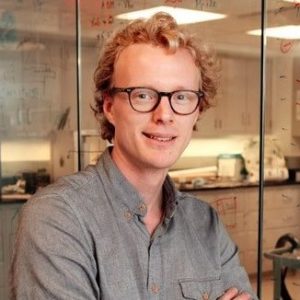
Marcus Hultman
Associate Professor of Mechanical and Aerospace Engineering
Marcus Hultmark is an associate professor in the Department of Mechanical and Aerospace Engineering at Princeton University. His research interests include a variety of problems related to fluid mechanics, with a focus on problems involving turbulence such as wind energy, heat and mass transfer, as well as drag reduction. Unique experimental approaches are combined with theoretical work and the development of novel sensors to investigate these flows with high accuracy. He was awarded the 2016 Air Force Young Investigator award, the 2017 NSF Career award, and the 2017 Nobuhide Kasagi Award. He received his M.Sc. degree from Chalmers University in Sweden and his Ph.D. from Princeton University.
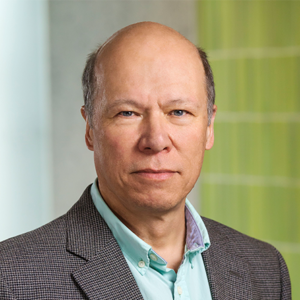
Eric Larson
Senior Research Engineer, Energy Systems Analysis Group, Andlinger Center for Energy and the Environment
Eric Larson is a Senior Research Engineer with the Andlinger Center’s Energy Systems Analysis Group. He is also affiliated with the Woodrow Wilson School’s Science, Technology, and Environmental Policy Program and the Princeton Environmental Institute, and he has an appointment as a Senior Scientist with Climate Central.
Larson’s research interests intersect engineering, environmental science, economics, and public policy. His work is aimed at identifying sustainable, engineering-based solutions to major energy-related environmental problems, especially global climate change, and at informing relevant public policy debates. A recent research emphasis has been on the design and techno-economic assessment of advanced processes for production of clean transportation fuels and electricity from carbonaceous sources with CO2 capture and storage. He also has been collaborating with ecologists at the University of Minnesota and Colorado State University to better understand the potential of biomass-based energy options to deliver negative carbon emission transportation fuels in the U.S. He is currently helping to create a global, multi-disciplinary network of collaborators addressing the question How rapidly can the world’s energy system be decarbonized? This initiative seeks to anticipate the most significant bottlenecks and constraints that are likely to limit the pace of global energy-system decarbonization and to identify approaches to overcoming these.
Larson maintains long-term collaborations on energy and sustainability with colleagues in China (Tsinghua University) and in Australia (University of Queensland). He has over 85 peer-reviewed papers and more than 250 publications in total. He holds a B.S.E. from Washington University in St. Louis (1979) and a Ph.D. in mechanical engineering from the University of Minnesota (1983).

Yueh-Lin (Lynn) Loo
Director, Andlinger Center for Energy and the Environment
Theodora D. ’78 and William H. Walton III ’74 Professor in Engineering
Professor of Chemical and Biological Engineering
Yueh-Lin (Lynn) Loo is the Theodora D. ’78 & William H. Walton III ’74 Professor in Engineering, Professor of Chemical and Biological Engineering, and Director of the Andlinger Center for Energy and the Environment at Princeton University. Loo’s research interest is in the processing and development of materials for lightweight and flexible solar cells and circuits, the combination of which is being explored for “smart” windows to increase building and energy efficiencies. More recently, her research expanded into economic modeling of liquid fuels production from non-food biomass after her stint at NewWorld Capital Group, a private equity firm that invests in environmental opportunities.
Having received her Ph.D. in 2001 from Princeton University, Loo returned in 2007 after starting her academic career at the University of Texas at Austin. As the Associate Director of External Partnerships at the Andlinger Center from 2011 to 2015, she launched and led Princeton E-ffiliates Partnership. Loo served as Acting Vice-Dean of the School of Engineering and Applied Science in the spring of 2016.
The author of over 150 publications, Loo has delivered more than 200 invited and plenary lectures globally and she serves on numerous international advisory boards of peer academic institutions, non-governmental organizations, journal publishers, and private companies. She is a fellow of the American Physical Society, a Young Global Leader of the World Economic Forum, and a Strategic Advisor for NewWorld Capital Group. Her scholarly work has been recognized by numerous other accolades, including Sloan and Beckman Fellowships, the John H. Dillon Medal from the American Physical Society, and the Alan P. Colburn Award from the American Institute of Chemical Engineers.

Kris Ohleth
Senior Manager, Stakeholder Engagement
Ørsted North America
Kris Ohleth has worked in the offshore wind industry in the United States for nearly 15 years, helping to develop the market in the States for this new technology since its first inception. As the Director of Permitting and Stakeholder Relations for several offshore wind developers, she has gained critical insights into federal and state offshore wind regulations and processes. Kris has extensive experience with offshore wind stakeholders in the region and has expert knowledge of ocean planning, having worked on ocean policy issues and stakeholders at all levels, from industry, state, and NGOs perspectives. A New Jersey native, she currently serves as Senior Manager of Stakeholder Engagement for Ørsted North America and lives in northern New Jersey with her husband and two greyhounds, Melvin and Mickey.

Sean O’Sullivan
Managing General Partner
SOSV
Sean is Managing General Partner of SOSV. SOSV, “the accelerator VC”, is one of the most active seed and early stage investors globally, investing over $50 million per year in 150 new startups annually in the areas of hardware, life sciences, food, and Asia cross-border Internet.
Sean got his entrepreneurial start in 1985 as a founder of MapInfo, bringing street mapping technology to personal computers. MapInfo went on to become a $200 million public company with over 1,000 employees worldwide. In 1996, while at the helm of his second company, NetCentric, he created “software for inside the Internet” and is credited with co-creating the term “cloud computing” alongside George Favaloro from Compaq.
Sean has continued as a visionary entrepreneur and investor, creating and supporting a range of business, humanitarian and educational endeavors. A major promoter of economic and social development, he founded JumpStart International in 2003. JumpStart was a leading humanitarian engineering organization based in Baghdad and which operated throughout Iraq during the post-war period of 2003-2006. He spent a few years running JumpStart, which for a time had a staff of over 3000, running up to 80 projects at a time in Fallujah, Najaf and the Baghdad region. As benefactor of the O’Sullivan Foundation, Sean has also been a primary funder of organizations such as Khan Academy, Mathletes and CoderDojo.
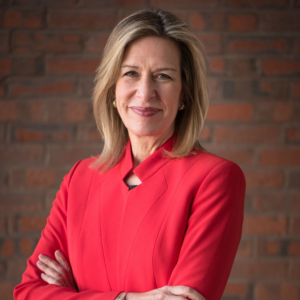
Elizabeth Sherwood-Randall
Distinguished Professor of the Practice, Georgia Institute of Technology; Senior Fellow, Belfer Center, Harvard Kennedy School
Elizabeth Sherwood-Randall is Distinguished Professor of the Practice at the Georgia Institute of Technology and Senior Fellow at the Harvard Kennedy School of Government’s Belfer Center for Science and International Affairs. She served as U.S. Deputy Secretary of Energy from 2014-2017, providing strategic direction for DOE’s broad missions in nuclear security, science and energy, emergency response, and environmental management. As the Department’s statutory COO, she oversaw a budget of nearly $30 billion and a workforce of more than 113,000, including at the Princeton Plasma Physics Laboratory. She led bilateral and multilateral energy, climate, and nuclear security dialogues with global counterparts and launched a major initiative to improve energy sector emergency preparedness and response.
Serving previously at the White House, Sherwood-Randall was Special Assistant to the President and Senior Director for European Affairs on the National Security Council from 2009-2013, and White House Coordinator for Defense Policy, Countering Weapons of Mass Destruction, and Arms Control from 2013-2014. In the Clinton Administration, Sherwood-Randall was Deputy Assistant Secretary of Defense for Russia, Ukraine and Eurasia. She received her B.A. magna cum laude from Harvard University and her D.Phil. from Oxford University, where she was a Rhodes Scholar. She is the parent of a Princeton sophomore and serves on the Andlinger Center for Energy and the Environment Advisory Council.

Tom Schuler
President and CEO
Solidia Technologies, Inc.
A leader in the worldwide building materials and construction sectors, Solidia Technologies® President and CEO Tom Schuler has more than 25 years of experience in international executive management and shepherding new technologies to market. After heading two global businesses at DuPont®, including as President of DuPont Building Innovations, Tom joined Solidia Technologies in 2011 to lead the cement and concrete technology company towards global commercialization.
An expert in sustainable innovation, Tom emphasizes the need to disrupt by first solving industry challenges, guided by his philosophy, “It can’t just be green; it has to be better.” Solidia Technologies is a cement and concrete technology company that makes it easy and profitable to use CO2 to create superior and sustainable building materials. Solidia’s patented processes start with a sustainable cement, cure concrete with CO2 instead of water, reduce the carbon footprint of concrete by up to 70%, and recycle 60 to 80% of the water used in production.
A regular guest of international trade, industry, investor and sustainable growth groups, Tom shares his advocacy of sustainability, not only as a societal necessity, but one that is consistent with future business prosperity. He has spoken at the Aspen Institute’s Ideas Festival, The Economist Sustainability Summit, Cleantech100, Cleantech Europe, the International Concrete Conference, the International Concrete Sustainability Conference, Euro Energy Venture Fair, Batimat Paris, NeoCon, UVA’s TomTom Festival, the Jeffries Global Industrial Conference, and more.
He has appeared on business television and radio programs, including Bloomberg’s “Money Moves,” American Urban Radio Network and Metro Network News. He has been published and quoted widely, including in The Smithsonian, Sustainable Business Magazine, Le Point, Green and Design, IP Frontline, Science & Vie, Carbon Market Review, Metropolis, Batiactu, Concrete Products, World Cement, and more. Under his leadership, Solidia has been honored extensively, including: the 2016 Sustainia100; 2015 NJBiz Business of the Year; 2014 Global Cleantech 100; 2013 R&D Top 100; 2014 CCEMC Grand Challenge First Round finalist; 2013 Katerva Award finalist, MIT’s Climate CoLab shortlist, and…Tom’s favorite…a 2014 NJBiz Best Place to Work in NJ.
Tom has a Mechanical Engineering degree from the University of Virginia, has completed extensive graduate study in Finance and Marketing, and has a mastery of conversational German and French. He serves on UVA’s Jefferson Scholarship Foundation’s Alumni Advisory Council and national selection committee.
Based in Piscataway, N.J. (USA), Solidia’s investors include Kleiner Perkins Caufield & Byers, Bright Capital, BASF, BP, LafargeHolcim, Total Energy Ventures, Oil and Gas Climate Initiative (OGCI) Climate Investments, Air Liquide, Bill Joy and other private investors. Follow Solidia Technologies at www.solidiatech.com and on LinkedIn, YouTube and Twitter: @SolidiaCO2. Follow Tom on LinkedIn and Twitter: @Tom_Schuler.
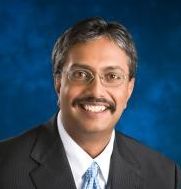
Vijay Swarup
Vice President of Research and Development
ExxonMobil Research and Engineering Company
Vijay Swarup joined the company in 1987 as an engineer at Exxon Research and Engineering in Clinton, New Jersey. Over his career, he has progressed through a variety of engineering, planning and managerial roles at company locations in Redwater, Alberta, Canada; Baytown, Texas; Baton Rouge, Louisiana; Houston, Texas and Fairfax, Virginia.
In 2006, Swarup became the Global Technology Planning Manager for ExxonMobil Chemical. In 2008, he was appointed Global Olefins Marketing Manager for ExxonMobil Chemical Company. He moved from Houston, Texas to Fairfax, Virginia in 2010 to become Vice President of Basestocks, Specialties and Asphalt for ExxonMobil Lubricants and Specialties Company. He was appointed Manager of Planning and Business Development for ExxonMobil Chemical in April, 2012. In April, 2013, Swarup was appointed Corporate Strategic Research Manager, ExxonMobil Research and Engineering Company.
On November 1, 2014, Swarup was appointed Vice President, Research and Development, ExxonMobil Research and Engineering Company. He holds Bachelor of Science degrees in chemistry and in chemical engineering from Purdue University and a Ph.D. in chemical engineering from Rutgers University.
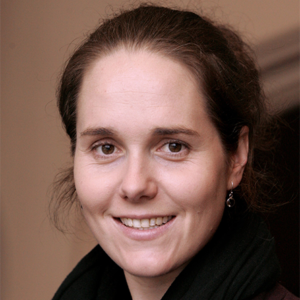
Claire White
Assistant Professor of Civil and Environmental Engineering and the Andlinger Center for Energy and the Environment
Claire White is an Assistant Professor at Princeton University in the Department of Civil and Environmental Engineering and the Andlinger Center for Energy and the Environment, with associated faculty status in the Department of Chemical and Biological Engineering, the Department of Mechanical and Aerospace Engineering, the Princeton Institute for the Science and Technology of Materials, and the Princeton Institute for Computational Science and Engineering. White completed her graduate studies in 2010 at the University of Melbourne supported by an Australian Postgraduate Award from the Australian government. After receiving her Ph.D., she worked as a postdoc at Los Alamos National Laboratory and was awarded a Director’s Postdoctoral Fellowship to research the atomic structure of low-CO2 alkali-activated materials.
White’s research focuses on understanding and optimizing engineering and environmental materials, with an emphasis on controlling the chemical mechanisms responsible for formation and long-term degradation of low-CO2 cements. This research spans multiple length and time scales, utilizing advanced synchrotron and neutron-based experimental techniques, and simulation methodologies. She is the recipient of a number of awards including an NSF CAREER Award and the Howard B. Wentz Jr. Junior Faculty Award (Princeton University), and has been listed several times on the Princeton Engineering Commendation List for Outstanding Teaching.
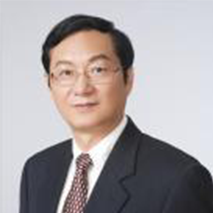
Wayne Xu
Chief Technology Officer, National Institute of Clean and Low-Carbon Energy (NICE), China
Dr. Wayne Xu currently serves as the Chief Technology Officer (CTO) at the National Institute of Clean-and-low-carbon Energy (NICE). In this role, Dr. Xu shapes the company’s vision for science and technology and is responsible for a broad portfolio of research programs with an annual budget of $120 Million. He also serves on the board of directors for the NICE PV Research Ltd. and Chongqing Shenhua Thin Film Solar Technology Co., Ltd. At NICE, he has created a customer-focused culture that emphasizes innovation in support of a strategic vision to bring new clean energy technologies to the global market.
Before joining NICE, Dr. Xu held a variety of leadership and technical roles with multinational companies including Formica, Akzo Nobel, Shaw Industries, and Brady Corporation. His work on the synthesis, formulation, and processing of eco-friendly ultra-low VOC resins with superior translucency created a new generation of interior home decorative laminates and led to new, tighter VOC emissions standards for the industry. His research has led to over 30 innovative products, many of which are on the best seller lists at Home Depot, Lowe’s and Menards. Billions of pounds of resins based on Dr. Xu’s work have been produced.
Dr. Xu obtained his Ph.D. from the University of California, Berkeley and an MBA from the University of North Carolina, Charlotte. Among his many honors and awards, the most recent include: China Thousand Talents Program, Scientific Chinese ‘People of The Year Awards 2016’ and First Prize of Science and Technology Award in 2016 of the China Occupational Safety and Health Association. He is the Chemical Division Vice Chairman of China Thousand Talent Association; he also serves on the Expert Panel of the Chinese National Natural Science Foundation in the Department of Engineering and Materials Science. He is an advisor to the Simulation & Virtual Process Engineering Committee of the Chinese Chemical Industry and Engineering Society, and a member of the Expert Panel of China Coating Association.
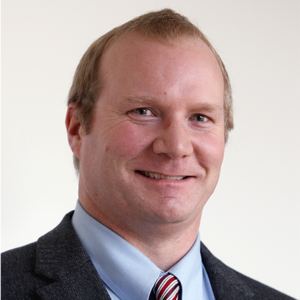
Mark Zondlo
Associate Director for External Partnerships, Andlinger Center for Energy and the Environment; Associate Professor of Civil and Environmental Engineering
Mark A. Zondlo is an associate professor of civil and environmental engineering and the Associate Director of External Partnerships in the Andlinger Center for Energy and the Environment at Princeton University. He leads the Atmospheric Chemistry and Composition Group where his research focuses on natural and anthropogenic trace gases in the atmosphere and their associated impacts on air quality, cloud formation, carbon and nitrogen cycles, and climate. He develops novel optical instrumentation for field measurements and bridges across scales through the use of satellite and model products. He is also a Principal Investigator on the NASA Health and Air Quality Applied Sciences Team.
Zondlo received a B.A. from Rice University (chemistry) in 1994, a Ph.D. from the University of Colorado (physical chemistry) in 1999, and was a National Center for Atmospheric Research (NCAR) Advanced Study Program Postdoctoral Fellow from 1999-2002. Before joining the Princeton faculty in 2008, he was a senior research scientist at Southwest Sciences, Inc., where he developed new laser-based technologies for atmospheric and industrial sensing. Zondlo is also an associated faculty with the Center for Mid-Infrared Technologies for Health and the Environment (MIRTHE), Program in Atmospheric and Oceanic Sciences, Princeton Environmental Institute, Princeton Institute for the Science and Technology of Materials (PRISM), and the Andlinger Center for Energy and the Environment.
Governor Murphy’s Keynote Address to the Andlinger Center &
Princeton E-ffiliates Partnership Annual Meeting
Mark Zondlo, Associate Director for External Partnerships, Andlinger Center for Energy and the Environment; Associate Professor of Civil and Environmental Engineering
Yueh-Lin (Lynn) Loo, Director, Andlinger Center for Energy and the Environment; Theodora D. ’78 and William H. Walton III ’74 Professor in Engineering; Professor of Chemical and Biological Engineering
Rapid Fire Presentations
Judi Greenwald, Non-resident Fellow, Andlinger Center for Energy and the Environment; Principal, Greenwald Consulting LLC (view slides)
Eric Larson, Senior Research Engineer, Energy Systems Analysis Group, Andlinger Center for Energy and the Environment (view slides)
Panel Discussion: Global challenges to rapid, deep decarbonization
Moderated by Chris Greig, Gerhard R. Andlinger Visiting Fellow in Energy and the Environment; Director, Dow Centre for Sustainable Engineering Innovation; Director, University of Queensland Energy Initiative
Elizabeth Sherwood-Randall, Distinguished Professor of the Practice, Georgia Institute of Technology; Senior Fellow, Belfer Center, Harvard Kennedy School
Wayne Xu, Chief Technology Officer, National Institute of Clean and Low-Carbon Energy, China
Vijay Swarup, Vice President of Research and Development, ExxonMobil Research and Engineering Company
Industry-academic perspectives on energy technology RD&D: breakthrough opportunities, priorities, hurdles and big questions
Moderated by Darren Hammell, Gerhard R. Andlinger Visiting Fellow in Energy and the Environment; Founder and CEO of Princeton Power Systems
Topic 1: Offshore wind energy
Kris Ohleth, Senior Manager, Stakeholder Engagement, Ørsted North America (view slides)
Marcus Hultmark, Associate Professor of Mechanical and Aerospace Engineering (view slides)
Topic 2: Sustainable cements
Tom Schuler, President and CEO, Solidia Technologies, Inc. (view slides)
Claire White, Assistant Professor of Civil and Environmental Engineering and the Andlinger Center for Energy and the Environment (view slides)
Topic 3: Low-carbon hydrogen for fuels and chemicals
David Dankworth, Andlinger Center Visitor in Residence; Senior Scientific Advisor, ExxonMobil Research and Engineering Company (view slides)
Paul Chirik, Edwards S. Sanford Professor of Chemistry (view slides)
Topic 4: Microbial production of fuels and chemicals
Laurel Harmon, Vice President, LanzaTech
Jose Avalos, Assistant Professor of Chemical and Biological Engineering and the Andlinger Center for Energy and the Environment (view slides)
Panel Discussion: Getting low-carbon technologies to market and achieving scale
Moderated by Sean O’Sullivan, Founder, SOSV
David Dankworth, Andlinger Center Visitor in Residence & Senior Scientific Advisor, ExxonMobil Research and Engineering Company
Laurel Harmon, Vice President, LanzaTech
Kris Ohleth, Senior Manager, Stakeholder Engagement, Ørsted North America
Tom Schuler, President and CEO, Solidia Technologies
2017
The Andlinger Center for Energy and the Environment and Princeton E-ffiliates Partnership hosted their Annual Meeting on Friday, November 10, 2017 at Princeton University. Read more about the event here.
Fred Krupp, President, Environmental Defense Fund, gave the keynote address titled “Three Reasons for Hope in the Fight to Solve Climate Change.”
The Meeting’s morning session examined electrification of transportation. Lunch was followed by two faculty research presentations on co-benefits of air quality improvements for health, climate, and solar PV electricity generation and cool buildings with less cooling. The late afternoon session explored coastal resilience, and the day concluded with refreshments and a student poster competition.
The annual meeting aims to catalyze the exchange of ideas and spark future collaborations by bringing together corporate leaders, researchers, policy experts, faculty, students and postdocs.
All events took place at Princeton University in Maeder Hall at the Andlinger Center for Energy and the Environment, unless otherwise noted.
Breakfast and Registration
8:00 a.m. – 9:00 a.m.
Welcome
9:00 a.m. – 9:15 a.m.
Yueh-Lin (Lynn) Loo, Director, Andlinger Center for Energy and the Environment; Theodora D. ’78 and William H. Walton III ’74 Professor in Engineering; Professor of Chemical and Biological Engineering
Mark Zondlo, Associate Director for External Partnerships, Andlinger Center for Energy and the Environment; Associate Professor of Civil and Environmental Engineering
Keynote Address: Three Reasons for Hope in the Fight to Solve Climate Change
9:15 a.m. – 10:15 a.m.
Fred Krupp, President, Environmental Defense Fund Abstract
Break
10:15 a.m. – 10:45 a.m.
Lightning Round – Electrification of Transportation
10:45 a.m. – 11:15 a.m.
Electrification of transportation for energy storage and smart mobility
Yiguang Ju, Robert Porter Patterson Professor of Mechanical and Aerospace Engineering Abstract
Fast charging and high performance power conversion
Minjie Chen, Assistant Professor of Electrical Engineering and the Andlinger Center for Energy and the Environment
Panel Discussion – Benefits and Challenges of Autonomous Electric Vehicles
11:15 a.m. – 12:15 p.m.
Moderator Daniel Steingart, Associate Professor of Mechanical and Aerospace Engineering and the Andlinger Center for Energy and the Environment
Samuel Gillard, Technology Manager, Vehicle Technologies Office, U.S. Department of Energy
Abraham Silverman, Vice President and Deputy General Counsel – Regulatory, NRG Energy, Inc.
Xi Zhang, Head, Embedded Networks Research Group, Siemens Corporate Technology
Lunch
12:15 p.m. – 1:45 p.m.
Convocation Room, Friend Center
Corner of William Street and Olden Street
Princeton University
Princeton, NJ 08544
Co-benefits of Air Quality Improvements for Health, Climate, and Solar PV Electricity Generation
1:45 p.m. – 2:15 p.m.
Denise Mauzerall, Professor of Civil and Environmental Engineering and Public and International Affairs, Woodrow Wilson School of Public and International Affairs
Cool Buildings with Less Cooling: Novel Liquid Desiccant-membrane Dehumidification and Integrated Radiant Cooling
2:15 p.m. – 2:45 p.m.
Forrest Meggers, Assistant Professor of Architecture and the Andlinger Center for Energy and the Environment Abstract
Break
2:45 p.m. – 3:15 p.m.
Lightning Round – Coastal Resilience
3:15 p.m. – 3:45 p.m.
Storm surge and rainfall flooding
Ning Lin, Assistant Professor of Civil and Environmental Engineering Abstract
Dynamic geography of the population and economic response to sea level rise
Esteban Rossi-Hansberg, Theodore A. Wells ’29 Professor of Economics and International Affairs Abstract
Panel Discussion – Designing and Building Resilient Coastal Infrastructure
3:45 p.m. – 4:45 p.m.
Moderator Elie Bou-Zeid, Moderator, Associate Professor of Civil and Environmental Engineering; Director, Program in Environmental Engineering and Water Resources
Robert Freudenberg, Vice President, Energy & Environment, Regional Plan Association
Guy Nordenson, Professor of Architecture
Raghuveer Vinukollu, Senior Property Reinsurance Underwriter, Swiss Re
Poster Session and Reception
4:45 p.m. – 6:30 p.m.
Elie Bou-Zeid
Associate Professor of Civil and Environmental Engineering
Director, Program in Environmental Engineering and Water Resources
 Elie Bou-Zeid is an associate professor in the Department of Civil and Environmental Engineering and the director of the Program in Environmental Engineering and Water Resources at Princeton University, which he joined in 2008. His work focuses on the integration of theoretical, numerical, and experimental approaches to study flow and transport in the lowest kilometer of the atmosphere, where humans live and have a direct impact on the planet. In particular, he is interested in applications related to the built environment (sustainable technologies from the building to the urban scales) and wind energy (wind turbine and farm design and wind power forecasting).
Elie Bou-Zeid is an associate professor in the Department of Civil and Environmental Engineering and the director of the Program in Environmental Engineering and Water Resources at Princeton University, which he joined in 2008. His work focuses on the integration of theoretical, numerical, and experimental approaches to study flow and transport in the lowest kilometer of the atmosphere, where humans live and have a direct impact on the planet. In particular, he is interested in applications related to the built environment (sustainable technologies from the building to the urban scales) and wind energy (wind turbine and farm design and wind power forecasting).
Bou-Zeid is the recipient of the “Fondation Latsis Internationale” University Award (2009) and the E. Lawrence Keyes Jr. / Emerson Electric Co. Faculty Advancement Award from Princeton University (2011). He holds a bachelor’s degree in mechanical engineering (1997) and a master’s degree in environmental and water resources engineering (2000) from the American University of Beirut. His Ph.D. in environmental engineering (2005) is from the Johns Hopkins University. Before joining Princeton, he worked as a postdoctoral researcher at the Swiss Federal Institute of Technology at Lausanne – EPFL (2005-2008).
Minjie Chen
Assistant Professor of Electrical Engineering and the Andlinger Center for Energy and the Environment
 Minjie Chen is an assistant professor in the Department of Electrical Engineering and the Andlinger Center for Energy and the Environment at Princeton University. His primary research interests are in the design of high-performance power electronics for emerging and high-impact applications, including renewable energy, LED lighting, grid-interface power supplies, and miniaturized power management systems. He received his B.S. from Tsinghua University in 2009, and his S.M., E.E., and Ph.D. degrees from MIT in 2012, 2014 and 2015 respectively, all in electrical engineering. He is the recipient of the Chorafas Award for outstanding thesis at MIT, a First Prize Paper Award from IEEE Transactions on Power Electronics, a First Prize Award in IEEE ECCE Student Demo Competition, and an Outstanding Reviewer Award from IEEE Transactions on Power Electronics.
Minjie Chen is an assistant professor in the Department of Electrical Engineering and the Andlinger Center for Energy and the Environment at Princeton University. His primary research interests are in the design of high-performance power electronics for emerging and high-impact applications, including renewable energy, LED lighting, grid-interface power supplies, and miniaturized power management systems. He received his B.S. from Tsinghua University in 2009, and his S.M., E.E., and Ph.D. degrees from MIT in 2012, 2014 and 2015 respectively, all in electrical engineering. He is the recipient of the Chorafas Award for outstanding thesis at MIT, a First Prize Paper Award from IEEE Transactions on Power Electronics, a First Prize Award in IEEE ECCE Student Demo Competition, and an Outstanding Reviewer Award from IEEE Transactions on Power Electronics.
Robert Freudenberg
Vice President, Energy & Environment
Regional Plan Association
 Robert Freudenberg is vice president of Regional Plan Association’s (RPA) energy and environmental programs, leading the organization’s initiatives in areas including climate mitigation and adaptation, open space conservation and park development, and water resource management. He oversees a comprehensive program of projects and policies to improve public health, quality of life, sustainable development, and climate resilience in the New York-New Jersey-Connecticut metropolitan area. He works closely with other RPA staff to integrate these objectives with RPA’s economic, transportation, land use, design, and community development initiatives.
Robert Freudenberg is vice president of Regional Plan Association’s (RPA) energy and environmental programs, leading the organization’s initiatives in areas including climate mitigation and adaptation, open space conservation and park development, and water resource management. He oversees a comprehensive program of projects and policies to improve public health, quality of life, sustainable development, and climate resilience in the New York-New Jersey-Connecticut metropolitan area. He works closely with other RPA staff to integrate these objectives with RPA’s economic, transportation, land use, design, and community development initiatives.
Freudenberg has been with RPA since 2006 and most recently served as New Jersey director, where he managed the state program with a focus on sustainability planning and policy. Prior to joining RPA, he served as a coastal management fellow at the National Oceanic and Atmospheric Administration, where he focused on policies for the New Jersey Department of Environmental Protection. He holds a master’s of public administration in environmental science and policy from the Columbia University School of International and Public Affairs and a bachelor’s in environmental biology from SUNY College of Environmental Science and Forestry.
Samuel Gillard
Technology Manager, Vehicle Technologies Office
U.S. Department of Energy
 Samm Gillard is a technical project manager for the U.S. Department of Energy’s (DOE) Vehicle Technologies Office (VTO), which leads research and development projects aimed to advance low cost, secure, and clean energy technologies for transportation. Within VTO, Gillard manages projects for the Battery R&D team. His areas of responsibility include performance, thermal and abuse testing activities, and lithium ion sustainability and recycling. He also leads emerging activities in extreme fast charging at the battery level to understand fundamental limits of commercial lithium ion technology using modeling, cell fabrication, and post-mortem analysis and characterization.
Samm Gillard is a technical project manager for the U.S. Department of Energy’s (DOE) Vehicle Technologies Office (VTO), which leads research and development projects aimed to advance low cost, secure, and clean energy technologies for transportation. Within VTO, Gillard manages projects for the Battery R&D team. His areas of responsibility include performance, thermal and abuse testing activities, and lithium ion sustainability and recycling. He also leads emerging activities in extreme fast charging at the battery level to understand fundamental limits of commercial lithium ion technology using modeling, cell fabrication, and post-mortem analysis and characterization.
Gillard serves as a technical advisor to the U.S. Advanced Battery Consortium (USABC), which is a public-private partnership with U.S. automotive manufacturers focused on accelerating battery development for automotive applications. He also manages the SBIR/STTR projects related to batteries for the office. Prior to DOE, Gillard worked in battery design and supply chain for the Department of Defense, worked for the U.S. Patent and Trademark office as a patent examiner, and served in the military. He has a bachelor’s degree in materials science and engineering from the University of Maryland.
Yiguang Ju
Robert Porter Patterson Professor of Mechanical and Aerospace Engineering
 Yiguang Ju is the Robert Porter Patterson Professor of Mechanical and Aerospace Engineering and the Director of the Program in Sustainable Energy at Princeton University. He received his bachelor’s degree in engineering thermo-physics from Tsinghua University in 1986, and his Ph.D. in mechanical and aerospace engineering from Tohoku University (Japan) in 1994. He was appointed as a faculty at Tohoku University from 1995 to 1999, and as a Chang-Jiang Professor and the Director of Thermo-physics Institute at Tsinghua University in 2000. He joined Princeton University in 2001.
Yiguang Ju is the Robert Porter Patterson Professor of Mechanical and Aerospace Engineering and the Director of the Program in Sustainable Energy at Princeton University. He received his bachelor’s degree in engineering thermo-physics from Tsinghua University in 1986, and his Ph.D. in mechanical and aerospace engineering from Tohoku University (Japan) in 1994. He was appointed as a faculty at Tohoku University from 1995 to 1999, and as a Chang-Jiang Professor and the Director of Thermo-physics Institute at Tsinghua University in 2000. He joined Princeton University in 2001.
Ju’s research interests include energy and fuels in the areas of near limit combustion, microscale combustion, plasma assisted propulsion, alternative fuels, multiscale modeling, and functional nano-materials. He has published 190 journal articles. He is an ASME Fellow, chair of the U.S. section of the Combustion Institute, and an associate editor for AIAA Journal, Proceedings of Combustion Institute, and Frontiers in Energy. He also served on NASA’s Rocket Study committee, NASA’s Life and Physical Sciences Research review committee of the National Academy of Sciences, and the DOE review committee for research programs at the national combustion laboratories. He received the Bessel Research Award from the von Humboldt Foundation and is a distinguished visiting fellow of the Royal Academy of Engineering in the UK.
Fred Krupp
President
Environmental Defense Fund
 Environmental Defense Fund (EDF) president Fred Krupp has guided EDF for three decades. A leading voice on climate change, energy and sustainability, and a champion for harnessing the power of the marketplace to protect our environment, Krupp is co-author with Miriam Horn of the New York Times bestseller Earth: The Sequel – The Race to Reinvent Energy and Stop Global Warming. Under Krupp’s leadership, EDF has become one of the world’s most influential environmental organizations. He has focused international attention on the problem of methane emissions from the oil-and-gas system, and led EDF’s innovative corporate partnerships with FedEx, KKR, McDonald’s, Walmart and others.
Environmental Defense Fund (EDF) president Fred Krupp has guided EDF for three decades. A leading voice on climate change, energy and sustainability, and a champion for harnessing the power of the marketplace to protect our environment, Krupp is co-author with Miriam Horn of the New York Times bestseller Earth: The Sequel – The Race to Reinvent Energy and Stop Global Warming. Under Krupp’s leadership, EDF has become one of the world’s most influential environmental organizations. He has focused international attention on the problem of methane emissions from the oil-and-gas system, and led EDF’s innovative corporate partnerships with FedEx, KKR, McDonald’s, Walmart and others.
Educated at Yale and the University of Michigan Law School, Krupp appears frequently in the media. He was named one of America’s Best Leaders by U.S. News and World Report and is a recipient of the 2015 William K. Reilly Environmental Leadership Award.
Ning Lin
Assistant Professor of Civil and Environmental Engineering
 Ning Lin is an Assistant Professor of Civil and Environmental Engineering at Princeton University. She integrates science, engineering, and policy to study hurricane hazards: how they change with the climate and how to better mitigate their impact on society. Her work has been published in high-impact journals including Science, Nature Climate Change, and Proceeding of the National Academy of Sciences.
Ning Lin is an Assistant Professor of Civil and Environmental Engineering at Princeton University. She integrates science, engineering, and policy to study hurricane hazards: how they change with the climate and how to better mitigate their impact on society. Her work has been published in high-impact journals including Science, Nature Climate Change, and Proceeding of the National Academy of Sciences.
Lin received her Ph.D. in civil and environmental engineering from Princeton University in 2010. She also received a certificate in Science, Technology and Environmental Policy in 2010 from Princeton’s Woodrow Wilson School of Public and International Affairs. Before rejoining Princeton as an assistant professor in 2012, Lin conducted research in the Department of Earth, Atmospheric and Planetary Sciences at MIT as a NOAA Climate and Global Change Postdoctoral Fellow.
Yueh-Lin (Lynn) Loo
Director, Andlinger Center for Energy and the Environment
Theodora D. ’78 & William H. Walton III ’74 Professor in Engineering
Professor of Chemical and Biological Engineering
 Yueh-Lin (Lynn) Loo is the Theodora D. ’78 & William H. Walton III ’74 Professor in Engineering, Professor of Chemical and Biological Engineering, and Director of the Andlinger Center for Energy and the Environment at Princeton University. Loo’s research interest is in the processing and development of materials for lightweight and flexible solar cells and circuits, the combination of which is being explored for “smart” windows to increase building and energy efficiencies. More recently, her research expanded into economic modeling of liquid fuels production from non-food biomass after her stint at NewWorld Capital Group, a private equity firm that invests in environmental opportunities.
Yueh-Lin (Lynn) Loo is the Theodora D. ’78 & William H. Walton III ’74 Professor in Engineering, Professor of Chemical and Biological Engineering, and Director of the Andlinger Center for Energy and the Environment at Princeton University. Loo’s research interest is in the processing and development of materials for lightweight and flexible solar cells and circuits, the combination of which is being explored for “smart” windows to increase building and energy efficiencies. More recently, her research expanded into economic modeling of liquid fuels production from non-food biomass after her stint at NewWorld Capital Group, a private equity firm that invests in environmental opportunities.
Having received her Ph.D. in 2001 from Princeton University, Loo returned in 2007 after starting her academic career at the University of Texas at Austin. As the Associate Director of External Partnerships at the Andlinger Center from 2011 to 2015, she launched and led Princeton E-ffiliates Partnership. Loo served as Acting Vice-Dean of the School of Engineering and Applied Science in the spring of 2016.
The author of over 140 publications, Loo has delivered more than 200 invited and plenary lectures globally and she serves on numerous international advisory boards of peer academic institutions, non-governmental organizations, journal publishers, and private companies. She is a fellow of the American Physical Society, a Young Global Leader of the World Economic Forum, and a Strategic Advisor for NewWorld Capital Group. Her scholarly work has been recognized by numerous other accolades, including Sloan and Beckman Fellowships, the John H. Dillon Medal from the American Physical Society, and the Alan P. Colburn Award from the American Institute of Chemical Engineers.
Denise Mauzerall
Professor of Civil and Environmental Engineering and Public and International Affairs
Woodrow Wilson School of Public and International Affairs
 Denise Mauzerall is Professor of Environmental Engineering and International Affairs at Princeton University, holding a joint appointment between the Woodrow Wilson School of Public and International Affairs and the Department of Civil and Environmental Engineering. Her research examines linkages between air pollution origin, transport and impacts, including impacts on human health, food security, and climate change. Current research is examining the potential air quality and climate benefits of increased penetration of renewable energy and natural gas in China, evaluating methane leakage from abandoned oil and gas wells, examining the impact of climate change on global air quality, evaluating the effect of air pollution on the ability to generate solar electricity, and evaluating the potential to increase nitrogen use efficiency in agriculture.
Denise Mauzerall is Professor of Environmental Engineering and International Affairs at Princeton University, holding a joint appointment between the Woodrow Wilson School of Public and International Affairs and the Department of Civil and Environmental Engineering. Her research examines linkages between air pollution origin, transport and impacts, including impacts on human health, food security, and climate change. Current research is examining the potential air quality and climate benefits of increased penetration of renewable energy and natural gas in China, evaluating methane leakage from abandoned oil and gas wells, examining the impact of climate change on global air quality, evaluating the effect of air pollution on the ability to generate solar electricity, and evaluating the potential to increase nitrogen use efficiency in agriculture.
Prior to Princeton, Mauzerall was a postdoc at the National Center for Atmospheric Research, a program manager in the Global Change Division of the U.S. EPA where she implemented the Montreal Protocol, and an environmental consultant. She has authored over 70 peer-reviewed papers, and has lectured widely around the world at universities, conferences, and for government and non-governmental agencies. She has been a contributing author to the Intergovernmental Panel on Climate Change (IPCC) which received the Nobel Peace Prize. She is currently on the editorial board of the journal Atmospheric Environment and on the advisory board of the Institute of Advanced Sustainability Science in Potsdam, Germany. In January 2017 she spoke at the World Economic Forum in Davos, Switzerland on opportunities to address air pollution and greenhouse gas mitigation simultaneously in China via increased electrification of the economy with renewable energy. At the Woodrow Wilson School at Princeton University she directs the doctoral program and is the acting director of the Science, Technology and Environmental Policy program. Mauzerall received a Sc.B. in chemistry from Brown University, a M.S. in environmental engineering from Stanford University, and a Ph.D. in atmospheric chemistry from the Earth and Planetary Science department at Harvard University.
Forrest Meggers
Assistant Professor of Architecture and the Andlinger Center for Energy and the Environment
 Forrest Meggers, Dr. sc. ETH, is an assistant professor jointly appointed in the School of Architecture and the Andlinger Center for Energy and the Environment. He leads the CHAOS Lab (Cooling and Heating for Architecturally Optimized Systems) at Princeton where he directs an interdisciplinary research team and works with design faculty developing new technologies, methods, and forms for energy systems in buildings. He has degrees in mechanical engineering and environmental engineering, and received his doctorate from the ETH Zurich in architecture. He subsequently led the research of the Low Exergy Module in Singapore, including the development of a new space-generating and efficiency-creating concept called 3-for-2, now being researched by the team in Princeton in collaboration with ETH Zurich and Siemens Building Technologies. Current research includes solar tracking, geothermal analysis, desiccant dehumidification, Campus as a Lab sensor projects, and experimental radiant and evaporative heat transfer in his large Thermoheliodome and Cool Oculus pavilions. He acts as a subtask leader in the IEA ECB Annex 64 research collaboration on Low Exergy Communities studying district heating, is a member of Princeton Campus Plan committees, and co-chair of the Princeton Sustainability Committee and the Architecture and Engineering Program.
Forrest Meggers, Dr. sc. ETH, is an assistant professor jointly appointed in the School of Architecture and the Andlinger Center for Energy and the Environment. He leads the CHAOS Lab (Cooling and Heating for Architecturally Optimized Systems) at Princeton where he directs an interdisciplinary research team and works with design faculty developing new technologies, methods, and forms for energy systems in buildings. He has degrees in mechanical engineering and environmental engineering, and received his doctorate from the ETH Zurich in architecture. He subsequently led the research of the Low Exergy Module in Singapore, including the development of a new space-generating and efficiency-creating concept called 3-for-2, now being researched by the team in Princeton in collaboration with ETH Zurich and Siemens Building Technologies. Current research includes solar tracking, geothermal analysis, desiccant dehumidification, Campus as a Lab sensor projects, and experimental radiant and evaporative heat transfer in his large Thermoheliodome and Cool Oculus pavilions. He acts as a subtask leader in the IEA ECB Annex 64 research collaboration on Low Exergy Communities studying district heating, is a member of Princeton Campus Plan committees, and co-chair of the Princeton Sustainability Committee and the Architecture and Engineering Program.
Guy Nordenson
Professor of Architecture
 Guy Nordenson is a structural engineer and professor at Princeton University. He practiced structural engineering in San Francisco and New York and in 1987 established Arup’s New York office. In 1997 he began his independent practice. Nordenson was the structural engineer for the Santa Fe Opera House, the 2004 MoMA expansion in New York, the Jubilee Church in Rome, the Kimbell Art Museum in Fort Worth, the National Museum of African American History and Culture in Washington, D.C., and over 200 other projects. In 2009 Nordenson was awarded the AIA’s Institute Honors for Collaborative Achievement Award, and elected to the American Academy of Arts and Sciences. He was Commissioner of the NYC Public Design Commission from 2006 to 2015 and is a member of the NYC Panel on Climate Change, both mayoral appointments. He led the research project and co-wrote the book On the Water | Palisade Bay, which served as the inspiration for the 2010 MoMA exhibition “Rising Currents.”
Guy Nordenson is a structural engineer and professor at Princeton University. He practiced structural engineering in San Francisco and New York and in 1987 established Arup’s New York office. In 1997 he began his independent practice. Nordenson was the structural engineer for the Santa Fe Opera House, the 2004 MoMA expansion in New York, the Jubilee Church in Rome, the Kimbell Art Museum in Fort Worth, the National Museum of African American History and Culture in Washington, D.C., and over 200 other projects. In 2009 Nordenson was awarded the AIA’s Institute Honors for Collaborative Achievement Award, and elected to the American Academy of Arts and Sciences. He was Commissioner of the NYC Public Design Commission from 2006 to 2015 and is a member of the NYC Panel on Climate Change, both mayoral appointments. He led the research project and co-wrote the book On the Water | Palisade Bay, which served as the inspiration for the 2010 MoMA exhibition “Rising Currents.”
In 2013 Nordenson’s research team at Princeton was awarded a major grant by the Rockefeller Foundation to develop “Structures of Coastal Resilience” in collaboration with the U.S. Army Corps of Engineers. The results of this were incorporated in the 2015 North Atlantic Comprehensive Study of the USACE. In 2016 he published Reading Structures: 39 Projects and Built Works. Current research include the Regional Plan Association 4 Corridors design initiative for the Fourth Regional Plan, supported by the Rockefeller Foundation, and the resilience and adaptation design component of the NSF project “An Integrated Approach to Risk Assessment and Management in Responding to Land Falling Hurricanes in a Changing Climate,” led by Professor Ning Lin.
Esteban Rossi-Hansberg
Theodore A. Wells ’29 Professor of Economics and International Affairs
 Esteban Rossi-Hansberg is the Theodore A. Wells ’29 Professor of Economics and International Affairs in the Economics Department and Woodrow Wilson School of Public and International Affairs at Princeton University. He performs research in macroeconomics, international trade, and spatial economics. Prior to coming to Princeton, Rossi-Hansberg was a faculty member in the economics department at Stanford University. He is a research fellow at the National Bureau of Economic Research (NBER) and the Center for Economic and Policy Research (CEPR), and received a Ph.D. in economics from the University of Chicago.
Esteban Rossi-Hansberg is the Theodore A. Wells ’29 Professor of Economics and International Affairs in the Economics Department and Woodrow Wilson School of Public and International Affairs at Princeton University. He performs research in macroeconomics, international trade, and spatial economics. Prior to coming to Princeton, Rossi-Hansberg was a faculty member in the economics department at Stanford University. He is a research fellow at the National Bureau of Economic Research (NBER) and the Center for Economic and Policy Research (CEPR), and received a Ph.D. in economics from the University of Chicago.
Abraham Silverman
Vice President and Deputy General Counsel, Regulatory
NRG Energy, Inc.
 Abe Silverman is the chief regulatory counsel and head of the regulatory affairs group at NRG Energy, Inc., an independent power producer with almost 50 GW of generation nationwide, and one of the largest renewable portfolios in the country. NRG, through its various retail affiliates, also serves approximately 3 million retail and demand response customers in over a dozen states. Silverman counsels the company on wholesale and retail market design issues. Prior to joining NRG in 2008, Silverman served at the Federal Energy Regulatory Commission’s Office of General Counsel for over three years, and was an associate at the law firm of Perkins Coie, based in Washington, D.C. He graduated from the University of Maryland with a B.S. in geology and a B.A. in english, and then received his Juris Doctor from The George Washington University School of Law.
Abe Silverman is the chief regulatory counsel and head of the regulatory affairs group at NRG Energy, Inc., an independent power producer with almost 50 GW of generation nationwide, and one of the largest renewable portfolios in the country. NRG, through its various retail affiliates, also serves approximately 3 million retail and demand response customers in over a dozen states. Silverman counsels the company on wholesale and retail market design issues. Prior to joining NRG in 2008, Silverman served at the Federal Energy Regulatory Commission’s Office of General Counsel for over three years, and was an associate at the law firm of Perkins Coie, based in Washington, D.C. He graduated from the University of Maryland with a B.S. in geology and a B.A. in english, and then received his Juris Doctor from The George Washington University School of Law.
Daniel Steingart
Associate Professor of Mechanical and Aerospace Engineering and the Andlinger Center for Energy and the Environment
 Dan Steingart is an associate professor in the Department of Mechanical and Aerospace Engineering and the Andlinger Center for Energy and the Environment. His research is concerned with the intersection of material and systems behavior, with an emphasis on systems considered to exploit perceived shortcomings of electrochemical systems for performance advances. Most recently, his lab has uncovered new understanding of behavior far from equilibrium in plate metal systems as well as new insights into acoustic/electrochemical interactions. Five still-solvent companies have formed from technology he has developed since 2005, and he has actively been researching materials production and energy storage technologies since 2000. Prior to Princeton, Steingart was an assistant professor in the Department of Chemical Engineering at the City College of New York, and prior to that a co-founder of Wireless Industrial Technologies, an early effort in Internet of Things as applied to primary metal production processes. He received his Ph.D. from the University of California, Berkeley in 2006 and his Bachelor of Science from Brown University in 2000 with degrees in materials science and engineering.
Dan Steingart is an associate professor in the Department of Mechanical and Aerospace Engineering and the Andlinger Center for Energy and the Environment. His research is concerned with the intersection of material and systems behavior, with an emphasis on systems considered to exploit perceived shortcomings of electrochemical systems for performance advances. Most recently, his lab has uncovered new understanding of behavior far from equilibrium in plate metal systems as well as new insights into acoustic/electrochemical interactions. Five still-solvent companies have formed from technology he has developed since 2005, and he has actively been researching materials production and energy storage technologies since 2000. Prior to Princeton, Steingart was an assistant professor in the Department of Chemical Engineering at the City College of New York, and prior to that a co-founder of Wireless Industrial Technologies, an early effort in Internet of Things as applied to primary metal production processes. He received his Ph.D. from the University of California, Berkeley in 2006 and his Bachelor of Science from Brown University in 2000 with degrees in materials science and engineering.
Raghuveer Vinukollu
Senior Property Reinsurance Underwriter
Swiss Re
 Raghuveer Vinukollu is a Senior Property Reinsurance Underwriter at Swiss Re focusing on reinsurance programs. In his current role, he also leads the Natural Catastrophe Protection Gap project for North America, an initiative to close the protection gap between economic and insured losses. In his previous role as a flood specialist at Swiss Re, Vinukollu developed natural catastrophe models for river flood and storm surge. These models are used on a daily basis to evaluate the property risk for insurance portfolios.
Raghuveer Vinukollu is a Senior Property Reinsurance Underwriter at Swiss Re focusing on reinsurance programs. In his current role, he also leads the Natural Catastrophe Protection Gap project for North America, an initiative to close the protection gap between economic and insured losses. In his previous role as a flood specialist at Swiss Re, Vinukollu developed natural catastrophe models for river flood and storm surge. These models are used on a daily basis to evaluate the property risk for insurance portfolios.
Vinukollu graduated from Princeton University in 2011 with a focus on land surface hydrology. His interests are climate adaptation and resiliency, and he has been active in discussions on sea level rise and the impact of flooding on local businesses and personal property. Vinukollu strongly believes that the insurance industry plays an important role in making the world more resilient and is actively involved in promoting the insurance industry to millennials. Vinukollu serves on the board of directors for Helvetas USA, a Swiss based NGO.
Xi Zhang
Head, Embedded Networks Research Group
Siemens Corporate Technology
 Xi Zhang is head of the embedded networks research group at Siemens Corporate Technology, Princeton, NJ. She is an expert in the e-Mobility space with a focus on standardizing the communication interface between electric vehicles and charging infrastructure to ensure interoperability. Zhang has strong interests in identifying the communication challenges for transportation electrification, e.g., mass deployment and management of charging infrastructure and automatic connection and charging systems for transit systems, and addressing those challenges as inputs for future standards. She is currently leading the project team for standardization of vehicle-to-grid interface using wireless communication in ISO 15118. She is also focused on communication technologies for industrial Internet of Things. Zhang received her Ph.D. from RWTH Aachen University in Germany, and her MEng from Imperial College London in the U.K., with degrees in electrical engineering.
Xi Zhang is head of the embedded networks research group at Siemens Corporate Technology, Princeton, NJ. She is an expert in the e-Mobility space with a focus on standardizing the communication interface between electric vehicles and charging infrastructure to ensure interoperability. Zhang has strong interests in identifying the communication challenges for transportation electrification, e.g., mass deployment and management of charging infrastructure and automatic connection and charging systems for transit systems, and addressing those challenges as inputs for future standards. She is currently leading the project team for standardization of vehicle-to-grid interface using wireless communication in ISO 15118. She is also focused on communication technologies for industrial Internet of Things. Zhang received her Ph.D. from RWTH Aachen University in Germany, and her MEng from Imperial College London in the U.K., with degrees in electrical engineering.
Mark Zondlo
Associate Director for External Partnerships, Andlinger Center for Energy and the Environment; Associate Professor of Civil and Environmental Engineering
 Mark A. Zondlo is an associate professor of civil and environmental engineering and the Associate Director of External Partnerships in the Andlinger Center for Energy and the Environment at Princeton University. He leads the Atmospheric Chemistry and Composition Group where his research focuses on natural and anthropogenic trace gases in the atmosphere and their associated impacts on air quality, cloud formation, carbon and nitrogen cycles, and climate. He develops and deploys optical-based sensors for trace gas measurements on aircraft, drones, vehicles, balloons, and towers as part of interdisciplinary, large-scale field experiments.
Mark A. Zondlo is an associate professor of civil and environmental engineering and the Associate Director of External Partnerships in the Andlinger Center for Energy and the Environment at Princeton University. He leads the Atmospheric Chemistry and Composition Group where his research focuses on natural and anthropogenic trace gases in the atmosphere and their associated impacts on air quality, cloud formation, carbon and nitrogen cycles, and climate. He develops and deploys optical-based sensors for trace gas measurements on aircraft, drones, vehicles, balloons, and towers as part of interdisciplinary, large-scale field experiments.
Zondlo received a B.A. from Rice University (chemistry) in 1994, a Ph.D. from the University of Colorado (physical chemistry) in 1999, and was a National Center for Atmospheric Research (NCAR) Advanced Study Program Postdoctoral Fellow from 1999-2002. Before joining the Princeton faculty in 2008, he was a senior research scientist at Southwest Sciences, Inc., where he developed new laser-based technologies for atmospheric and industrial sensing. Zondlo is also an associated faculty with the Center for Mid-Infrared Technologies for Health and the Environment (MIRTHE), Department of Atmospheric and Oceanic Sciences, Princeton Environmental Institute, Princeton Institute for the Science and Technology of Materials (PRISM), and the Andlinger Center for Energy and the Environment.
Welcome Address to the Andlinger Center &
Princeton E-ffiliates Partnership Annual Meeting
Yueh-Lin (Lynn) Loo
Mark Zondlo
Keynote Address: Three Reasons for Hope in the Fight to Solve Climate Change
Fred Krupp
Lightning Round – Electrification of Transportation
Yiguang Ju, Minjie Chen
Panel Discussion – Benefits and Challenges of Autonomous Electric Vehicles
Daniel Steingart (Moderator), Samuel Gillard, Abraham Silverman, Xi Zhang
Co-benefits of Air Quality Improvements for Health, Climate, and Solar PV Electricity Generation
Denise Mauzerall
Cool Buildings with Less Cooling: Novel Liquid Desiccant-membrane Dehumidification and Integrated Radiant Cooling
Forrest Meggers
Lighting Round – Coastal Resilience
Ning Lin, Esteban Rossi-Hansberg
Panel Discussion – Designing and Building Resilient Coastal Infrastructure
Elie Bou-Zeid (Moderator), Robert Freudenberg, Guy Nordenson, Raghuveer Vinukollu
2016
Princeton E-ffiliates Partnership hosted its Fifth Annual Meeting on Friday, November 11, 2016 at Princeton University. Read more on the event here.
Ralph Izzo – chairman of the board, president, and chief executive officer at Public Service Enterprise Group (PSEG) – gave the keynote address on New Jersey’s evolving energy needs and how utilities can meet them.
This event aims to catalyze the exchange of ideas and spark future collaborations by bringing together corporate leaders and researchers, policy experts, faculty, students, and postdocs for a day of talks, including panel discussions on the energy-water nexus and the role of behavioral science in environmental policy, faculty research presentations, and a student poster session.
All events took place at Princeton University in Maeder Hall at the Andlinger Center for Energy and the Environment, unless otherwise noted.
Breakfast and Registration
8:00 a.m. – 9:00 a.m.
Welcome
9:00 a.m. – 9:15 a.m.
Yueh-Lin (Lynn) Loo, Director, Andlinger Center for Energy and the Environment; Theodora D. ’78 and William H. Walton III ’74 Professor in Engineering; Professor of Chemical and Biological Engineering
Sankaran Sundaresan, Norman Johnson Sollenberger Professor in Engineering, Professor of Chemical and Biological Engineering
Keynote Address: New Jersey’s Evolving Energy Needs and How Utilities Can Meet Them
9:15 a.m. – 10:15 a.m.
Ralph Izzo, Chairman of the Board, President and Chief Executive Officer, Public Service Enterprise Group (PSEG)
Break
10:15 a.m. – 10:45 a.m.
Panel Discussion – The Energy-Water Nexus
10:45 a.m. – 12:00 p.m.
Moderator Eric Larson, Senior Research Engineer, Energy Systems Analysis Group, Andlinger Center for Energy and the Environment Abstract, Slides
Bernard Haykel, Professor of Near Eastern Studies; Director, Institute for Transregional Study of the Contemporary Middle East, North Africa, and Central Asia
Addison Killean Stark, ARPA-E Fellow and Program Director, U.S. Department of Energy Slides
Jeffrey Stokes, Senior Director of Power Generation PSEG Slides
John Webley, Chief Executive Officer Trevi Systems, Inc. Slides
Lunch
12:00 p.m. – 1:45 p.m.
Convocation Room, Friend Center
Corner of William Street and Olden Street
Princeton University
Princeton, NJ 08544
Technologies to Increase the Impact and Sustainability of Biofuels
1:45 p.m. – 2:15 p.m.
Jose L. Avalos, Assistant Professor of Chemical and Biological Engineering and the Andlinger Center for Energy and the Environment Abstract
Harvesting Energy Using Piezoelectrics Excited by Helmholtz Resonance
2:15 p.m. – 2:45 p.m.
Tyler Van Buren, Research Specialist Department of Mechanical and Aerospace Engineering Abstract, Slides
Break
2:45 p.m. – 3:15 p.m.
Energy, Behavior, and Climate Change
3:15 p.m. – 3:45 p.m.
Elke U. Weber, Gerhard R. Andlinger Professor in Energy and the Environment; Professor of Psychology and Public Affairs, Woodrow Wilson School of Public and International Affairs Abstract, Slides
Panel Discussion – Human Factors 2.0: Revisiting the Role of Behavioral Science and Human Behavior in Energy and Environmental Policy
3:45 p.m. – 5:00 p.m.
Moderator Elke U. Weber, Gerhard R. Andlinger Professor in Energy and the Environment; Professor of Psychology and Public Affairs, Woodrow Wilson School of Public and International Affairs Abstract
Paul Ferraro, Bloomberg Distinguished Professor, Carey Business School and Whiting School of Engineering, Johns Hopkins University
Leidy Klotz, Associate Professor of Civil and Environmental Engineering and Architecture, University of Virginia Slides
Robert Nixon, Thomas A. and Currie C. Barron Family Professor in Humanities and the Environment; Professor of English and the Princeton Environmental Institute
Reuven Sussman, Manager, Behavior Program, American Council for an Energy-Efficient Economy Slides
Poster Session and Reception
5:00 p.m. – 6:30 p.m.

José L. Avalos
Assistant Professor of Chemical and Biological Engineering and the Andlinger Center for Energy and the Environment
José Avalos is an assistant professor in the Department of Chemical and Biological Engineering and the Andlinger Center for Energy and the Environment at Princeton University. He is also an associated faculty member in the Department of Molecular Biology. His research involves the use of biotechnology to address challenges in sustainable energy, health, and the environment, with expertise in the fields of metabolic engineering, synthetic biology, protein engineering, systems biology, and structural biology. He earned a B.E. in chemical engineering from Universidad Iberoamericana in Mexico City. He then received an MSc in biochemical research from Imperial College in London, and a Ph.D. in biochemistry and biophysics from Johns Hopkins University. He completed postdoctoral research at The Rockefeller University in membrane biophysics; and at Massachusetts Institute of Technology, in the Department of Chemical Engineering, and the Whitehead Institute for Biomedical Research in metabolic engineering and synthetic biology. He received the Harold M. Weintraub Graduate Student Research Award, the Damon Runyon Cancer Research Fellowship, the Ruth L. Kirschstein National Research Service Award, and most recently the Alfred P. Sloan Foundation Research Fellowship Award in Computational and Evolutionary Molecular Biology.

Paul Ferraro
Bloomberg Distinguished Professor; Carey Business School and Whiting School of Engineering, Johns Hopkins University
Paul J. Ferraro is the Bloomberg Distinguished Professor of Business and Engineering at Johns Hopkins University, in the Carey Business School and the Department of Environmental Health and Engineering, a joint department of the Whiting School of Engineering and the Bloomberg School of Public Health. He is also the 2015-16 Humanitas Visiting Professor of Sustainability Studies at the University of Cambridge and Co-Director of the USDA-funded Center for Behavioral and Experimental Agri-environmental Research. Professor Ferraro collaborates with scientists, lawyers, engineers, and program administrators to develop evidence-based environmental programs. His research aims to incorporate insights from the behavioral sciences into program designs and to measure program impacts on the environment and human welfare. Professor Ferraro received his B.A. in biology and history and M.S. in environmental science from Duke University, and his Ph.D. in applied economics from Cornell University in 2001. A former science advisor to the Global Environment Facility, Fulbright Scholar, Bellagio Resident Scholar, and Kathryn Fuller Science for Nature Fund Visiting Scientist, he serves on a variety of nonprofit advisory councils and as Senior Science Fellow at the World Wildlife Fund.

Bernard Haykel
Professor of Near Eastern Studies; Director Institute for Transregional Study of the Contemporary Middle East, North Africa, and Central Asia
Bernard Haykel is a historian of the Arabian Peninsula and a scholar of Islamic law and Islamic political movements. He is Professor of Near Eastern Studies at Princeton University, where he is also director of the Institute for Transregional Study of the Contemporary Middle East, North Africa and Central Asia. Haykel is the author of Revival and Reform in Islam, and most recently the co-editor of Saudi Arabia in Transition, both published by Cambridge University Press. He is also the author of numerous articles on Salafism, al-Qaeda, ISIS, Wahhabism and the politics of Saudi Arabia and Yemen. He has received several awards, including the Prize Fellowship at Magdalen College, Oxford; the Carnegie Corporation and Guggenheim fellowships; and the Old Dominion Professorship at Princeton. Haykel has advised the U.S. and British governments and appears frequently in print and broadcast media, including PBS, NPR, The New York Times, al-Jazeera and the BBC among others. He earned his D.Phil. in oriental studies from the University of Oxford.

Ralph Izzo
Chairman of the Board, President and Chief Executive Officer
Public Service Enterprise Group (PSEG)
Ralph Izzo was elected chairman and chief executive officer of Public Service Enterprise Group (PSEG) in April 2007. He was named as the company’s president and chief operating officer and a member of the board of directors of PSEG in October 2006. Previously, he was president and chief operating officer of Public Service Electric and Gas Company (PSE&G). He joined the company in 1992.
Izzo received his B.S. and M.S. degrees in mechanical engineering and his Ph.D. in applied physics from Columbia University. He serves as nominating committee chairman of the New Jersey Chamber of Commerce, and is on the board of directors for the New Jersey Utilities Association, the Edison Electric Institute (EEI), and the Nuclear Energy Institute (NEI). He is also a member of the Board of Trustees of Peddie School, Columbia University School of Engineering Board of Visitors, and the Princeton University Andlinger Center for Energy and the Environment Advisory Council, as well as a member of the Visiting Committee for the Department of Nuclear Engineering at MIT. Izzo is a former member of the board of directors of The Williams Companies. In addition, he is a former chair of the Rutgers University Board of Governors and the New Jersey Chamber of Commerce.

Leidy Klotz
Associate Professor of Civil and Environmental Engineering and Architecture, University of Virginia
Leidy Klotz is an Associate Professor at the University of Virginia, jointly appointed in civil and environmental engineering and in architecture. His scholarship, merging design and behavioral science, has been consistently funded, including through a National Science Foundation (NSF) CAREER award and through one of the first awards given by the NSF’s interdisciplinary INSPIRE program. Seven graduates from Klotz’s research team have secured faculty positions, six of whom are from underrepresented groups. Klotz also teaches courses on innovation for sustainable energy, including one in an online format that has enrolled thousands of students from around the world. Before entering academia, Klotz worked managing the design and construction of building projects in New Jersey (including the Princeton Public Library). Prior to his work in design and construction, he played for the Pittsburgh Riverhounds professional soccer team.

Eric Larson
Senior Research Engineer, Energy Systems Analysis Group, Andlinger Center for Energy and the Environment
Eric Larson is a Senior Research Engineer with the Andlinger Center’s Energy Systems Analysis Group. He is also affiliated with the Woodrow Wilson School of Public and International Affairs’ Science, Technology, and Environmental Policy Program and the Princeton Environmental Institute, and he has an appointment as a Senior Scientist with Climate Central. Larson’s research interests intersect engineering, environmental science, economics, and public policy. His energy systems analysis work is aimed at identifying sustainable, engineering-based solutions to major energy-related environmental problems, especially global climate change, and at informing relevant public policy debates. A recent research emphasis has been on the design and techno-economic assessment of advanced processes for production of clean transportation fuels and electricity from carbonaceous sources with CO2 capture and storage. He is also collaborating with ecologists at the University of Minnesota to better understand the potential of biomass-based energy options to deliver negative carbon emission transportation fuels in the U.S.
Larson was part of the Princeton team that contributed extensive analysis to the National Research Council report, America’s Energy Future: Technology and Transformation (2009). He was also the co-convening lead author of the Fossil Energy chapter of The Global Energy Assessment (2012) and a lead author on the Renewable Energy chapter. He has co-authored 85 peer-reviewed papers and more than 240 publications in all. He maintains long-term collaborations on energy and sustainability with colleagues in China (Tsinghua University and the North China Electric Power University) and in Australia (University of Queensland).
Larson recently developed and is teaching a new undergraduate engineering elective course, “The Energy-Water Nexus.” He earned his Ph.D. in mechanical engineering in 1983 from the University of Minnesota.

Yueh-Lin (Lynn) Loo
Director Andlinger Center for Energy and the Environment
Theodora D. ’78 and William H. Walton III ’74 Professor in Engineering
Professor of Chemical and Biological Engineering
Yueh-Lin (Lynn) Loo is the Theodora D. ’78 & William H. Walton III ’74 Professor in Engineering, Professor of chemical and biological engineering, and Director of the Andlinger Center for Energy and the Environment at Princeton University. Professor Loo’s research is in the processing and development of materials for low-cost, lightweight, and flexible solar cells and circuits, the combination of which is being explored for a range of applications, including the creation of “smart” windows to increase building and energy efficiencies, and power sources for electrolyzers to convert sunlight to fuels. More recently, her research expanded into economic modeling of liquid fuel production from non-food biomass after her stint at NewWorld Capital Group, a private equity firm that invests in environmental opportunities.
Professor Loo received her BSE in chemical engineering and in materials science and engineering from the University of Pennsylvania in 1996 and her Ph.D. from Princeton University in 2001. She spent a year at Bell Laboratories, Lucent Technologies before joining the faculty in the chemical engineering department at the University of Texas at Austin. She returned to Princeton University in 2007. As the Associate Director of External Partnerships at the Andlinger Center from 2011 to 2015, she launched and led Princeton E-ffiliates Partnership to promote teacher-student-practitioner interactions and foster collaboration with the private sector. Professor Loo served as Acting Vice-Dean of the School of Engineering and Applied Science in the spring of 2016 and was appointed Director of the Andlinger Center in July 2016. With over 100 affiliated faculty members, the Andlinger Center is developing solutions for sustainable energy production and protection of the environment.
The author of over 140 publications, Professor Loo has delivered more than 200 invited and plenary lectures globally and she serves on numerous international advisory boards of peer academic institutions, non-governmental organizations, journal publishers, and private companies. She is a fellow of the American Physical Society, a Young Global Leader of the World Economic Forum, and a Strategic Advisor for NewWorld Capital Group. Her scholarly work has been recognized by numerous other accolades, including Sloan and Beckman Fellowships, the John H. Dillon Medal from the American Physical Society, the Peter and Edith O’Donnell Award in Engineering from the Texas Academy of Medicine, Science and Engineering; and the Alan P. Colburn Award from the American Institute of Chemical Engineers.
You can learn more about her and her research group at: http://princeton.edu/~loogroup, and about the Andlinger Center for Energy and the Environment at http://acee.princeton.edu.

Robert Nixon
Thomas A. and Currie C. Barron Family Professor in Humanities and the Environment; Professor of English and the Princeton Environmental Institute
Rob Nixon holds the Thomas A. and Currie C. Barron Family Professorship in Humanities and Environment at Princeton University. He is the author of four books, most recently Dreambirds: the Natural History of a Fantasy and Slow Violence and the Environmentalism of the Poor, which won numerous awards, including the 2012 Sprout prize from the International Studies Association for the best book in environmental studies. Professor Nixon writes frequently for The New York Times. His writing has also appeared in The New Yorker, Atlantic Monthly, The Guardian, The Nation, London Review of Books, The Village Voice, Slate, Truthout, Huffington Post, Times Literary Supplement, Chronicle of Higher Education, Critical Inquiry, Public Culture, and elsewhere.
Professor Nixon’s work is particularly focused on the relationship between accelerating rates of environmental change and rising rates of economic disparity. How do rich and poor communities experience the impacts of climate change differently? In what ways do rich and poor communities suffer unequal exposure to the risks of a rapidly changing planet? And in what ways do rich and poor enjoy unequal access to diminishing resources in a time of heightened climatic stress? Such questions, he believes, demand imaginative, ethical, technological and political responses.

Addison Killean Stark
ARPA-E Fellow and Program Director
U.S. Department of Energy
Addison Killean Stark currently serves as an ARPA-E Fellow and Program Director for the U.S. Department of Energy, focusing on advanced thermochemical conversion to fuels and chemicals, energy innovation in agricultural systems, and intensification of energy conversion reactor designs. He also serves as program director for the $32 million Advanced Research In Dry-cooling (ARID) portfolio, which consists of 14 projects focusing on the development of advanced technologies to reduce the water consumption of power production. He has made important fundamental contributions to the field of advanced biofuel production via elucidation of the role of transport phenomena on the thermochemical conversion of biomass in fluidized bed reactors (gasification and pyrolysis).
Stark completed his Ph.D. in mechanical engineering from Massachusetts Institute of Technology where he was a member of the Reacting Gas Dynamics Laboratory. While at MIT, he served as co-president of the MIT Energy Club, content director of the 2010 MIT Energy Conference, and as a teaching assistant for Sustainable Energy, an interdisciplinary graduate-level survey course of energy technology, systems and policy analysis. Stark also holds S.M. degrees in mechanical engineering and technology and public policy from MIT. He received a B.S. and a B.A. in mathematics and chemistry respectively from the University of Iowa.

Jeffrey Stokes
Senior Director of Power Generation
PSEG Fossil, LLC
Jeffrey Stokes is a Senior Director – Power Generation for PSEG Fossil. He has oversight responsibility for two Combined Cycle Plants in New Jersey and one in New York. Prior to his current position, he was the Senior Director-SERVCO & Fossil Support Services, managing the PSEG Fossil Fleet’s Maintenance and Laboratory Services.
Stokes joined PSEG in 2004 as an operations manager with the Bergen Generating Station. In 2007, he served as the operations corporate functional manager (CFAM) and was instrumental in the design and rollout of the Fossil Operational Excellence Model (OEM). He moved on to occupy successive positions of greater responsibility, spending time with PSEG Energy Resources & Trading, and as plant manager of the Sewaren and Bergen Generating Stations. In 2012, he was appointed Director – Combined Cycle Maintenance and Outages, providing oversight for the company’s self-managed parts and services contracts for the maintenance of its combined-cycle gas turbines.
Prior to joining PSEG, Stokes worked for 12 years with General Electric, and served in the U.S. Navy as a nuclear reactor operator on a nuclear submarine. In addition to his duties with the company, Stokes represents PSEG on the Board of the Research & Development Council of New Jersey, and on the Board of the Thomas Edison State University Foundation. He holds a Bachelor of Science from Thomas Edison State University.

Sankaran Sundaresan
Norman John Sollenberger Professor in Engineering; Professor of Chemical and Biological Engineering
Sankaran Sundaresan received his B.Tech in chemical engineering from the Indian Institute of Technology, Madras in 1976. He obtained his M.S. and Ph.D. in the same field from the University of Houston. He then joined the faculty at Princeton University in 1980. He served as Associate Dean for Academic Affairs in the School of Engineering and Applied Science at Princeton University during 1997 – 2003.
Professor Sundaresan’s research group uses a combination of theory and computations to study multi-scale, nonuniform structures, which arise in different types of multiphase flows, and develop the building blocks needed to achieve reliable scale-up of chemical reactors and other multiphase flow devices through large-scale computations. Specific examples of current projects include: development of coarse-grained models flow; mass and energy transport and reaction in gas-particle flows; gas-liquid flow and mass transfer through structured packing for carbon dioxide capture; and exploration of the effects of complex particle-particle interactions, arising through tribocharging, liquid bridges between wet particles and van der Waals interaction, on fluidization characteristics. His group is also studying desalination using formation of clathrate hydrates and forward osmosis

Reuven Sussman
Manager, Behavior Program, American Council for an Energy-Efficient Economy
Reuven Sussman is the Manager of the Behavior and Human Dimensions of Energy Efficiency program at the American Council for an Energy-Efficient Economy (ACEEE). He conducts research on behavior change programs that reduce people’s energy consumption. These include programs that are currently implemented and evaluated by utilities, as well as cutting edge strategies that may be implemented at scale in the future.
Prior to joining ACEEE in 2016, Sussman was a behavior change consultant, university instructor, and researcher at the University of Victoria in Canada. He earned a Doctor of Science and a Master of Science in social and environmental psychology from the University of Victoria. His publications span a broad spectrum of topics from changing behavior by social modeling (in the community and on campus), to the effectiveness of simple visual prompts, to the role of personal values in common dilemmas. Sussman has also examined the psychology of climate change, pro-environmental attitudes, and the design of sustainable cities that meet residents’ psychological needs. The common thread tying all of his research interests together has always been the application of psychology to real-world problems.

Tyler Van Buren
Research Specialist, Department of Mechanical and Aerospace Engineering
Tyler Van Buren’s research includes the fundamental study of fluid mechanics, specializing in turbulence, unsteady propulsion systems, and flow control. He received his B.S., M.S., and Ph.D. from Rensselaer Polytechnic Institute (RPI) under the advisement of Professor Michael Amitay. He has a total of twelve years of experience working in a research lab setting. Currently, he is a research specialist at Princeton University working under Professor Alexander Smits. At Princeton, he works on multiple projects, including studying alternative wind energy collection methods, atmospheric boundary layers, drag reduction using liquid infused surfaces, and biologically inspired propulsion systems.

Elke U. Weber
Gerhard R. Andlinger Professor in Energy and the Environment; Professor of Psychology and Public Affairs, Woodrow Wilson School of Public and International Affairs
Elke Weber is the Gerhard R. Andlinger Professor in Energy and the Environment and Professor of Psychology and Public Affairs at Princeton University. Her research models decision-making under uncertainty and time delay in financial and environmental contexts from a psychological and neuroscience perspective. Her expertise in the decision sciences has been sought out by several advisory committees of the National Academy of Sciences on human dimensions in global change. Weber served on the American Psychological Association Task Force that issued a report on the Interface between Psychology and Global Climate Change, and was a lead author in Working Group III for the 5th Assessment Report of the U.N. Intergovernmental Panel on Climate Change (IPCC). She is past president of the Society for Neuroeconomics, the Society for Judgment and Decision Making, and the Society for Mathematical Psychology. She is a fellow of the American Psychological Association, the Association for Psychological Science, the Society for Risk Analysis, and the Society for Experimental Psychology. Weber was elected to the German National Academy of Sciences and to the American Academy of Arts and Sciences.

John Webley
Chief Executive Officer
Trevi Systems, Inc.
With his two co-founders, John Webley grew Advanced Fibre to 500 people and a market capitalization of $6 billion in 1999. Advanced Fibre was a telecommunications company enabling high speed services over copper. Webley left to found Turin Networks, an optical networking company, in 2000. After retiring from Turin and its subsequent sale to Dell for $700 million, he served as CEO of PAX Streamline (a Khosla Ventures funded bio-mimicry company) for two years. He then founded Innovative Labs, LLC to commercialize early stage technologies in air purification and dehumidification (still active).
Together with Gary Carmignani, Webley founded Trevi Systems in 2010 to commercialize a promising Forward Osmosis water purification technology. Trevi Systems currently employs 30 people and has just commenced revenue shipments of its products. Webley’s engineering background extends over 30 years in electrical, mechanical and chemical engineering. He received a B.S.E.E. and an M.S.E.E. from the University of Stellenbosch, South Africa in 1985, and an honorary Doctorate of Science from Sonoma State University. He served in the South African military and spent 14 months in Antarctica performing upper atmospheric physics experiments.
Welcome Address to the Andlinger Center & Princeton
E-ffiliates Partnership Annual Meeting
Yueh-Lin (Lynn) Loo
Keynote Address: New Jersey’s Evolving Energy Needs and How Utilities Can Meet Them
Ralph Izzo
Panel Discussion: The Energy-Water Nexus
Eric Larson (Moderator), Bernard Haykel, Addison Killean Stark, Jeffrey Stokes, John Webley
Technologies to Increase the Impact and Sustainability of Biofuels
José L. Avalos
Harvesting Energy Using Piezoelectrics Excited by Helmholtz Resonance
Tyler Van Buren
Energy, Behavior, and Climate Change
Elke U. Weber
Panel Discussion: Human Factors 2.0: Revisiting the Role of Behavioral Science and Human Behavior in Energy and Environmental Policy
Elke Weber (Moderator), Paul Ferraro, Leidy Klotz, Robert Nixon, Reuven Sussman
2015
The Andlinger Center for Energy and the Environment and Princeton E-ffiliates Partnership hosted their Annual Meeting on Friday, November 20, 2015 at Princeton University. Read more on the event here.
Franklin (Lynn) Orr, Under Secretary for Science and Energy, U.S. Department of Energy, presented the keynote address on the U.S. Department of Energy’s 2015 Quadrennial Technology Review.
Faculty and student research was highlighted, and two panel discussions focused on energy markets and the future of photovoltaics.
All events took place at Princeton University in Maeder Hall at the Andlinger Center for Energy and the Environment, unless otherwise noted.
Registration and Breakfast
8:00 a.m. – 8:45 a.m.
Welcome
8:45 a.m. – 9:00 a.m.
Paul Chirik, Associate Director for External Partnerships, Andlinger Center for Energy and the Environment; Edwards S. Sanford Professor of Chemistry
Emily A. Carter, Founding Director, Andlinger Center for Energy and the Environment;
Gerhard R. Andlinger Professor in Energy and the Environment; Professor of Mechanical and Aerospace Engineering and Applied and Computational Mathematics
Experimental Investigations of Hydrokinetic Turbines at Full Dynamic Similarity
9:00 a.m. – 9:30 a.m.
Marcus N. Hultmark , Assistant Professor of Mechanical and Aerospace Engineering Abstract, Slide Presentation
A Consistent Battery That is Never at Steady State: Toward a Very Low Cost Battery with a Very Long Cycle Life
9:30 a.m. – 10:00 a.m.
Daniel A. Steingart, Assistant Professor of Mechanical and Aerospace Engineering and the Andlinger Center for Energy and the Environment
Break
10:00 a.m. – 10:30 a.m.
Panel Discussion – Solar Photovoltaics: Where Do We Go from Here?
10:30 a.m. – 11:45 a.m.
Moderator Yueh-Lin (Lynn) Loo, Theodora D. ’78 and William H. Walton III ’74 Professor in Engineering, Professor of Chemical and Biological Engineering
Joseph J. Berry, Senior Research Scientist, National Renewable Energy Laboratory
Shaun Chapman, Vice President, Policy and Electricity Markets, SolarCity
William L. Hallisey, Managing Partner, NewWorld Capital Group
Nathan Serota, Analyst, U.S. Solar and Clean Energy Economics, Bloomberg New Energy Finance
Behavioral Science and the Environment: The Human Dimension
11:45 a.m. – 12:15 p.m.
Sander L. van der Linden, Postdoctoral Research Associate and Lecturer, Andlinger Center for Energy and the Environment, Department of Psychology, and Woodrow Wilson School of Public and International Affairs Abstract, Slide Presentation
Lunch
12:15 p.m. – 1:30 p.m.
Carl A. Fields Center
58 Prospect Avenue
Princeton, NJ 08544
Phone: (609) 258-5494
Structured, Science-based Environmental Policy Making: The Case of Air Pollution in Europe
1:30 p.m. – 2:00 p.m.
Fabian Wagner, Visiting Research Scholar, the Andlinger Center for Energy and the Environment and the Woodrow Wilson School of Public and International Affairs; Gerhard R. Andlinger Visiting Professor in Energy and the Environment Abstract, Slide Presentation
Panel Discussion – The Energy Economics of Falling Oil Prices, Fracking and Renewables
2:00 p.m. – 3:15 p.m.
Moderator Ronnie Sircar, Professor of Operations Research and Financial Engineering Abstract
Rabah Arezki, Chief, Commodities Unit, International Monetary Fund Research Department
Anne Hoskins, Commissioner, Maryland Public Service Commission Slide Presentation
Ismael Arciniegas Rueda, Head of Structuring and Product Management, PSEG Energy Resources and Trade Slide Presentation
Wei Xiong, Hugh Leander and Mary Trumbull Adams Professor for the Study of Investment and Financial Markets; Professor of Economics Slide Presentation
Break
3:15 p.m. – 3:45 p.m.
Keynote Address – U.S. Department of Energy 2015 Quadrennial Technology Review
3:45 p.m. – 4:45 p.m.
Franklin (Lynn) Orr Abstract, Slide Presentation
Under Secretary for Science and Energy, U.S. Department of Energy
Poster Session and Reception
5:00 p.m. – 7:00 p.m.
Friend Center
Corner of William Street and Olden Street
Princeton University
Princeton, NJ 08544
Rabah Arezki
Chief, Commodities Unit, International Monetary Fund Research Department

Rabah Arezki is the Chief of the Commodities Unit in the Research Department at the International Monetary Fund (IMF). He is also affiliated with several other institutions, including the University of Oxford and the Brookings Institution, and the CESifo. He has over 10 years of experience in research and economic policy. During his career at the Fund, he has advised many governments in Middle East and Africa and led and co-authored several country reports and multilateral surveillance documents including for the World Economic Outlook and the Spillover Report. Dr. Arezki has written extensively on energy and other commodities. He has published widely in academic and other journals and he is the Editor of the IMF Research Bulletin.
Dr. Arezki has co-edited two books published by the International Monetary Fund. The first, entitled Beyond the Curse: Policies to Harness the Power of Natural Resources, was published in 2011. The second co-edited book on Commodity Price Volatility and Inclusive Growth in Low-Income Countries was published in 2012. He also served as guest co-editor for several special issues of academic journals including the Journal of International Money and Finance and the Journal of Money Credit and Banking. He obtained his M.Sc. from the Ecole Nationale de la Statistique et de l’Administration Economique in Paris, France and his Ph.D. from the European University Institute in Florence, Italy.
Joseph J. Berry
Senior Research Scientist, National Renewable Energy Laboratory

Joe Berry is the team lead for the National Center for Photovoltaics (NCPV) hybrid-perovskite solar cell program at the National Renewable Energy Laboratory (NREL). He is a graduate of the Penn State Department of Physics, receiving his Ph.D. for work on spin physics of magnetic II-VI, III-V and hybrid metallic/semiconductor systems. After earning his Ph.D., he was awarded a National Research Council Fellowship at the National Institute of Standards and Technology (NIST/JILA), where he worked on the development and application of high-resolution spectroscopic techniques to solid-state electro-optical systems, including self-assembled quantum dots and related nanostructures.
Since joining NREL, Dr. Berry has worked on a range of next generation photovoltaic materials and devices with an emphasis on relating basic interfacial properties to device level performance. He has worked on these issues in several Energy Frontier Research Centers (EFRCs) to connect basic science developments to technological applications. His work at NREL continues to focus on addressing semiconductor heterostructure systems, but has moved beyond traditional compound semiconductor systems to include oxide, organic, and other hybrid semiconducting materials of technological relevance. His research interests have led to his current work as team lead on the metal-halide perovskite solar cells systems, a next generation technology of considerable interest.
Emily A. Carter
Founding Director, Andlinger Center for Energy and the Environment;
Gerhard R. Andlinger Professor in Energy and the Environment;
Professor of Mechanical and Aerospace Engineering and Applied and Computational Mathematics

Emily Carter is the Founding Director of the Andlinger Center for Energy and the Environment, the Gerhard R. Andlinger Professor in Energy and the Environment, and Professor of Mechanical and Aerospace Engineering and Applied and Computational Mathematics at Princeton University. Her current research is focused entirely on developing and applying quantum mechanics methods to enable design of molecules and materials for sustainable energy, including converting sunlight to electricity and fuels, providing clean electricity from solid oxide fuel cells, clean and efficient biofuel combustion, optimizing lightweight metal alloys for fuel-efficient vehicles, and characterizing hydrogen isotope incorporation into plasma facing components of fusion reactors. Professor Carter received her B.S. in chemistry from UC Berkeley in 1982 (graduating Phi Beta Kappa) and her Ph.D. in chemistry from Caltech in 1987. The author of over 325 publications, she has delivered more than 485 invited lectures all over the world and serves on numerous international advisory boards spanning a wide range of disciplines. Her scholarly work has been recognized by a number of national and international awards and honors from a variety of entities, including election to the National Academy of Sciences in 2008. You can learn more about her at http://carter.princeton.edu.
Shaun Chapman
Vice President, Policy and Electricity Markets, Solar City

Shaun Chapman is a renowned expert on renewable energy policy. He has been recognized by the Alliance for Clean Energy New York for outstanding leadership on clean energy leadership. He was a lead author of the nationally recognized “Feeding the Grid;” a survey of national best practices in net energy metering and photovoltaic interconnection policy. He has served on the board of directors for the Renewable Energy and Energy Efficiency Business Association (REEBA) in Connecticut, as President of the New York Solar Energy Industries Association (NYSEIA), and State Policy Chair for multiple states on the Solar Energy Industries Association’s (SEIA) state policy committees. Mr. Chapman has been involved in the passage and protection of clean energy programs in over a dozen states. He oversees state and local electricity policy and markets in the Eastern U.S. for SolarCity. He has degrees in economics from Hartwick College and the University of Essex, and is a resident of Brooklyn, New York.
Paul Chirik
Associate Director for External Partnerships, Andlinger Center for Energy and the Environment;
Edwards S. Sanford Professor of Chemistry

Paul Chirik joined the Princeton University faculty as the Edwards S. Sanford Professor of Chemistry in 2011 and was appointed Associate Director for External Partnerships at the Andlinger Center for Energy and the Environment in 2015. He is a pioneer in developing catalytic processes that rely on earth abundant transition metals, rather than more commonly used precious metals. His research group currently has collaborations in the pharmaceutical, petrochemical, fine and commodity chemical, and flavor and fragrance industries. He has published over 140 peer-reviewed papers and is an inventor on approximately 15 patents. Professor Chirik, a Philadelphia native, earned his B.S. in chemistry from Virginia Tech and his Ph. D. from Caltech. Following postdoctoral studies at MIT, he was appointed Assistant Professor of Chemistry and Chemical Biology at Cornell University in 2001and was named the Peter J. W. Debye Professor of Chemistry in 2009. His research and teaching have been recognized with an Arthur C. Cope Scholar Award, the Blavatnik Award for Young Scientists, a Packard Fellowship in science and engineering, a Camille Dreyfus Teacher Scholar Award, and an NSF CAREER Award. He has delivered over 300 lectures around the world and is currently the Editor-in-Chief of Organometallics.
William L. Hallisey
Managing Partner, NewWorld Capital Group

William (Bill) L. Hallisey co-founded NewWorld Capital Group in June 2009 and is a Managing Partner. Before NewWorld, he was a Managing Director at GSC Group, a private equity firm, where he focused on deal origination and Special Purpose Acquisition Company (SPAC) investments. Prior to GSC, Mr. Hallisey managed private equity investments for Berggruen Holdings, a private-equity firm committed to theme investing in resource scarcity. Previously, Mr. Hallisey was a senior executive in the asset management and investment banking areas of ING Capital, with responsibility for managing private equity and institutional capital. Earlier, he originated and executed transactions for General Electric Capital and managed units in asset management, life insurance, leasing and principal investments for Xerox Financial Services.
Mr. Hallisey has broad experience in evaluating and executing environmental investments, including responsibility for financial, management, and regulatory matters. He was the business manager for ING Capital, responsible for the integration of strategy and operations in the Americas after the acquisition of Furman Selz and was on the management and operating committees at ING Direct. Mr. Hallisey graduated from Stanford University with a B.A. in economics and political science and holds an M.B.A. from Harvard Business School.
Anne Hoskins
Commissioner, Maryland Public Service Commission

Anne Hoskins serves on the Maryland Public Service Commission, where she regulates electric, gas, telecommunications and transportation network services. As a member of the National Association of Regulatory Utility Commissioners (NARUC), Ms. Hoskins chairs the International Relations Committee and is a member of the NARUC Board of Directors and NARUC Committee on Gas. Prior to joining the Commission, she served as a Visiting Research Scholar at Princeton University in the Andlinger Center on Energy and the Environment where she conducted policy research on distributed generation.
Ms. Hoskins previously worked in the areas of energy, environmental, and telecommunications policy and law through positions at the Public Service Enterprise Group, Verizon Wireless, Bell Atlantic, and the law firm of McCarter and English. Earlier in her career, she served as a policy adviser in the New Jersey Governor’s Office and managed economic policy initiatives at a Washington, D.C.-based policy research and advocacy organization. Ms. Hoskins earned her J.D. from Harvard Law School in 1994, an M.P.A. in public affairs from the Woodrow Wilson School of Public and International Affairs at Princeton University in 1986, and a B.S. in applied economics from Cornell University in 1984. She is admitted to practice law in Maryland, Washington, D.C., and New Jersey.
Marcus N. Hultmark
Assistant Professor of Mechanical and Aerospace Engineering

Marcus Hultmark is an assistant professor in the Department of Mechanical and Aerospace Engineering at Princeton University. His research interests include a variety of problems related to fluid mechanics, with a focus on problems involving turbulence, such as heat and mass transfer, as well as drag reduction and wind energy. An important part of his research is the development and evaluation of new sensing techniques to investigate these phenomena with high accuracy, including velocity, temperature and humidity sensors. Professor Hultmark received his M.Sc. degree from Chalmers University in Sweden and his Ph.D. from Princeton University.
Yueh-Lin (Lynn) Loo
Theodora D. ’78 and William H. Walton III ’74 Professor in Engineering;
Professor of Chemical and Biological Engineering

Lynn Loo is the Theodora D. ’78 and William H. Walton III ’74 Professor in Engineering at Princeton University. In the Department of Chemical and Biological Engineering, her research emphasizes the structural development of complex materials for low-cost, lightweight and scalable plastic circuits and solar cells. Her work has spanned solution-processable molecular semiconductors, conducting polymers, and, of late, hybrid organic-inorganic composites. With her 2012-2013 work at NewWorld Capital Group, a private equity firm that focuses on investments in environmental opportunities, Professor Loo’s research has expanded to include macro-energy-systems analysis and carbon balance for processes that generate liquid fuels. Professor Loo received her Ph.D. from Princeton University in 2001. She is a fellow of the American Physical Society, has been recognized as a Top 100 Young Innovator by MIT’s Technology Review, and received the Alan P. Colburn Award from the American Institute of Chemical Engineers, the John H. Dillon Medal of the American Physical Society, and Sloan and Beckman Fellowships. She is a Young Global Leader of the World Economic Forum and was selected as a Blavatnik finalist in 2015.
Franklin (Lynn) Orr
Under Secretary for Science and Energy
U.S. Department of Energy

Dr. Franklin (Lynn) Orr was sworn in as the Under Secretary for Science and Energy in December 2014. As the Under Secretary, Dr. Orr is principal advisor to the Secretary and Deputy Secretary on clean energy technologies and science and energy research initiatives. In this role, he oversees DOE’s offices of Electricity Delivery and Energy Reliability, Energy Efficiency and Renewable Energy, Fossil Energy, Indian Energy Policy and Programs, Nuclear Energy, and Science. In total, these programs steward the majority of DOE’s National Laboratories (13 of 17).
Prior to joining the Department of Energy, Dr. Orr was the Keleen and Carlton Beal Professor Emeritus in the Department of Energy Resources Engineering at Stanford University. He joined Stanford in 1985. He served as the founding director of the Precourt Institute for Energy at Stanford University from 2009 to 2013. He was the founding director of the Stanford Global Climate and Energy Project from 2002 to 2008, and served as Dean of the School of Earth Sciences at Stanford from 1994 to 2002.
Dr. Orr holds a Ph.D. from the University of Minnesota and a B.S. from Stanford University, both in chemical engineering.
Ismael Arciniegas Rueda
Head of Structuring and Product Management, PSEG Energy Resources and Trade

Ismael Arciniegas Rueda is a commodities professional with 13 years of international experience (U.S., Canada, Latin America) in energy risk management, pricing, structuring, fundamental analysis, and business development. He has broad expertise in both wholesale and retail energy markets. He is a published author on quantitative finance applied to energy markets. Currently, Mr. Rueda is Director of Structuring and Product Management at PSEG Energy Resources and Trade and he is a member of the Executive Board of Directors of the Master in Quantitative Finance Program at Rutgers University. Mr. Rueda holds a Ph.D. in economics from SUNY Albany.
Nathan Serota
Analyst, U.S. Solar and Clean Energy Economics
Bloomberg New Energy Finance

Nathan Serota is a U.S. Solar and Clean Energy Economics Analyst for Bloomberg New Energy Finance (BNEF). His responsibilities include covering, interpreting, and forecasting developments in U.S. photovoltaic markets, with a main focus on the ‘downstream’ elements of solar (deployment) and where investment risks and opportunities lie. Mr. Serota has also completed research on the clean energy debt capital markets (green bonds and solar securitisation), power purchase agreements (PPAs), and regional electricity markets. Prior to joining BNEF, Mr. Serota worked as an investment banking analyst at Citigroup and completed climate science research at the National Oceanic and Atmospheric Administration (NOAA). He holds an A.B. in geosciences (cum laude) from Princeton University, where he studied climate science and energy policy.
Ronnie Sircar
Professor of Operations Research and Financial Engineering

Ronnie Sircar is Professor of Operations Research and Financial Engineering at Princeton University, and is affiliated with the Bendheim Center for Finance and the Program in Applied and Computational Mathematics. He received his doctorate from Stanford University, and taught for three years at the University of Michigan in the Department of Mathematics. He has received continuing National Science Foundation research grants since 1998. Professor Sircar was a recipient of the E-Council Excellence in Teaching Award for his teaching in 2002, 2005 and 2006, and the Howard B. Wentz Jr. Junior Faculty Award in 2003. His research interests center on financial mathematics, stochastic volatility models, energy markets and exhaustible resources, credit risk, asymptotic and computational methods, portfolio optimization and stochastic control problems, and stochastic differential games. He is a co-author of the book Multiscale Stochastic Volatility for Equity, Interest-Rate and Credit Derivatives, published by Cambridge University Press in 2011.
Daniel A. Steingart
Assistant Professor of Mechanical and Aerospace Engineering and the Andlinger Center for Energy and the Environment

Daniel Steingart is an assistant professor in the Department of Mechanical and Aerospace Engineering and the Andlinger Center for Energy and the Environment at Princeton University. Previously, he was an assistant professor of chemical engineering at the City College of New York, a founding faculty member of the CUNY Energy Institute, and the founding director of the Kaylie Prize in Entrepreneurship at the Zahn Center. Since 2010, he has been a key member of two ARPA-E projects relating to next-generation electrical grid systems. The first project will realize a 5000 cycle battery that costs $100/kWhr. The second project will create a process to scale solid state capacitors for applications in power conversion and power factor correction.
Beyond these projects, Professor Steingart has developed a printing process for electrochemical energy storage, distributed sensors for large scale electrochemical processes, and thermoelectric power conversion circuitry for wireless sensor nodes in both academic and industrial laboratories. As a co-founder of Wireless Industrial Technologies (WIT), he was the recipient of a National Science Foundation (NSF) SBIR. As a graduate student at UC Berkeley, he was an Intel Scholar, received an NSF EAPSI grant to study inkjet printing in Japan, received the Daniel Cubicciotti Award from the Electrochemical Society, and received a design award from the International Solid States Circuits Conference. He earned his Sc.B. from Brown University (with honors), and his M.S. and Ph.D. from UC Berkeley.
Sander L. van der Linden
Postdoctoral Research Associate and Lecturer, Andlinger Center for Energy and the Environment, Department of Psychology, and Woodrow Wilson School of Public and International Affairs

Sander van der Linden is a social-psychologist based in the Department of Psychology at Princeton University, with joint appointments in the Andlinger Center for Energy and the Environment and the Woodrow Wilson School of Public and International Affairs. He is also a research affiliate at the Yale Project on Climate Change Communication at Yale University. At Princeton, Dr. van der Linden conducts behavioral decision research and directs the environmental decision-making group. His research has received numerous awards from institutions such as the American Psychological Association (APA), the International Association of Applied Psychology (IAAP), and the Society for the Psychological Study of Social Issues (SPSSI). His work has appeared in a variety of prestigious peer-reviewed journals such as Perspectives on Psychological Science, the Journal of Environmental Psychology and Nature Climate Change. Dr. van der Linden’s research has been widely publicized in the media, including outlets such as Scientific American (Mind), the Washington Post and the New York Times. His research explores the psychology of risk, judgment, communication and decision-making in a variety of societal contexts, with a particular focus on understanding pro-social and pro-environmental behavior and decision-making. He received his Ph.D. from the London School of Economics and Political Science (LSE).
Fabian Wagner
Visiting Research Scholar, the Andlinger Center for Energy and the Environment and the Woodrow Wilson School of Public and International Affairs;
Gerhard R. Andlinger Visiting Professor in Energy and the Environment

Since fall 2014, Fabian Wagner is the Gerhard R. Andlinger Visiting Professor for Energy and the Environment at the Andlinger Center for Energy and the Environment, and visiting lecturer at the Woodrow Wilson School of Public and International Affairs. He is visiting from the International Institute for Applied Systems Analysis (IIASA) in Laxenburg (Austria), an international research organization with member organizations in 20 countries (including the U.S., Russia, China, India, and Brazil) that addresses challenges that are too large for a single country, generation or discipline to solve. Since joining IIASA in 2004, he uses optimization models and large-scale databases to support European institutions and member state governments to design cost-effective energy, climate change, and air pollution policies.
Professor Wagner holds a Ph.D. in theoretical physics, master’s degrees in mathematics and in history and philosophy of science, and a Diploma in Russian, all from Cambridge University in the UK. After serving as a postdoctoral fellow at the Lawrence Berkeley National Lab and UC Berkeley, and a holding a visiting fellowship at the Hamburg Institute for International Economics, he spent a year with the greenhouse gas inventory program of the Intergovernmental Governmental Panel on Climate Change (IPCC) in Japan. He has regularly consulted for the United Nations Framework Convention on Climate Change (UNFCCC) secretariat on methods, inventories, emission projections and targets.
Wei Xiong
Hugh Leander and Mary Trumbull Adams Professor for the Study of Investment and Financial Markets; Professor of Economics

Wei Xiong is Hugh Leander and Mary Trumbull Adams Professor in Finance and Professor of Economics in the Department of Economics and Bendheim Center for Finance, Princeton University. His research interests center on capital market imperfections and behavioral finance. He has published in top economics and finance journals on a wide range of topics, such as speculative bubbles, asset pricing with heterogeneous beliefs, asset market contagion, limited investor attention, non-standard investor preferences, rollover risk, and other financing frictions faced by firms. His current research interests focus on financialization of commodity markets, belief distortions in the recent financial crisis, and China’s financial markets.
Professor Xiong has received various awards, including the 2012 Smith Breeden Award (first prize) for the best non-corporate finance paper published in Journal of Finance and the 2013 NASDAQ OMX Award for the best asset pricing paper presented at the Western Finance Association Annual Meeting. He received his Ph.D. in finance from Duke University in 2001 and B.S. in physics from University of Science and Technology of China in 1993. He is a research associate of the National Bureau of Economic Research and had been the finance editor of Management Science in 2009-2011.
Welcome Address to the Princeton E-ffiliates Partnership Fourth Annual Meeting
Paul Chirik, Emily A. Carter
Experimental Investigations of Hydrokinetic Turbines at Full Dynamic Similarity
Marcus N. Hultmark
Closed Cell Zinc Bromine Cells for Large Scale, Low Cost Energy Storage
Daniel A. Steingart
Panel Discussion – Solar Photovoltaics: Where Do We Go from Here?
Yueh-Lin (Lynn) Loo, Moderator; Joseph J. Berry; Shaun Chapman; William (Bill) L. Hallisey; Nathan Serota
Behavioral Science and the Environment: The Human Dimension
Sander L. van der Linden
Structured, Science-based Environmental Policy Making: The Case of Air Pollution in Europe
Fabian Wagner
Panel Discussion – The Energy Economics of Falling Oil Prices, Fracking and Renewables
Ronnie Sircar, Moderator; Rabah Arezki; Anne Hoskins; Ismael Arciniegas Rueda; Wei Xiong
Keynote Address – U.S. Department of Energy 2015 Quadrennial Technology Review at Full Dynamic Similarity
Franklin (Lynn) Orr
2014
The Andlinger Center for Energy and the Environment and Princeton E-ffiliates Partnership hosted their Annual Meeting on Friday November 14, 2014 at Princeton University.
Stewart C. Prager, director of the Princeton Plasma Physics Laboratory, a U.S. Department of Energy national laboratory, and professor of astrophysical sciences at Princeton University, gave a keynote address on the status of fusion energy technologies inside and outside the U.S.
In addition to faculty talks and student posters, there were two panel discussions focusing on large-scale grid storage and financial investments in sustainability technologies. Professor Michael Oppenheimer closed the conference with a highlight of the recent Intergovernmental Panel on Climate Change (IPCC) findings.
All events took place at Princeton University in the Carl A. Fields Center for Equality and Cultural Understanding, Room 104, unless otherwise noted.
Registration and Breakfast
7:45 a.m. – 8:15 a.m.
Welcome
8:15 a.m. – 8:30 a.m.
Yueh-Lin (Lynn) Loo, Associate Director for External Partnerships, Andlinger Center for Energy and the Environment; Theodora D. ’78 and William H. Walton III ’74 Professor in Engineering; Professor of Chemical and Biological Engineering
Emily A. Carter
Founding Director, Andlinger Center for Energy and the Environment
Gerhard R. Andlinger Professor in Energy and the Environment
Professor of Mechanical and Aerospace Engineering and Applied and Computational Mathematics
The Path to Fusion Energy
8:30 a.m. – 9:30 a.m.
Stewart C. Prager, Director Princeton Plasma Physics Laboratory, Professor of Astrophysical Sciences Abstract, Slide Presentation
Energy Storage and Renewables in New Jersey: Complementary Technologies for Reducing our Carbon Footprint
9:30 a.m. – 10:00 a.m.
Warren B. Powell, Professor of Operations Research and Financial Engineering; Director, Program in Engineering and Management Systems Abstract, Slide Presentation
Biotechnology for the Sustainable Production of Fuels and Chemicals
10:00 a.m. – 10:30 a.m.
José L. Avalos , Assistant Professor of Chemical and Biological Engineering and the Andlinger Center for Energy and the Environment Abstract
Break
10:30 a.m. – 11:00 a.m.
Panel Discussion: Investing in Energy and Sustainability
11:00 a.m. – 12:30 p.m.
Moderator Caroline Dorsa, Executive Vice President and Chief Financial Officer, Public Service Enterprise Group Incorporated, Public Service Electric and Gas Company, PSEG Power LLC, PSEG Services Corporation Abstract
Carter F. Bales, Chairman and Managing Partner, NewWorld Capital Group, LLC
Emily A. Carter, Founding Director, Andlinger Center for Energy and the Environment, Gerhard R. Andlinger Professor in Energy and the Environment, Professor of Mechanical and Aerospace Engineering and Applied and Computational Mathematics
Andrew K. Golden, President, Princeton University Investment Company (PRINCO)
Richard L. Kauffman, Chairman, Energy and Finance for New York State; Chairman, New York State Energy Research and Development Authority
Lunch
12:30 p.m. – 1:45 p.m.
Panel Discussion: Large Format Energy Storage
1:45 p.m. – 3:15 p.m.
Moderator Daniel A. Steingart, Assistant Professor of Mechanical and Aerospace Engineering and the Andlinger Center for Energy and the Environment
Paul Albertus , Fellow, Advanced Research Projects Agency-Energy (ARPA-E), U.S. Department of Energy Slide Presentation
Glenn G. Amatucci, Professor of Materials Science and Engineering, Rutgers University; Director, Energy Storage Research Group (ESRG); Associate Director, U.S. Department of Energy, Energy Frontier Research Center
Corie Cobb, Research Scientist, Palo Alto Research Center, Inc. (PARC)
Alexander Couzis, Herbert G. Kayser Professor in Chemical Engineering, The City College of New York; Chief Technology Officer, Urban Electric Power
Controlling Microcracking in Low Embodied Energy Concrete
3:15 p.m. – 3:45 p.m.
Claire E. White, Assistant Professor of Civil and Environmental Engineering and the Andlinger Center for Energy and the Environment Abstract, Slide Presentation
Fifth Assessment Report of the Intergovernmental Panel on Climate Change (IPCC): The Key Messages
3:45 p.m. – 4:15 p.m.
Michael Oppenheimer, Albert G. Milbank Professor of Geosciences and International Affairs, Woodrow Wilson School of Public and International Affairs; Director, Program in Science, Technology, and Environmental Policy (STEP) Abstract, Slide Presentation
Poster Session and Reception
4:30 p.m. – 6:30 p.m.
Friend Center, Lower Atrium
Corner of Olden and William Streets
Paul Albertus
Fellow, Advanced Research Projects Agency-Energy (ARPA-E), U.S. Department of Energy
 Paul Albertus currently serves as a fellow at the Advanced Research Projects Agency-Energy (ARPA-E) within the U.S. Department of Energy. His technology areas of interest at ARPA-E include electrochemical energy storage and conversion, new materials development for energy applications (especially ion conducting materials), and bioenergy. Prior to joining ARPA-E, Dr. Albertus was a senior research engineer at the Bosch Research and Technology Center in Palo Alto, California, where he worked on numerous topics related to electrochemical energy storage systems for transportation and stationary applications. Recent research highlights include the development of new battery chemistries, such as Li/O2 and H2/Br2; advanced physics-based modeling of Li-ion batteries for both enhanced thermal management and control; experimental characterization of aging in Li-ion batteries; cost modeling of flow batteries; and analysis of the availability of the elements for scaling up energy storage systems. Dr. Albertus received a Ph.D. in chemical engineering at the University of California, Berkeley, and a B.S.E. in chemical engineering from the University of Michigan.
Paul Albertus currently serves as a fellow at the Advanced Research Projects Agency-Energy (ARPA-E) within the U.S. Department of Energy. His technology areas of interest at ARPA-E include electrochemical energy storage and conversion, new materials development for energy applications (especially ion conducting materials), and bioenergy. Prior to joining ARPA-E, Dr. Albertus was a senior research engineer at the Bosch Research and Technology Center in Palo Alto, California, where he worked on numerous topics related to electrochemical energy storage systems for transportation and stationary applications. Recent research highlights include the development of new battery chemistries, such as Li/O2 and H2/Br2; advanced physics-based modeling of Li-ion batteries for both enhanced thermal management and control; experimental characterization of aging in Li-ion batteries; cost modeling of flow batteries; and analysis of the availability of the elements for scaling up energy storage systems. Dr. Albertus received a Ph.D. in chemical engineering at the University of California, Berkeley, and a B.S.E. in chemical engineering from the University of Michigan.
Glenn G. Amatucci
Professor of Materials Science and Engineering, Rutgers University
Director, Energy Storage Research Group (ESRG)
Associate Director, U.S. Department of Energy, Energy Frontier Research Center
 Glenn Amatucci joined Rutgers University in 2003 and is currently a professor of materials science and engineering and a member of the graduate faculty of the Department of Biomedical Engineering. He is also the associate director of a U.S. Department of Energy, Energy Frontier Research Center (EFRC). He received his doctoral degree from Rutgers University in 1995. From 1991 to 2003, his research was focused on the study of lithium based electroactive materials and non-aqueous energy storage devices with Bellcore and Telcordia Technologies’ Energy Storage Research Group (ESRG). He was the director of the ESRG from 1998-2003. In 2003, the ESRG laboratories moved to Rutgers University. Currently, Dr. Amatucci’s ESRG performs basic electroactive nanomaterial research to proof of concept prototype device fabrication in a specialized laboratory facility located at the Technology Center of New Jersey in North Brunswick. Professor Amatucci has authored or co-authored over 100 refereed papers and two book chapters, and has been granted 25 U.S. patents and multiple international patents, two of which resulted in inclusion in R&D Magazine’s list of the 100 most innovative technologies. His current research focus is on the enabling of new energy storage and conversion chemistries and devices through the use of novel nanocomposite electroactive materials to address the extremes of the power/energy spectrum.
Glenn Amatucci joined Rutgers University in 2003 and is currently a professor of materials science and engineering and a member of the graduate faculty of the Department of Biomedical Engineering. He is also the associate director of a U.S. Department of Energy, Energy Frontier Research Center (EFRC). He received his doctoral degree from Rutgers University in 1995. From 1991 to 2003, his research was focused on the study of lithium based electroactive materials and non-aqueous energy storage devices with Bellcore and Telcordia Technologies’ Energy Storage Research Group (ESRG). He was the director of the ESRG from 1998-2003. In 2003, the ESRG laboratories moved to Rutgers University. Currently, Dr. Amatucci’s ESRG performs basic electroactive nanomaterial research to proof of concept prototype device fabrication in a specialized laboratory facility located at the Technology Center of New Jersey in North Brunswick. Professor Amatucci has authored or co-authored over 100 refereed papers and two book chapters, and has been granted 25 U.S. patents and multiple international patents, two of which resulted in inclusion in R&D Magazine’s list of the 100 most innovative technologies. His current research focus is on the enabling of new energy storage and conversion chemistries and devices through the use of novel nanocomposite electroactive materials to address the extremes of the power/energy spectrum.
José L. Avalos
Assistant Professor of Chemical and Biological Engineering and the Andlinger Center for Energy and the Environment
 José Avalos received a B.Eng. in chemical engineering (with highest academic honors) from Universidad Iberoamericana, in Mexico City. After completing an M.Sc. in biochemical research at Imperial College and the University of London, he went on to receive a Ph.D. in biochemistry and biophysics from Johns Hopkins University. During his graduate studies, he worked on structural enzymology of deacetylases, which allowed him to elucidate molecular mechanisms of catalysis, substrate recognition and inhibition, as well as to re-engineer substrate, cofactor, and inhibitor specificities. For this work, he received the Harold M. Weintraub Graduate Student Award in 2004 from the Fred Hutchinson Cancer Research Center in Seattle. He then moved to The Rockefeller University to carry out postdoctoral work on the biochemical and biophysical properties of ion channels (a class of transmembrane transporters) as the Merck Fellow of the Damon Runyon Cancer Research Foundation, where he helped solve the first crystal structure of a eukaryotic inward rectifying channel. He then returned to the field of chemical engineering as a postdoctoral fellow in the Department of Chemical Engineering at MIT and the Whitehead Institute, where he pioneered the development of yeast mitochondrial engineering for the production of advanced biofuels and chemicals, sponsored in part by a Ruth L. Kirschstein National Research Service Award from the NIH. He has recently joined the faculty of the Department of Chemical and Biological Engineering and the Andlinger Center for Energy and the Environment at Princeton University, where he will combine his expertise in chemical engineering, biochemistry, biophysics, metabolic engineering, microbiology, and genetics to work on sustainable fuels and chemicals, and environmental protection and bioremediation.
José Avalos received a B.Eng. in chemical engineering (with highest academic honors) from Universidad Iberoamericana, in Mexico City. After completing an M.Sc. in biochemical research at Imperial College and the University of London, he went on to receive a Ph.D. in biochemistry and biophysics from Johns Hopkins University. During his graduate studies, he worked on structural enzymology of deacetylases, which allowed him to elucidate molecular mechanisms of catalysis, substrate recognition and inhibition, as well as to re-engineer substrate, cofactor, and inhibitor specificities. For this work, he received the Harold M. Weintraub Graduate Student Award in 2004 from the Fred Hutchinson Cancer Research Center in Seattle. He then moved to The Rockefeller University to carry out postdoctoral work on the biochemical and biophysical properties of ion channels (a class of transmembrane transporters) as the Merck Fellow of the Damon Runyon Cancer Research Foundation, where he helped solve the first crystal structure of a eukaryotic inward rectifying channel. He then returned to the field of chemical engineering as a postdoctoral fellow in the Department of Chemical Engineering at MIT and the Whitehead Institute, where he pioneered the development of yeast mitochondrial engineering for the production of advanced biofuels and chemicals, sponsored in part by a Ruth L. Kirschstein National Research Service Award from the NIH. He has recently joined the faculty of the Department of Chemical and Biological Engineering and the Andlinger Center for Energy and the Environment at Princeton University, where he will combine his expertise in chemical engineering, biochemistry, biophysics, metabolic engineering, microbiology, and genetics to work on sustainable fuels and chemicals, and environmental protection and bioremediation.
Carter F. Bales
Chairman and Managing Partner, NewWorld Capital Group, LLC
 Carter Bales is chairman and managing partner of NewWorld Capital Group, LLC, a private equity firm that invests growth equity and project equity into rapidly-growing segments of the environmental opportunities sector. Earlier, Mr. Bales co-founded and was managing partner at The Wicks Group of Companies; was a director at McKinsey & Company, where he founded its environmental management practice, among others, and served on its board of directors; and was assistant budget director (acting) for The City of New York, where he led the development of its air pollution, solid waste management, and water supply programs, among others.
Carter Bales is chairman and managing partner of NewWorld Capital Group, LLC, a private equity firm that invests growth equity and project equity into rapidly-growing segments of the environmental opportunities sector. Earlier, Mr. Bales co-founded and was managing partner at The Wicks Group of Companies; was a director at McKinsey & Company, where he founded its environmental management practice, among others, and served on its board of directors; and was assistant budget director (acting) for The City of New York, where he led the development of its air pollution, solid waste management, and water supply programs, among others.
Mr. Bales is a recognized expert in the environmental field and has published a number of articles and is frequently an invited speaker on the topic. His article, “Containing Climate Change,” (co-authored with Rick Duke) appeared in Foreign Affairs (September-October 2008). He serves on the boards of a number of leading environmental organizations, including The Center for Market Innovation at the Natural Resources Defense Council, the Advisory Council to Resources for the Future, The Nature Conservancy, the Grand Canyon Trust, and the North Shore Land Alliance.
Mr. Bales holds an A.B. from Princeton University, an M.B.A. from Harvard Business School, and an Honorary Doctorate from Skidmore College.
Emily A. Carter
Founding Director, Andlinger Center for Energy and the Environment
Gerhard R. Andlinger Professor in Energy and the Environment
Professor of Mechanical and Aerospace Engineering and Applied and Computational Mathematics
 Emily Carter is the Founding Director of the Andlinger Center for Energy and the Environment, the Gerhard R. Andlinger Professor in Energy and the Environment, and Professor of Mechanical and Aerospace Engineering and Applied and Computational Mathematics at Princeton University. Her current research is focused entirely on developing and applying quantum mechanics methods to enable design of molecules and materials for sustainable energy, including converting sunlight to electricity and fuels, providing clean electricity from solid oxide fuel cells, clean and efficient biofuel combustion, optimizing lightweight metal alloys for fuel-efficient vehicles, and characterizing hydrogen isotope incorporation into plasma facing components of fusion reactors. Professor Carter received her B.S. in chemistry from UC Berkeley in 1982 (graduating Phi Beta Kappa) and her Ph.D. in chemistry from Caltech in 1987. The author of over 300 publications, she has delivered over 470 invited lectures all over the world and serves on numerous international advisory boards spanning a wide range of disciplines. Her scholarly work has been recognized by a number of national and international awards and honors from a variety of entities, including election to the National Academy of Sciences in 2008. You can learn more about her at http://carter.princeton.edu.
Emily Carter is the Founding Director of the Andlinger Center for Energy and the Environment, the Gerhard R. Andlinger Professor in Energy and the Environment, and Professor of Mechanical and Aerospace Engineering and Applied and Computational Mathematics at Princeton University. Her current research is focused entirely on developing and applying quantum mechanics methods to enable design of molecules and materials for sustainable energy, including converting sunlight to electricity and fuels, providing clean electricity from solid oxide fuel cells, clean and efficient biofuel combustion, optimizing lightweight metal alloys for fuel-efficient vehicles, and characterizing hydrogen isotope incorporation into plasma facing components of fusion reactors. Professor Carter received her B.S. in chemistry from UC Berkeley in 1982 (graduating Phi Beta Kappa) and her Ph.D. in chemistry from Caltech in 1987. The author of over 300 publications, she has delivered over 470 invited lectures all over the world and serves on numerous international advisory boards spanning a wide range of disciplines. Her scholarly work has been recognized by a number of national and international awards and honors from a variety of entities, including election to the National Academy of Sciences in 2008. You can learn more about her at http://carter.princeton.edu.
Corie Cobb
Research Scientist, Palo Alto Research Center, Inc. (PARC)
 Corie Cobb is a research scientist at the Palo Alto Research Center, Inc. (PARC) in the Energy Technology Program. She has both developed proprietary models and used commercially available software to investigate the behavior of a wide array of mechanical, fluid, thermal, and electrochemical systems at PARC. In addition to modeling, Dr. Cobb leads the hardware design and development efforts for novel printing and patterning technologies and has helped commercial clients transition her designs to pilot production. Currently, Dr. Cobb is researching and developing methods for co-extruding thick films of interdigitated functional materials for advanced battery electrodes.
Corie Cobb is a research scientist at the Palo Alto Research Center, Inc. (PARC) in the Energy Technology Program. She has both developed proprietary models and used commercially available software to investigate the behavior of a wide array of mechanical, fluid, thermal, and electrochemical systems at PARC. In addition to modeling, Dr. Cobb leads the hardware design and development efforts for novel printing and patterning technologies and has helped commercial clients transition her designs to pilot production. Currently, Dr. Cobb is researching and developing methods for co-extruding thick films of interdigitated functional materials for advanced battery electrodes.
Prior to joining PARC, Dr. Cobb worked at Applied Materials as a mechanical engineer designing hardware for plasma etch chambers. Dr. Cobb has also worked in the areas of ink jet printing, consumer electronics, optical MEMS, and image capture systems through internships at Hewlett-Packard, Toshiba Design Center, Bell Labs, and Google, respectively. Dr. Cobb holds a Ph.D. in mechanical engineering from the University of California, Berkeley. She received her M.S. in mechanical engineering and her B.S. in product design from Stanford University. In addition, Dr. Cobb was a Bell Labs Cooperative Research Fellowship Program (CRFP) recipient and an Alfred P. Sloan Ph.D. Scholar.
Alexander Couzis
Herbert G. Kayser Professor in Chemical Engineering, The City College of New York
Chief Technology Officer, Urban Electric Power
 Alexander Couzis is the chief technology officer (CTO) of Urban Electric Power (UEP) and the Herbert G. Kayser Professor in Chemical Engineering at The City College of New York (CCNY). Professor Couzis received his B.S. in chemical engineering from the National Technical University, Athens, Greece, and M.S. and Ph.D. degrees in chemical engineering from the University of Michigan in Ann Arbor. Immediately after graduation, he joined International Paper’s research center with the division of Applied Polymer Science, developing novel polymeric materials and coatings for gas and vapor barrier applications. In September 1994, he joined the Department of Chemical Engineering at CCNY, where he established an internationally recognized research program focused on the study of dynamic phenomena at solid-liquid interfaces. Professor Couzis is the author of over 50 peer reviewed, highly cited publications, holds five patents, and has mentored 15 Ph.D. students. From 2008 to 2013, Professor Couzis held the position of department chair of chemical engineering at CCNY. In January 2013, Professor Couzis moved to UEP in the role of CTO. UEP is a Harlem, New York-based clean energy company. UEP is commercializing advanced zinc anode rechargeable battery technology developed at the City University of New York (CUNY) Energy Institute with funding from Advanced Research Projects Agency-Energy (ARPA-E).
Alexander Couzis is the chief technology officer (CTO) of Urban Electric Power (UEP) and the Herbert G. Kayser Professor in Chemical Engineering at The City College of New York (CCNY). Professor Couzis received his B.S. in chemical engineering from the National Technical University, Athens, Greece, and M.S. and Ph.D. degrees in chemical engineering from the University of Michigan in Ann Arbor. Immediately after graduation, he joined International Paper’s research center with the division of Applied Polymer Science, developing novel polymeric materials and coatings for gas and vapor barrier applications. In September 1994, he joined the Department of Chemical Engineering at CCNY, where he established an internationally recognized research program focused on the study of dynamic phenomena at solid-liquid interfaces. Professor Couzis is the author of over 50 peer reviewed, highly cited publications, holds five patents, and has mentored 15 Ph.D. students. From 2008 to 2013, Professor Couzis held the position of department chair of chemical engineering at CCNY. In January 2013, Professor Couzis moved to UEP in the role of CTO. UEP is a Harlem, New York-based clean energy company. UEP is commercializing advanced zinc anode rechargeable battery technology developed at the City University of New York (CUNY) Energy Institute with funding from Advanced Research Projects Agency-Energy (ARPA-E).
Caroline Dorsa
Executive Vice President and Chief Financial Officer
Public Service Enterprise Group Incorporated (PSEG)
Public Service Electric and Gas Company
PSEG Power LLC
PSEG Services Corporation
 Caroline Dorsa was named executive vice president and chief financial officer for Public Service Enterprise Group Incorporated (PSEG) and its subsidiaries in April 2009.
Caroline Dorsa was named executive vice president and chief financial officer for Public Service Enterprise Group Incorporated (PSEG) and its subsidiaries in April 2009.
Ms. Dorsa is responsible for all financial functions, including Internal Audit Services, Investor Relations and Corporate Development. Given the array of financial instruments which serve as the primary means of selling wholesale energy to customers, Ms. Dorsa also has responsibility for the Risk Management function, which provides independent oversight of the PSEG Power trading organization. In addition to finance, Ms. Dorsa is responsible for the Strategy and Planning function. She is a member of PSEG’s Executive Officer Group.
In her role as chief financial officer, she has overseen the execution of the Company’s financial strategy, which has involved a significant deleveraging of the balance sheet and enhancement of the company’s financial strength. The company is in the midst of a major capital investment program focused on deploying more than $13 billion over five years to ensure the reliability and efficiency of the energy generation and distribution system in New Jersey. PSEG also has an uninterrupted record of paying dividends to shareholders for 107 years.
Ms. Dorsa had been a member of the PSEG Board of Directors for six years, and a member of PSEG’s Audit, Corporate Governance and Finance Committees before joining the company’s management. Her previous management positions had been with Merck & Co., where she was senior vice president – global human health, strategy and integration. Prior to this, Ms. Dorsa served as senior vice president and chief financial officer at Avaya, Inc. Earlier in her career, she held a range of financial positions at Merck, including serving as vice president and treasurer of the company for over 12 years. She was also the Secretary of the Finance Committee of Merck’s Board of Directors.
Before joining Merck, Ms. Dorsa worked for Mayor Edward Koch of the City of New York promoting economic development in midtown Manhattan.
Ms. Dorsa is a member of the Junior Achievement of New Jersey State Board of Directors. She is a member of the Board of Directors and the Chair of the Audit Committee of Biogen Idec (NASDAQ: BIIB), a biopharmaceutical company located in Cambridge, MA. Ms. Dorsa is also a member of the Board of Directors and Chairman of the Audit Committee of Joule, a privately financed solar fuels company based in Bedford, MA.
Ms. Dorsa holds a B.A. from Colgate University and an M.B.A. from Columbia Business School.
Andrew K. Golden
President, Princeton University Investment Company (PRINCO)
 Andrew K. Golden has served as president of Princo, the organization responsible for managing Princeton’s endowment, since January 1995. The endowment is broadly diversified and invests in public and private equities, both U.S. and foreign; independent return funds; real assets; and fixed income. Princo is among the highest performing endowments in the country. In 2006, Mr. Golden and Princo received Institutional Investor magazine’s Endowment of the Year Award for Excellence in Investment Management. Mr. Golden joined Princo from Duke Management Company where he was an investment director. Prior to that, he served as a senior associate in the Investments Office at Yale University. Mr. Golden holds a B.A. from Duke University and an M.P.P.M. from the Yale School of Organization and Management. He has earned the Chartered Financial Analyst designation and is a member of the New York Society of Security Analysts. Mr. Golden was a member of the board of directors of the NAB Asset Corporation, a publicly-traded commercial loan workout specialist. He currently serves on fund advisory boards for several private equity and venture capital managers, including Bain Capital, General Catalyst Partners, and Greylock Partners. Mr. Golden was a founding member of the Investors’ Committee of the President’s Working Group on Financial Markets. In addition to his work at Princo, Mr. Golden serves as a trustee of the Princeton Area Community Foundation and Rutgers Preparatory School, and is on the board of a private family office. He is married to Carol Litowitz Golden, resides in Princeton, and has two college-age sons who, despite their genetic heritage, are quite athletic.
Andrew K. Golden has served as president of Princo, the organization responsible for managing Princeton’s endowment, since January 1995. The endowment is broadly diversified and invests in public and private equities, both U.S. and foreign; independent return funds; real assets; and fixed income. Princo is among the highest performing endowments in the country. In 2006, Mr. Golden and Princo received Institutional Investor magazine’s Endowment of the Year Award for Excellence in Investment Management. Mr. Golden joined Princo from Duke Management Company where he was an investment director. Prior to that, he served as a senior associate in the Investments Office at Yale University. Mr. Golden holds a B.A. from Duke University and an M.P.P.M. from the Yale School of Organization and Management. He has earned the Chartered Financial Analyst designation and is a member of the New York Society of Security Analysts. Mr. Golden was a member of the board of directors of the NAB Asset Corporation, a publicly-traded commercial loan workout specialist. He currently serves on fund advisory boards for several private equity and venture capital managers, including Bain Capital, General Catalyst Partners, and Greylock Partners. Mr. Golden was a founding member of the Investors’ Committee of the President’s Working Group on Financial Markets. In addition to his work at Princo, Mr. Golden serves as a trustee of the Princeton Area Community Foundation and Rutgers Preparatory School, and is on the board of a private family office. He is married to Carol Litowitz Golden, resides in Princeton, and has two college-age sons who, despite their genetic heritage, are quite athletic.
Richard L. Kauffman
Chairman, Energy and Finance for New York State
Chairman, New York State Energy Research and Development Authority
 Richard Kauffman joined the administration of New York State Governor Andrew M. Cuomo in February 2013 as the chairman of Energy and Finance for New York. In June 2013, he was also confirmed as chairman of the New York State Energy Research and Development Authority (NYSERDA). As the senior energy advisor to Governor Cuomo, Mr. Kauffman is responsible for all of the energy and utility authorities and agencies within New York State, including the Department of Public Service (DPS), the New York Power Authority (NYPA), the Long Island Power Authority (LIPA), the New York Green Bank (NYGB), as well as NYSERDA. He leads New York’s ambitious plan to scale up clean energy, enhance its competitiveness for clean energy businesses, and make its energy systems more resilient, reliable, and cost effective.
Richard Kauffman joined the administration of New York State Governor Andrew M. Cuomo in February 2013 as the chairman of Energy and Finance for New York. In June 2013, he was also confirmed as chairman of the New York State Energy Research and Development Authority (NYSERDA). As the senior energy advisor to Governor Cuomo, Mr. Kauffman is responsible for all of the energy and utility authorities and agencies within New York State, including the Department of Public Service (DPS), the New York Power Authority (NYPA), the Long Island Power Authority (LIPA), the New York Green Bank (NYGB), as well as NYSERDA. He leads New York’s ambitious plan to scale up clean energy, enhance its competitiveness for clean energy businesses, and make its energy systems more resilient, reliable, and cost effective.
Mr. Kauffman has worked in energy and finance at some of the highest levels of both the public and private sector. Prior to his current appointment, he served as senior advisor to Secretary Steven Chu at the U.S. Department of Energy.
In his private sector career, he was chief executive officer of Good Energies, Inc., a leading investor in renewable energy and energy efficiency technologies, a partner of Goldman Sachs where he chaired the Global Financing Group, and vice chairman of Morgan Stanley’s Institutional Securities Business and co-head of its Banking Department.
Mr. Kauffman has served as board chairman of Levi Strauss & Co., as well as on the boards of several organizations, including the Brookings Institution and the Wildlife Conservation Society.
Mr. Kauffman earned a bachelor’s degree from Stanford University, a master’s degree in international relations from Yale University, and a master’s in public and private management from the Yale School of Management. He is a member of the Council on Foreign Relations.
Yueh-Lin (Lynn) Loo
Associate Director for External Partnerships, Andlinger Center for Energy and the Environment
Theodora D. ’78 and William H. Walton III ’74 Professor in Engineering
Professor of Chemical and Biological Engineering
 Lynn Loo is the Theodora D. ’78 and William H. Walton III ’74 Professor in Engineering at Princeton University. In the Department of Chemical and Biological Engineering, her research emphasizes the structural development of complex materials for low-cost, lightweight and scalable plastic circuits and solar cells. Her work has spanned solution-processable molecular semiconductors, conducting polymers, and of late, hybrid organic-inorganic composites. With her recent work at NewWorld Capital Group, a private equity firm that focuses on investments in environmental opportunities, Professor Loo’s research has expanded to include macro-energy-systems analysis and carbon balance for processes that generate liquid fuels. As the associate director of external partnerships at the Andlinger Center for Energy and the Environment, Professor Loo leads Princeton E-ffiliates Partnership that promotes teacher-student-practitioner interactions and fosters collaborations between the private sector and faculty on campus. Professor Loo received her Ph.D. from Princeton University in 2001. She is a fellow of the American Physical Society, has been recognized as a Top 100 Young Innovator by MIT’s Technology Review, and received the Alan P. Colburn Award from the American Institute of Chemical Engineers, the John H. Dillon Medal of the American Physical Society, and Sloan and Beckman Fellowships.
Lynn Loo is the Theodora D. ’78 and William H. Walton III ’74 Professor in Engineering at Princeton University. In the Department of Chemical and Biological Engineering, her research emphasizes the structural development of complex materials for low-cost, lightweight and scalable plastic circuits and solar cells. Her work has spanned solution-processable molecular semiconductors, conducting polymers, and of late, hybrid organic-inorganic composites. With her recent work at NewWorld Capital Group, a private equity firm that focuses on investments in environmental opportunities, Professor Loo’s research has expanded to include macro-energy-systems analysis and carbon balance for processes that generate liquid fuels. As the associate director of external partnerships at the Andlinger Center for Energy and the Environment, Professor Loo leads Princeton E-ffiliates Partnership that promotes teacher-student-practitioner interactions and fosters collaborations between the private sector and faculty on campus. Professor Loo received her Ph.D. from Princeton University in 2001. She is a fellow of the American Physical Society, has been recognized as a Top 100 Young Innovator by MIT’s Technology Review, and received the Alan P. Colburn Award from the American Institute of Chemical Engineers, the John H. Dillon Medal of the American Physical Society, and Sloan and Beckman Fellowships.
Michael Oppenheimer
Albert G. Milbank Professor of Geosciences and International Affairs, Woodrow Wilson School of Public and International Affairs
Director, Program in Science, Technology and Environmental Policy (STEP)
 Michael Oppenheimer is the Albert G. Milbank Professor of Geosciences and International Affairs at Princeton University. He is also the director of the Program in Science, Technology and Environmental Policy (STEP) at Princeton’s Woodrow Wilson School of Public and International Affairs. Professor Oppenheimer, an atmospheric scientist, has an S.B. degree from MIT in chemistry and a Ph.D. from the University of Chicago in chemical physics. He joined the Princeton faculty in 2002 after more than two decades with the Environmental Defense Fund, a non-governmental environmental organization, where he served as chief scientist and manager of the Climate and Air Program. Previously, he held the position of Atomic and Molecular Astrophysicist at the Harvard-Smithsonian Center for Astrophysics. Professor Oppenheimer is a long-time participant in the Intergovernmental Panel on Climate Change (IPCC), which won the Nobel Peace Prize in 2007. Currently, he is a coordinating lead author on IPCC’s Fifth Assessment Report and is on the Core Writing Team for the Fifth Assessment’s Synthesis Report. Professor Oppenheimer is coeditor of the journal Climatic Change and also editor of the journal’s Letters section. He serves on the U.S. National Academies Board on Energy and Environmental Systems and the New York City Climate Change Panel, and is also a science advisor to the Environmental Defense Fund. His research focuses on the natural science and policy aspects of climate change and its impacts.
Michael Oppenheimer is the Albert G. Milbank Professor of Geosciences and International Affairs at Princeton University. He is also the director of the Program in Science, Technology and Environmental Policy (STEP) at Princeton’s Woodrow Wilson School of Public and International Affairs. Professor Oppenheimer, an atmospheric scientist, has an S.B. degree from MIT in chemistry and a Ph.D. from the University of Chicago in chemical physics. He joined the Princeton faculty in 2002 after more than two decades with the Environmental Defense Fund, a non-governmental environmental organization, where he served as chief scientist and manager of the Climate and Air Program. Previously, he held the position of Atomic and Molecular Astrophysicist at the Harvard-Smithsonian Center for Astrophysics. Professor Oppenheimer is a long-time participant in the Intergovernmental Panel on Climate Change (IPCC), which won the Nobel Peace Prize in 2007. Currently, he is a coordinating lead author on IPCC’s Fifth Assessment Report and is on the Core Writing Team for the Fifth Assessment’s Synthesis Report. Professor Oppenheimer is coeditor of the journal Climatic Change and also editor of the journal’s Letters section. He serves on the U.S. National Academies Board on Energy and Environmental Systems and the New York City Climate Change Panel, and is also a science advisor to the Environmental Defense Fund. His research focuses on the natural science and policy aspects of climate change and its impacts.
Warren B. Powell
Professor of Operations Research and Financial Engineering
Director, Program in Engineering and Management Systems
 Warren B. Powell is a professor in the Department of Operations Research and Financial Engineering at Princeton University, where he has taught since 1981. He is the founder and director of the laboratory for Computational Stochastic Optimization and Learning (CASTLE Labs), which spans contributions to models and algorithms in stochastic optimization, with applications to energy systems, transportation systems, and optimal learning in materials science. His work spans different communities in stochastic optimization within operations research and computer science. He is the author of Approximate Dynamic Programming: Solving the Curses of Dimensionality (which bridges computer science and operations research) and is a co-author (with Ilya Ryzhov) of Optimal Learning (both published by Wiley). He has coauthored 200 refereed publications and is a Fellow of Informs. For more on his work, see www.castlelab.princeton.edu.
Warren B. Powell is a professor in the Department of Operations Research and Financial Engineering at Princeton University, where he has taught since 1981. He is the founder and director of the laboratory for Computational Stochastic Optimization and Learning (CASTLE Labs), which spans contributions to models and algorithms in stochastic optimization, with applications to energy systems, transportation systems, and optimal learning in materials science. His work spans different communities in stochastic optimization within operations research and computer science. He is the author of Approximate Dynamic Programming: Solving the Curses of Dimensionality (which bridges computer science and operations research) and is a co-author (with Ilya Ryzhov) of Optimal Learning (both published by Wiley). He has coauthored 200 refereed publications and is a Fellow of Informs. For more on his work, see www.castlelab.princeton.edu.
Stewart C. Prager
Director of the Princeton Plasma Physics Laboratory
Professor of Astrophysical Sciences, Princeton University
 Stewart Prager is director of the Princeton Plasma Physics Laboratory, a U.S. Department of Energy national laboratory, and professor of astrophysical sciences at Princeton University. He received his Ph.D. degree in plasma physics from Columbia University in 1975. Following two years performing fusion energy research at General Atomics in San Diego he joined the University of Wisconsin – Madison as an assistant professor of physics. He remained at the University of Wisconsin as professor of physics until 2009, when he assumed his position at Princeton. Professor Prager’s research has focused on basic plasma physics, particularly applications to fusion energy and, more recently, applications to astrophysics.
Stewart Prager is director of the Princeton Plasma Physics Laboratory, a U.S. Department of Energy national laboratory, and professor of astrophysical sciences at Princeton University. He received his Ph.D. degree in plasma physics from Columbia University in 1975. Following two years performing fusion energy research at General Atomics in San Diego he joined the University of Wisconsin – Madison as an assistant professor of physics. He remained at the University of Wisconsin as professor of physics until 2009, when he assumed his position at Princeton. Professor Prager’s research has focused on basic plasma physics, particularly applications to fusion energy and, more recently, applications to astrophysics.
Daniel A. Steingart
Assistant Professor of Mechanical and Aerospace Engineering and the Andlinger Center for Energy and the Environment
 Daniel Steingart is an assistant professor in the Department of Mechanical and Aerospace Engineering and the Andlinger Center for Energy and the Environment at Princeton University. Previously, he was an assistant professor of chemical engineering at the City College of New York, a founding faculty member of the CUNY Energy Institute, and the founding director of the Kaylie Prize in Entrepreneurship at the Zahn Center. Since 2010, he has been a key member of two ARPA-E projects relating to next-generation electrical grid systems. The first project will realize a 5000 cycle battery that costs $100/kWhr. The second project will create a process to scale solid state capacitors for applications in power conversion and power factor correction.
Daniel Steingart is an assistant professor in the Department of Mechanical and Aerospace Engineering and the Andlinger Center for Energy and the Environment at Princeton University. Previously, he was an assistant professor of chemical engineering at the City College of New York, a founding faculty member of the CUNY Energy Institute, and the founding director of the Kaylie Prize in Entrepreneurship at the Zahn Center. Since 2010, he has been a key member of two ARPA-E projects relating to next-generation electrical grid systems. The first project will realize a 5000 cycle battery that costs $100/kWhr. The second project will create a process to scale solid state capacitors for applications in power conversion and power factor correction.
Beyond these projects, he has developed a printing process for electrochemical energy storage, distributed sensors for large scale electrochemical processes, and thermoelectric power conversion circuitry for wireless sensor nodes in both academic and industrial laboratories. As a co-founder of Wireless Industrial Technologies (WIT), he was the recipient of a National Science Foundation (NSF) SBIR. As a graduate student at UC Berkeley, he was an Intel Scholar, received an NSF EAPSI grant to study inkjet printing in Japan, received the Daniel Cubicciotti Award from the Electrochemical Society, and received a design award from the International Solid State Circuits Conference. He earned his Sc.B. from Brown University (with honors), and his M.S. and Ph.D. from UC Berkeley.
Claire E. White
Assistant Professor of Civil and Environmental Engineering and the Andlinger Center for Energy and the Environment
 Claire White received a B.Eng. in civil engineering (with Honors, graduating with highest academic performance) and a B.S. in physics from the University of Melbourne, Australia, in 2006. Professor White completed her graduate studies in 2010 at the University of Melbourne in the Geopolymer and Minerals Processing Group, supported by an Australian Postgraduate Award from the Australian government. After receiving her Ph.D., she worked as a postdoc at Los Alamos National Laboratory, and was awarded a Director’s Postdoctoral Fellowship to research the atomic structure of low-CO2 alkali-activated cements. In 2012, Professor White was awarded the Outstanding Student Research Prize from the Neutron Scattering Society of America in recognition of her Ph.D. research contributions to neutron sciences.
Claire White received a B.Eng. in civil engineering (with Honors, graduating with highest academic performance) and a B.S. in physics from the University of Melbourne, Australia, in 2006. Professor White completed her graduate studies in 2010 at the University of Melbourne in the Geopolymer and Minerals Processing Group, supported by an Australian Postgraduate Award from the Australian government. After receiving her Ph.D., she worked as a postdoc at Los Alamos National Laboratory, and was awarded a Director’s Postdoctoral Fellowship to research the atomic structure of low-CO2 alkali-activated cements. In 2012, Professor White was awarded the Outstanding Student Research Prize from the Neutron Scattering Society of America in recognition of her Ph.D. research contributions to neutron sciences.
In August 2013, Professor White joined the faculty at Princeton University as an assistant professor in the Department of Civil and Environmental Engineering and the Andlinger Center for Energy and the Environment. Her research group focuses on understanding and optimizing engineering and environmental materials, including low-CO2 cements and CO2 sequestration. This research spans multiple length and time scales, utilizing advanced synchrotron and neutron-based experimental techniques, and simulation methodologies.
Welcome Address to the Princeton E-ffiliates Partnership Third Annual Meeting
Yueh-Lin (Lynn) Loo, Emily A. Carter
Keynote Address – The Path to Fusion
Stewart Prager
Energy Storage and Renewables in New Jersey: Complementary Technologies for Reducing our Carbon Footprint
Warren B. Powell
Biotechnology for the Sustainable Production of Fuels and Chemicals
José L. Avalos
Panel Discussion – Investing in Energy and Sustainability
Caroline Dorsa, Moderator; Carter F. Bales; Emily A. Carter; Andrew K. Golden; Richard L. Kauffman
Panel Discussion – Large Format Energy Storage
Daniel A. Steingart, Moderator; Paul Albertus; Glenn G. Amatucci; Corie Cobb; Alexander Couzis
Controlling Microcracking in Low Embodied Energy Concrete
Claire E. White
Fifth Assessment Report of the Intergovernmental Panel on Climate Change (IPCC): The Key Messages
Michael Oppenheimer
2013
The Andlinger Center for Energy and the Environment and Princeton E-ffiliates Partnership hosted their Annual Meeting on Friday, November 15, 2013 at Princeton University.
Cheryl A. LaFleur ’75, Commissioner of the Federal Energy Regulatory Commission, gave the keynote address titled “he Changing U.S. Electric System: Challenges and Opportunities.”
E-ffiliates members, industry representatives, and members of the Princeton University community had opportunities to interact in an arena that presented technical, business, and social components with the goal of building partnerships to accelerate innovation.
Registration & Breakfast
7:30 AM – 8:00 AM
Welcome
8:00 AM – 8:15 AM
Yueh-Lin (Lynn) Loo, Associate Director for External Partnerships, Andlinger Center for Energy and the Environment; Theodora D. ’78 and William H. Walton III ’74 Professor in Engineering; Professor of Chemical and Biological Engineering
Emily A. Carter, Founding Director, Andlinger Center for Energy and the Environment;
Gerhard R. Andlinger Professor in Energy and the Environment; Professor of Mechanical and Aerospace Engineering, and Applied and Computational Mathematics
Keynote Address: The Changing U.S. Electric System: Challenges and Opportunities
8:15 AM – 9:15 AM
Cheryl A. LaFleur Abstract
Commissioner, Federal Energy Regulatory Commission
Mathematical Modeling and Optimization of Novel Waste-and-Gas-to-Liquid (Wgtl) Processes
9:15 AM – 9:45 AM
Christodoulos A. Floudas, Stephen C. Macaleer ’63 Professor in Engineering and Applied Science;
Professor of Chemical and Biological Engineering Abstract
Minimizing Cement Usage in Concrete
9:45 AM – 10:15 AM
George W. Scherer, William L. Knapp ’47 Professor of Civil & Environmental Engineering;
Professor of Civil and Environmental Engineering and the Princeton Institute for the Science and Technology of Materials Abstract
Break
10:15 AM – 10:45 AM
Panel Discussion: A Conversation with New Andlinger Center Faculty on Emerging Energy Technologies
10:45 AM – 12:15 PM
Moderator Yueh-Lin (Lynn) Loo, Associate Director for External Partnerships, Andlinger Center for Energy and the Environment; Theodora D. ’78 and William H. Walton III ’74 Professor in Engineering;
Professor of Chemical and Biological Engineering
Forrest M. Meggers, Associate Research Scholar; Assistant Professor of Architecture and the Andlinger Center for Energy and the Environment
Barry P. Rand, Assistant Professor of Electrical Engineering and the Andlinger Center for Energy and the Environment
Daniel A. Steingart, Assistant Professor of Mechanical and Aerospace Engineering and the Andlinger Center for Energy and the Environment
Claire E. White, Assistant Professor of Civil and Environmental Engineering and the Andlinger Center for Energy and the Environment
Lunch
12:15 PM – 1:30 PM
Carl A. Fields Center
Room 104
Presentation
1:30 PM – 2:15 PM
Willem Rensink, Shell GameChanger Abstract
Multi-hazards Risk of Tropical Cyclones in a Changing Climate
2:15 PM – 2:45 PM
Ning Lin, Assistant Professor of Civil and Environmental Engineering Abstract
Panel Discussion: Climate Adaptation – Local and National
3:00 PM – 4:30 PM
Moderator Guy Nordenson, Professor of Architecture
Jorge L. Cardenas, Vice President – Asset Management & Centralized Services
Public Service Electric and Gas Company
Susan Ruffo, Deputy Associate Director for Climate Change Adaptation, White House Council on Environmental Quality
Robert H. Socolow, Professor of Mechanical and Aerospace Engineering, Emeritus; Senior Research Scholar
Daniel Zarrilli, Director of Resiliency, Office of the Mayor, City of New York
Poster Session and Reception
4:30 PM – 6:30 PM
Friend Center
Lower Atrium
Jorge L. Cardenas
Vice President – Asset Management & Centralized Services, Public Service Electric and Gas Company
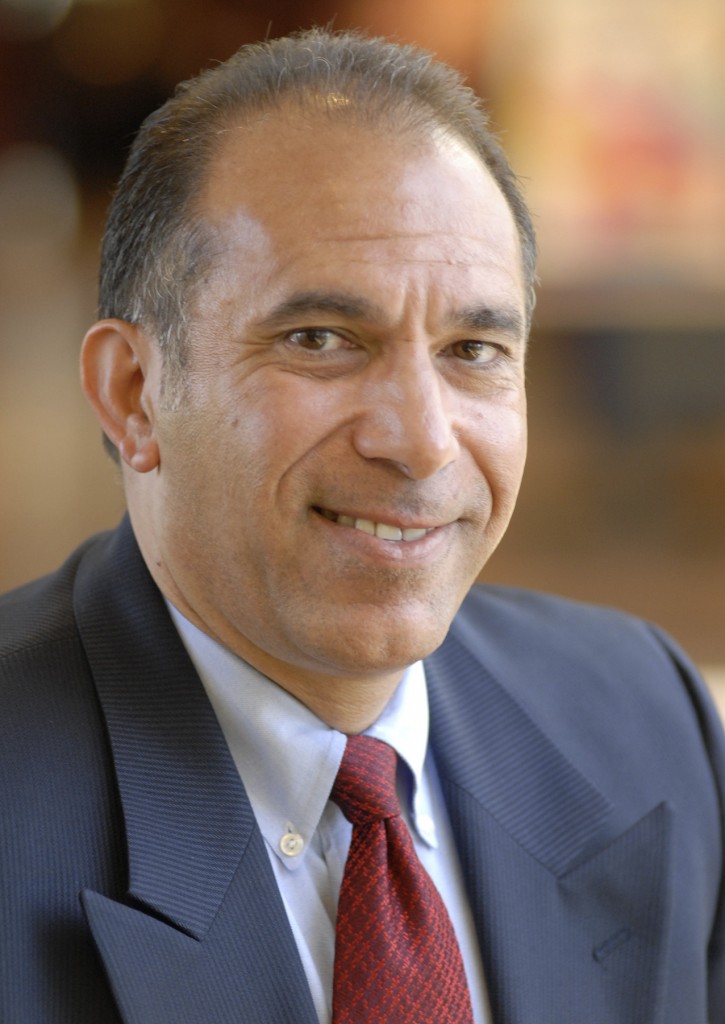 Jorge L. Cardenas was named vice president — asset management and centralized services at PSE&G in July 2012. In this role, he is responsible for electric and gas asset strategy, asset reliability, electric delivery planning, gas system operations and technical services, utility business performance and improvement, utility operations services, utility finance support, basic generation services and basic gas supply services, and energy supplier services.
Jorge L. Cardenas was named vice president — asset management and centralized services at PSE&G in July 2012. In this role, he is responsible for electric and gas asset strategy, asset reliability, electric delivery planning, gas system operations and technical services, utility business performance and improvement, utility operations services, utility finance support, basic generation services and basic gas supply services, and energy supplier services.
Prior to this position, Mr. Cardenas was vice president – gas delivery, with responsibility for providing gas delivery and appliance repair services to 1.8 million PSE&G customers. Since joining PSE&G in 1977, he has held various positions in electric delivery, gas delivery and corporate services.
Throughout his career, Mr. Cardenas has been a champion for health and safety in the workplace and served as the chairman of the N.J. State Safety Council from 2007 to 2011. He was named chairman of the March of Dimes Essex County Walk America from 2005 to 2007. He was also named a member of the March of Dimes board of directors for N.J. in 2007 and served as state board vice chairman from 2009 to 2011.
Mr. Cardenas is a member of the Leadership Council of the American Gas Association, and serves on the board of directors of the Northeast Gas Association. He was honored with a N.J. Minority Achiever’s Award in 2004, and selected to attend the Leadership N.J. program in 2000.
Mr. Cardenas received his bachelor’s degree in engineering from the Stevens Institute of Technology, and completed the Penn State Executive Development Program. He received his Master of Business Administration degree from Rutgers University’s Executive MBA program. As part of his MBA, he studied international business at Cambridge University in England.
Emily Ann Carter
Founding Director, Andlinger Center for Energy and the Environment
Gerhard R. Andlinger Professor in Energy and the Environment;
Professor of Mechanical and Aerospace Engineering and Applied and Computational Mathematics
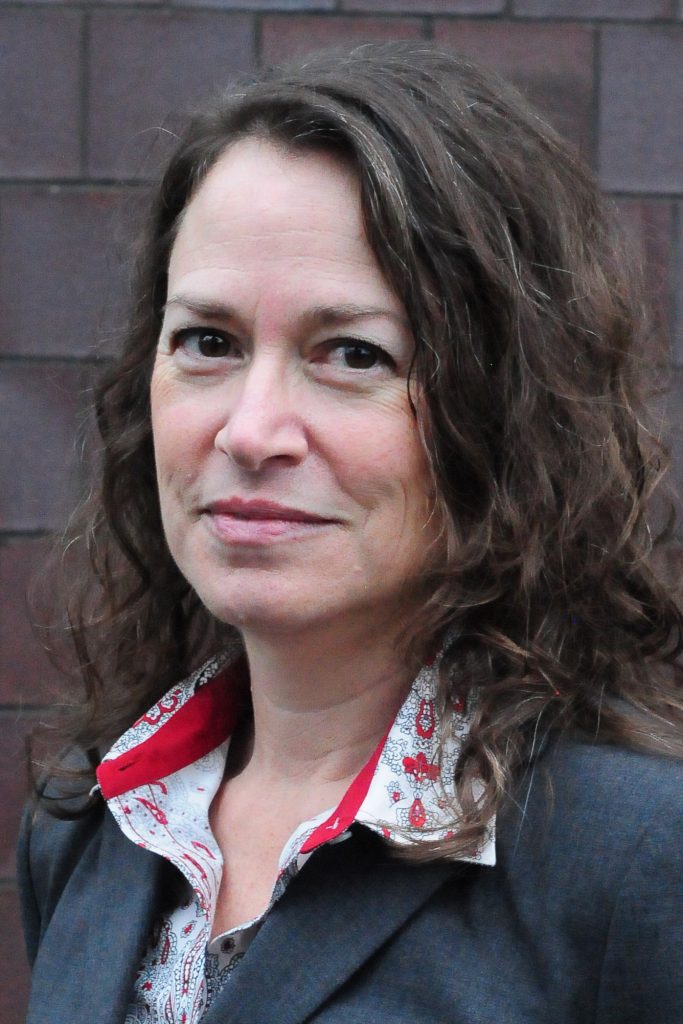 Professor Carter is the Founding Director of the Andlinger Center for Energy and the Environment at Princeton University and the Gerhard R. Andlinger Professor in Energy and the Environment, as well as Professor of Mechanical and Aerospace Engineering and Applied and Computational Mathematics. Her current research is focused entirely on enabling discovery and design of molecules and materials for sustainable energy, including converting sunlight to electricity and fuels, providing clean electricity from solid oxide fuel cells, clean and efficient combustion of biofuels, optimizing lightweight metal alloys for fuel-efficient vehicles, and characterizing hydrogen isotope incorporation into plasma facing components of fusion reactors. Professor Carter received her B.S. in Chemistry from UC Berkeley in 1982 (graduating Phi Beta Kappa) and her Ph.D. in Chemistry from Caltech in 1987. After a year as a postdoctoral researcher at the University of Colorado, Boulder, she spent the next 16 years on the faculty of UCLA as a Professor of Chemistry and later of Materials Science and Engineering. She moved to Princeton University in 2004. She holds courtesy appointments in Chemistry, Chemical and Biological Engineering, and three interdisciplinary institutes (PICSciE, PRISM, and PEI). The author of over 275 publications, she has delivered more than 440 invited lectures all over the world and serves on numerous international advisory boards spanning a wide range of disciplines. Her scholarly work has been recognized by a number of national and international awards and honors from a variety of entities, including the American Chemical Society (ACS), the American Vacuum Society, the American Physical Society, the American Association for the Advancement of Science, and the International Academy of Quantum Molecular Science. She received the 2007 ACS Award for Computers in Chemical and Pharmaceutical Research, was elected in 2008 to both the American Academy of Arts and Sciences and the National Academy of Sciences, in 2009 was elected to the International Academy of Quantum Molecular Science, in 2011 was awarded the August Wilhelm von Hofmann Lecture of the German Chemical Society, and in 2012 received a Docteur Honoris Causa from the Ecole Polytechnique Federale de Lausanne. You can learn more about her at http://carter.princeton.edu.
Professor Carter is the Founding Director of the Andlinger Center for Energy and the Environment at Princeton University and the Gerhard R. Andlinger Professor in Energy and the Environment, as well as Professor of Mechanical and Aerospace Engineering and Applied and Computational Mathematics. Her current research is focused entirely on enabling discovery and design of molecules and materials for sustainable energy, including converting sunlight to electricity and fuels, providing clean electricity from solid oxide fuel cells, clean and efficient combustion of biofuels, optimizing lightweight metal alloys for fuel-efficient vehicles, and characterizing hydrogen isotope incorporation into plasma facing components of fusion reactors. Professor Carter received her B.S. in Chemistry from UC Berkeley in 1982 (graduating Phi Beta Kappa) and her Ph.D. in Chemistry from Caltech in 1987. After a year as a postdoctoral researcher at the University of Colorado, Boulder, she spent the next 16 years on the faculty of UCLA as a Professor of Chemistry and later of Materials Science and Engineering. She moved to Princeton University in 2004. She holds courtesy appointments in Chemistry, Chemical and Biological Engineering, and three interdisciplinary institutes (PICSciE, PRISM, and PEI). The author of over 275 publications, she has delivered more than 440 invited lectures all over the world and serves on numerous international advisory boards spanning a wide range of disciplines. Her scholarly work has been recognized by a number of national and international awards and honors from a variety of entities, including the American Chemical Society (ACS), the American Vacuum Society, the American Physical Society, the American Association for the Advancement of Science, and the International Academy of Quantum Molecular Science. She received the 2007 ACS Award for Computers in Chemical and Pharmaceutical Research, was elected in 2008 to both the American Academy of Arts and Sciences and the National Academy of Sciences, in 2009 was elected to the International Academy of Quantum Molecular Science, in 2011 was awarded the August Wilhelm von Hofmann Lecture of the German Chemical Society, and in 2012 received a Docteur Honoris Causa from the Ecole Polytechnique Federale de Lausanne. You can learn more about her at http://carter.princeton.edu.
Christodoulos A. Floudas
Stephen C. Macaleer ’63 Professor in Engineering and Applied Science
Professor of Chemical and Biological Engineering
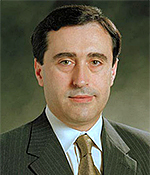 Christodoulos Floudas is the Stephen C. Macaleer ’63 Professor in Engineering and Applied Science, Professor of Chemical and Biological Engineering at Princeton University, faculty in the Center for Quantitative Biology at Princeton University’s Lewis-Sigler Institute, associated faculty in the Program of Computational and Applied Mathematics at Princeton University, Department of Operations Research and Financial Engineering at Princeton University, and the Andlinger Center for Energy and the Environment. He earned his B.S.E. in 1982 at Aristotle University of Thessaloniki, Greece, completed his Ph.D. in December 1985 at Carnegie Mellon University and joined Princeton University as a faculty member in February 1986. In July 1991, he was promoted to Associate Professor and in July 1994, to Professor. He held Visiting Professor positions at Imperial College, England (Fall 1992); Swiss Federal Institute of Technology, ETH, Switzerland (Spring 1993); University of Vienna, Austria (Spring 1996); Chemical Process Engineering Research Institute (CPERI), Thessaloniki, Greece (Fall 1998); and University of Minnesota (Spring 2008).
Christodoulos Floudas is the Stephen C. Macaleer ’63 Professor in Engineering and Applied Science, Professor of Chemical and Biological Engineering at Princeton University, faculty in the Center for Quantitative Biology at Princeton University’s Lewis-Sigler Institute, associated faculty in the Program of Computational and Applied Mathematics at Princeton University, Department of Operations Research and Financial Engineering at Princeton University, and the Andlinger Center for Energy and the Environment. He earned his B.S.E. in 1982 at Aristotle University of Thessaloniki, Greece, completed his Ph.D. in December 1985 at Carnegie Mellon University and joined Princeton University as a faculty member in February 1986. In July 1991, he was promoted to Associate Professor and in July 1994, to Professor. He held Visiting Professor positions at Imperial College, England (Fall 1992); Swiss Federal Institute of Technology, ETH, Switzerland (Spring 1993); University of Vienna, Austria (Spring 1996); Chemical Process Engineering Research Institute (CPERI), Thessaloniki, Greece (Fall 1998); and University of Minnesota (Spring 2008).
Professor Floudas is a world-renowned authority in mathematical modeling and optimization of complex systems. His research interests lie at the interface of chemical engineering, applied mathematics, and operations research, with principal areas of focus including chemical process synthesis and design, process control and operations, discrete-continuous nonlinear optimization, local and global optimization, and computational chemistry and molecular biology. Professor Floudas is the author of two graduate textbooks, Nonlinear Mixed-Integer Optimization (Oxford University Press, 1995), and Deterministic Global Optimization (Kluwer Academic Publishers, 2000). He has co-edited ten monographs/books, has over 270 refereed publications, delivered over 320 invited lectures, seminars, and named lectureships including the 2007 Bayer lecture at Carnegie Mellon, the 2008 15th Professor Roger W.H. Sargent Lecture at Imperial College, and the 2008 George T. Piercy lecture at the University of Minnesota. He is the chief co-editor of the Encyclopedia of Optimization (Kluwer Academic Publishers, 2001; 2nd edition, Springer, 2008). He is the recipient of numerous awards and honors for teaching and research that include the NSF Presidential Young Investigator Award, 1988; the Engineering Council Teaching Award, Princeton University, 1995; the Bodossaki Foundation Award in Applied Sciences, 1997; the Best Paper Award in Computers and Chemical Engineering, 1998; the Aspen Tech Excellence in Teaching Award, 1999; the 2001 AIChE Professional Progress Award for Outstanding Progress in Chemical Engineering; the 2006 AIChE Computing in Chemical Engineering Award; the 2007 Graduate Mentoring Award, Princeton University; Member of National Academy of Engineering, 2011; One thousand Global Experts, China 2012-2015; and SIAM Fellow, 2013.
Professor Floudas has served on the Editorial Boards of AIChE Journal (2012-present); Industrial Engineering Chemistry Research (1998-2001); Journal of Global Optimization; Computers and Chemical Engineering (2001-present); Journal of Optimization Theory and Its Applications; Kluwer Book Series on Nonconvex Optimization and its Applications; Informatica; Journal of Computational Analysis and Applications; Optimization Letters; Int. Journal of Management Science and Engineering Management; Applied and Computational Mathematics; and Energy Systems. He has been Director of the CAST Division of AIChE (1999-2001); Trustee of CACHE Corp. (2003-2006), and a member of the American Institute of Chemical Engineers, INFORMS, the Mathematical Programming Society, and the Society of Industrial and Applied Mathematics. He has co-organized the conferences on Recent Advances In Global Optimization (May 1991), State of the Art in Global Optimization: Computational Methods and Applications (May 1995), Optimization in Computational Chemistry and Molecular Biology: Local and Global Approaches (May 1999), Frontiers in Global Optimization (June 2003), the Foundations of Computer Aided Process Design Conference: Discovery through Product and Process Design (July 2004), and Advances in Global Optimization (June 2007). He has supervised thirty seven doctoral students and twenty postdoctoral associates.
Cheryl A. LaFleur
Commissioner, Federal Energy Regulatory Commission
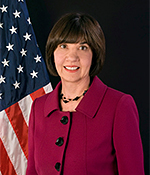 Commissioner Cheryl A. LaFleur was nominated by President Barack Obama to serve as a member of the Federal Energy Regulatory Commission in 2010 and confirmed by the U.S. Senate for a term that ends in June 2014.
Commissioner Cheryl A. LaFleur was nominated by President Barack Obama to serve as a member of the Federal Energy Regulatory Commission in 2010 and confirmed by the U.S. Senate for a term that ends in June 2014.
Among Commissioner LaFleur’s priorities at the Commission are strengthening reliability and grid security, promoting regional transmission planning, and supporting a clean and diverse power supply. She serves as the FERC liaison to the Department of Energy’s Electricity Advisory Committee. She is also a member of the NARUC Committees on Electricity and Critical Infrastructure and co-chair of the FERC/NARUC Forum on Reliability and the Environment. She is a frequent speaker on energy issues.
Commissioner LaFleur has more than 20 years’ experience as a leader in the electric and natural gas industry. She served as executive vice president and acting CEO of National Grid USA, responsible for the delivery of electricity to 3.4 million customers in the Northeast. Her previous positions at National Grid USA and its predecessor New England Electric System included chief operating officer, president of the New England distribution companies and general counsel. She led major efforts to improve reliability and employee safety. Earlier in her career, she was responsible for leading award-winning conservation and demand response programs for customers.
Commissioner LaFleur has been a nonprofit board member and leader, including as a trustee of Beth Israel Deaconess Medical Center, Worcester Polytechnic Institute, United Way of Central Massachusetts, and several other organizations. She is also active in several women’s energy organizations. She has been honored by the Greater Boston Chamber of Commerce, Bryant University, and the YWCA of Central Massachusetts, among others.
Commissioner LaFleur began her career as a lawyer at Ropes and Gray in Boston. She has a J.D. from Harvard Law School, where she was an editor of the Harvard Law Review, and an A.B. from Princeton University. A native of Massachusetts, she is married to William A. Kuncik, a retired attorney, and they are the parents of two grown children.
Ning Lin
Assistant Professor of Civil and Environmental Engineering
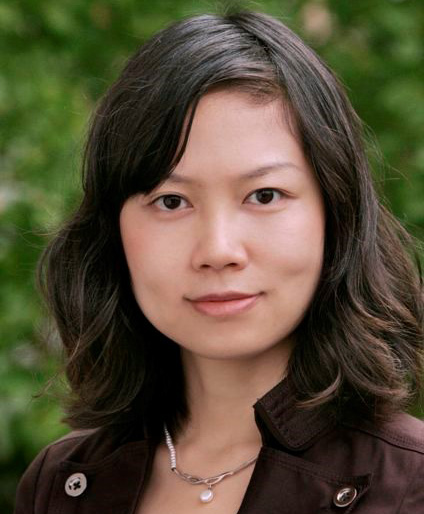 Ning Lin is an assistant professor of civil and environmental engineering at Princeton University. Professor Lin is interested in natural hazards and risk analysis. Her current research integrates science, engineering, and policy to study tropical cyclones and associated weather extremes, how they change with climate, and how their impact on society can be mitigated. Prior to Princeton University, she was a NOAA Climate and Global Change Postdoctoral Fellow in the Department of Earth, Atmospheric and Planetary Sciences at MIT for two years. Ning Lin received her B.S. from Huazhong University of Science and Technology (China), her M.S. from Texas Tech University, and her Ph.D. from Princeton University. She received a certificate in Science, Technology and Environmental Policy (STEP) from Princeton University.
Ning Lin is an assistant professor of civil and environmental engineering at Princeton University. Professor Lin is interested in natural hazards and risk analysis. Her current research integrates science, engineering, and policy to study tropical cyclones and associated weather extremes, how they change with climate, and how their impact on society can be mitigated. Prior to Princeton University, she was a NOAA Climate and Global Change Postdoctoral Fellow in the Department of Earth, Atmospheric and Planetary Sciences at MIT for two years. Ning Lin received her B.S. from Huazhong University of Science and Technology (China), her M.S. from Texas Tech University, and her Ph.D. from Princeton University. She received a certificate in Science, Technology and Environmental Policy (STEP) from Princeton University.
Yueh-Lin (Lynn) Loo
Theodora D. ’78 & William H. Walton III ’74 Professor in Engineering;
Professor of Chemical and Biological Engineering;
Associate Director for External Partnerships, Andlinger Center for Energy and the Environment
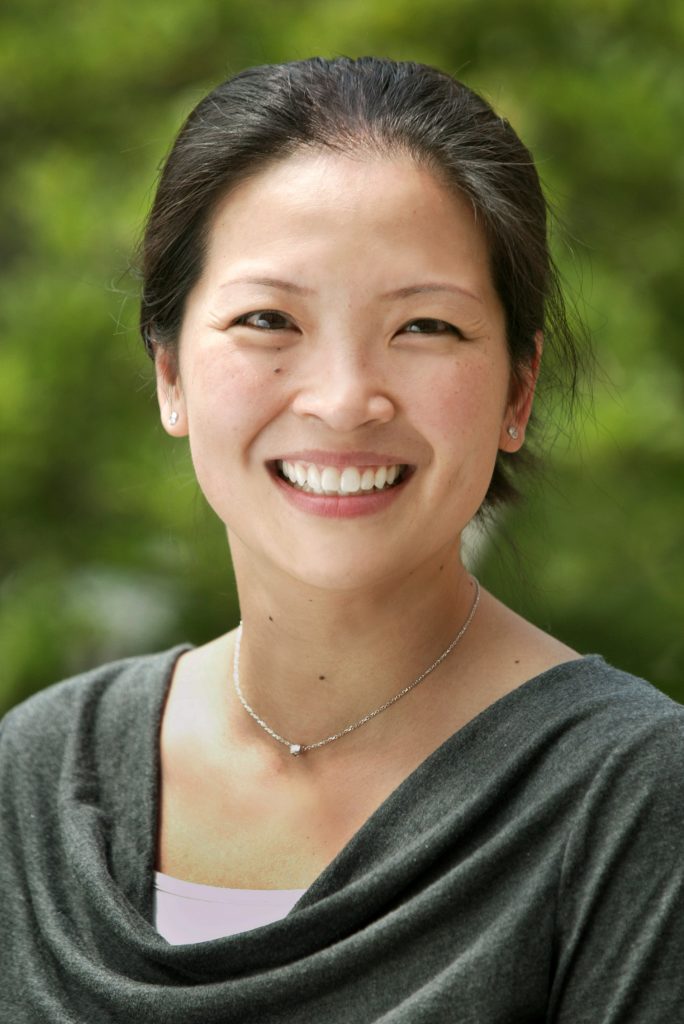 A professor of Chemical and Biological Engineering at Princeton University, Yueh-Lin (Lynn) Loo’s current research focuses on developing new materials and manipulating their structure to realize low-cost, lightweight, highly scalable plastic solar cells. For her research in organic and plastic electronics, Lynn has garnered numerous accolades, including a DuPont Young Professor Award, a Beckman Young Investigator Award, a Sloan Fellowship and her selection as one of the top 100 Young Innovators by MIT’s Technology Review. She was the recipient of the 2006 Allan P. Colburn Award sponsored of the American Institute of Chemical Engineers and the 2010 John H. Dillon Medal recipient of the American Physical Society. In 2010, Lynn was selected as one of two scientists to represent the United States of America at the World Economic Forum’s Summer Davos Meeting in Tianjin, China during which she introduced plastic electronics to government and business leaders, dignitaries, and entrepreneurs. In 2012, the World Economic Forum recognized Lynn as a Young Global Leader in recognition of her leadership and contributions in promoting cutting-edge ideas to the general public. She was elected Fellow of the American Physical Society this year.
A professor of Chemical and Biological Engineering at Princeton University, Yueh-Lin (Lynn) Loo’s current research focuses on developing new materials and manipulating their structure to realize low-cost, lightweight, highly scalable plastic solar cells. For her research in organic and plastic electronics, Lynn has garnered numerous accolades, including a DuPont Young Professor Award, a Beckman Young Investigator Award, a Sloan Fellowship and her selection as one of the top 100 Young Innovators by MIT’s Technology Review. She was the recipient of the 2006 Allan P. Colburn Award sponsored of the American Institute of Chemical Engineers and the 2010 John H. Dillon Medal recipient of the American Physical Society. In 2010, Lynn was selected as one of two scientists to represent the United States of America at the World Economic Forum’s Summer Davos Meeting in Tianjin, China during which she introduced plastic electronics to government and business leaders, dignitaries, and entrepreneurs. In 2012, the World Economic Forum recognized Lynn as a Young Global Leader in recognition of her leadership and contributions in promoting cutting-edge ideas to the general public. She was elected Fellow of the American Physical Society this year.
Currently in her third year as the Associate Director for External Partnerships of the Andlinger Center for Energy and the Environment, Lynn leads the Princeton E-ffiliates Partnership to foster collaborations between Princeton faculty and the private and public sectors, with the ultimate aim of getting the very best ideas in academia to entrepreneurs and industrialists. Lynn was a Fellow at NewWorld Capital Group, a private equity firm that invests in environmental opportunities, to understand how successful businesses are seeded, built, and cultivated.
Lynn received B.S.E. degrees in Chemical Engineering and Materials Science and Engineering from the University of Pennsylvania in 1996, and a Ph.D. in Chemical Engineering from Princeton University in 2001. Lynn was a Post-doctoral Member of the Technical Staff at Bell Laboratories for a year before she started her independent research program as the General Dynamics Endowed Faculty Fellow in the Chemical Engineering Department at the University of Texas at Austin. In 2007, Lynn returned to the Chemical and Biological Engineering Department at Princeton.
Guy J. Nordenson
Professor of Architecture
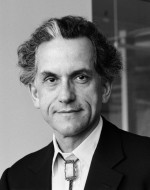 Guy Nordenson is a structural engineer and professor of architecture at Princeton University. He studied at MIT and the University of California at Berkeley and began his career as a draftsman in the joint studio of R Buckminster Fuller and Isamu Noguchi in Long Island City in 1976. From 1978 he has practiced structural engineering in San Francisco and New York. In 1987, he established the New York office of Ove Arup & Partners and was its director until 1997 when he began his independent practice.
Guy Nordenson is a structural engineer and professor of architecture at Princeton University. He studied at MIT and the University of California at Berkeley and began his career as a draftsman in the joint studio of R Buckminster Fuller and Isamu Noguchi in Long Island City in 1976. From 1978 he has practiced structural engineering in San Francisco and New York. In 1987, he established the New York office of Ove Arup & Partners and was its director until 1997 when he began his independent practice.
In 1994 he co-founded the Structural Engineers Association of New York. With Terence Riley he was co-curator of the “Tall Buildings” exhibition held at MoMA QNS in 2004. His research project “On the Water | Palisade Bay” won the 2007 American Institute of Architects (AIA) College of Fellows Latrobe Research Prize, was published in 2010 by Hatje Cantz and served as the inspiration for the influential 2010 MoMA workshop and exhibition “Rising Currents”. His books Seven Structural Engineers – The Felix Candela Lectures in Structural Engineering was published in 2008 by MoMA and the collection of essays Patterns and Structure in 2010 by Lars Müller Publishers. In 2009 Nordenson was awarded the AIA’s Institute Honors for Collaborative Achievement Award and was elected to the American Academy of Arts and Sciences. He is Commissioner and Secretary of the New York City Public Design Commission and member of the NYC Panel on Climate Change, appointed by Mayor Mike Bloomberg.
Nordenson was the structural engineer for the Museum of Modern Art expansion in New York, the Jubilee Church in Rome, the Simmons Residence Hall at MIT in Massachusetts, the Santa Fe Opera House, the New Museum of Contemporary Art in New York and the Nelson-Atkins Museum of Art in Kansas City and over 100 other projects. Current projects include the expansion of the Kimbell Art Museum in Fort Worth and the National Museum of African American History and Culture in Washington DC and the Menil Drawing Center in Houston TX. From the late 1970s Nordenson was active in earthquake engineering, including code development, technology transfer, long-range planning for FEMA and the USGS, and research and initiated and he led the development of the New York City Seismic Code from 1984 to its enactment into law in 1995.
More recently, he has been engaged in climate adaptation and flood hazards mitigation research and has been active in improving the resilience of New York City as a member of numerous committees and task forces including the NYS 2100 Commission appointed by Governor Cuomo and as director of the newly formed Jamaica Bay–Rockaway Parks Conservancy. His research team at Princeton, led by Nordenson and the Andlinger Center for Energy and the Environment, was recently awarded a major grant by the Rockefeller Foundation to develop “New Directions in Coastal Resilient Design Strategies,” in collaboration with the Army Corps of Engineers and coordinating teams from Harvard, City College of NY and University of Pennsylvania.
Barry P. Rand
Assistant Professor of Electrical Engineering and the Andlinger Center for Energy and the Environment
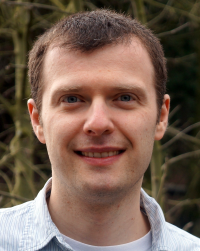 Barry Rand’s research is concerned with understanding and leveraging the electronic and optical properties of thin film materials, and in particular semiconductors. Specifically, this includes the use of molecular and chalcogenide (e.g. oxide) semiconductors, as well as nanostructured quantized matter for emerging applications in solar cells, light emitting devices, and transistors. Being interdisciplinary in nature, his work resides at the intersection of electrical engineering, materials science, physics, and chemistry, and he works with materials processed either in vacuum or via solution-phase. His labs consist of infrastructure for the preparation and testing of thin films and devices. He received a B.E. in Electrical Engineering from The Cooper Union, and a Ph.D. from Princeton University.
Barry Rand’s research is concerned with understanding and leveraging the electronic and optical properties of thin film materials, and in particular semiconductors. Specifically, this includes the use of molecular and chalcogenide (e.g. oxide) semiconductors, as well as nanostructured quantized matter for emerging applications in solar cells, light emitting devices, and transistors. Being interdisciplinary in nature, his work resides at the intersection of electrical engineering, materials science, physics, and chemistry, and he works with materials processed either in vacuum or via solution-phase. His labs consist of infrastructure for the preparation and testing of thin films and devices. He received a B.E. in Electrical Engineering from The Cooper Union, and a Ph.D. from Princeton University.
Willem Rensink
Shell GameChanger
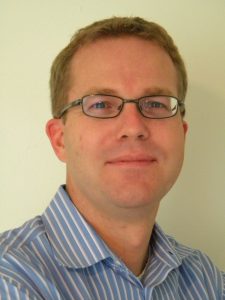 Willem Rensink is part of the Shell GameChanger team. The GameChanger team identifies and incubates revolutionary ideas to proof of concept. GameChanger provides a flexible supportive partnership role as well as funding both for internal Shell people as well as external entrepreneurs or University researchers to mature an early stage radical idea to redefine the future of energy. Before joining the GameChanger team, Willem Rensink was part of the Shell Biofuels R&D group. He joined Shell from the Cargill Biotechnology Development Center where he was involved in biocatalyst development. Prior to that, he held positions at the J. Craig Venter Institute and Syngenta. He received his Ph.D. from Utrecht University in the Netherlands.
Willem Rensink is part of the Shell GameChanger team. The GameChanger team identifies and incubates revolutionary ideas to proof of concept. GameChanger provides a flexible supportive partnership role as well as funding both for internal Shell people as well as external entrepreneurs or University researchers to mature an early stage radical idea to redefine the future of energy. Before joining the GameChanger team, Willem Rensink was part of the Shell Biofuels R&D group. He joined Shell from the Cargill Biotechnology Development Center where he was involved in biocatalyst development. Prior to that, he held positions at the J. Craig Venter Institute and Syngenta. He received his Ph.D. from Utrecht University in the Netherlands.
Susan Ruffo
Deputy Associate Director for Climate Change Adaptation, White House Council on Environmental Quality
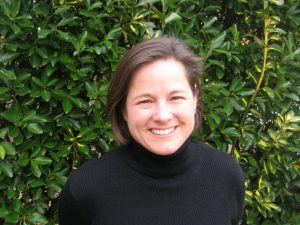 Susan Ruffo is the Deputy Associate Director for Climate Change Adaptation at the White House Council on Environmental Quality. She manages the Interagency Climate Change Adaptation Task Force, which focuses on strengthening Federal policies and programs to better prepare the nation to respond to climate change impacts.
Susan Ruffo is the Deputy Associate Director for Climate Change Adaptation at the White House Council on Environmental Quality. She manages the Interagency Climate Change Adaptation Task Force, which focuses on strengthening Federal policies and programs to better prepare the nation to respond to climate change impacts.
Before joining CEQ, Susan was the Director of Coastal and Marine Adaptation at The Nature Conservancy, where she led the coastal adaptation strategy, focusing on how ecosystems such as reefs and marshes can reduce human vulnerability to coastal hazards and climate change. Previously, Susan was a Foreign Service Officer at the State Department. Her last posting was as Senior Trade Policy Officer at the U.S. Embassy in Beijing, where she led a team that analyzed China’s implementation of its WTO commitments. She also served in Argentina and Nigeria. Susan has degrees in Economics and Political Science from MIT.
George W. Scherer
William L. Knapp ’47 Professor of Civil Engineering;
Professor of Civil and Environmental Engineering and the Princeton Institute for the Science and Technology of Materials
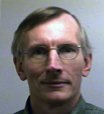 George W. Scherer received his B.S. and M.S. degrees in 1972 and his Ph.D. in materials science in 1974, all from MIT, where his thesis work was on crystal growth in glass. From 1974 to 1985, he was at Corning Glass Works, where his research included optical fiber fabrication, viscous sintering, and viscoelastic stress analysis. The latter work was the subject of his first book, Relaxation in Glass and Composites (Wiley, 1986). From 1985 through 1995, he was a member of the Central Research Dept. of the DuPont Company, where his work dealt principally with sol-gel processing, and especially with drying. In collaboration with Jeff Brinker of Sandia National Labs, he wrote a book entitled Sol-Gel Science (Academic Press, 1990). In addition, he is the author of ~300 papers and holds 10 US patents. He is a fellow of the American Ceramic Society and a member of the Materials Research Society. In 1997 he was elected to the National Academy of Engineering.
George W. Scherer received his B.S. and M.S. degrees in 1972 and his Ph.D. in materials science in 1974, all from MIT, where his thesis work was on crystal growth in glass. From 1974 to 1985, he was at Corning Glass Works, where his research included optical fiber fabrication, viscous sintering, and viscoelastic stress analysis. The latter work was the subject of his first book, Relaxation in Glass and Composites (Wiley, 1986). From 1985 through 1995, he was a member of the Central Research Dept. of the DuPont Company, where his work dealt principally with sol-gel processing, and especially with drying. In collaboration with Jeff Brinker of Sandia National Labs, he wrote a book entitled Sol-Gel Science (Academic Press, 1990). In addition, he is the author of ~300 papers and holds 10 US patents. He is a fellow of the American Ceramic Society and a member of the Materials Research Society. In 1997 he was elected to the National Academy of Engineering.
In February, 1996, he became a full professor in the Department of Civil and Environmental Engineering at Princeton University, and a member of the Princeton Materials Institute (now called PRISM). His research involves mechanisms of deterioration of concrete and stone, particularly by crystallization of ice and salts in the pores, transport properties, and structure-property relationships in porous materials.
Robert H. Socolow
Professor of Mechanical and Aerospace Engineering, Emeritus
Senior Research Scholar
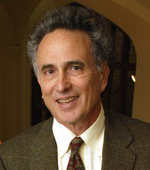 Robert Socolow is Professor Emeritus and Senior Research Scientist at Princeton University, where he was on the faculty in the Department of Mechanical and Aerospace Engineering (MAE) for 42 years. Socolow’s current research focuses on the characteristics of a global energy system responsive to global and local environmental and security constraints. His specific areas of interest include global carbon management, carbon dioxide capture from fossil fuels and storage in geological formations, nuclear power, energy efficiency in buildings, and the acceleration of deployment of advanced technologies in developing countries. He is the co-principal investigator (with ecologist, Stephen Pacala) of Princeton University’s Carbon Mitigation Initiative, a twenty-year (2001-2020) project, supported by BP.
Robert Socolow is Professor Emeritus and Senior Research Scientist at Princeton University, where he was on the faculty in the Department of Mechanical and Aerospace Engineering (MAE) for 42 years. Socolow’s current research focuses on the characteristics of a global energy system responsive to global and local environmental and security constraints. His specific areas of interest include global carbon management, carbon dioxide capture from fossil fuels and storage in geological formations, nuclear power, energy efficiency in buildings, and the acceleration of deployment of advanced technologies in developing countries. He is the co-principal investigator (with ecologist, Stephen Pacala) of Princeton University’s Carbon Mitigation Initiative, a twenty-year (2001-2020) project, supported by BP.
Socolow was the chair of the Panel on Public Affairs of the American Physical Society (APS) and the co-chair of the APS study: Direct Air Capture of CO2 with Chemicals. He was a member of the National Academies’ Committee on America’s Climate Choices and its Committee on America’s Energy Future.
Socolow serves on the Advisory Board of Lawrence Berkeley National Laboratory (LBNL), the Editorial Board of Energy and Environmental Science, and the Deutsche Bank Climate Change Advisory Board. He was the editor of Annual Review of Energy and the Environment, 1992-2002
Among Socolow’s recent awards are the 2010 Leadership in the Environment Award from Keystone Center; the 2009 Frank Kreith Energy Award from the American Society of Mechanical Engineers; the 2005 Axelson Johnson Commemorative Lecture award (for “outstanding research in global carbon management and the hydrogen economy”) from the Royal Academy of Engineering Sciences of Sweden (IVA) and the Axel Axelson Johnson Endowment; and the 2003 Leo Szilard Lectureship Award (“for leadership in establishing energy and environmental problems as legitimate research fields for physicists, and for demonstrating that these broadly defined problems can be addressed with the highest scientific standards”) from the American Physical Society. He is a Fellow of the American Association for the Advancement of Science and a Fellow of the American Physical Society.
Socolow has a B.A. (summa cum laude, 1959) and a Ph.D. in theoretical high energy physics (1964) from Harvard University. He was an assistant professor of physics at Yale University from 1966 to 1971.
Daniel Steingart
Assistant Professor of Mechanical and Aerospace Engineering and the Andlinger Center for Energy and the Environment
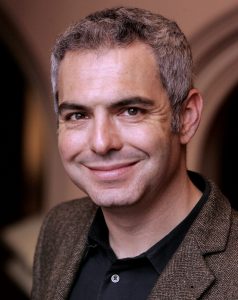 Dan Steingart is an assistant professor in the Department of Mechanical and Aerospace Engineering and the Andlinger Center for Energy and the Environment at Princeton University. Previously, he was an assistant professor of chemical engineering at the City College of New York, a founding faculty member of the CUNY Energy Institute, and the founding director of the Kaylie Prize in Entrepreneurship at the Zahn Center. Since 2010, he has been a key member of two ARPA-E projects relating to next-generation electrical grid systems. The first a project will realize a 5000 cycle battery that costs $100/kWhr. The second project will create a process to scale solid state capacitors for applications in power conversion and power factor correction.
Dan Steingart is an assistant professor in the Department of Mechanical and Aerospace Engineering and the Andlinger Center for Energy and the Environment at Princeton University. Previously, he was an assistant professor of chemical engineering at the City College of New York, a founding faculty member of the CUNY Energy Institute, and the founding director of the Kaylie Prize in Entrepreneurship at the Zahn Center. Since 2010, he has been a key member of two ARPA-E projects relating to next-generation electrical grid systems. The first a project will realize a 5000 cycle battery that costs $100/kWhr. The second project will create a process to scale solid state capacitors for applications in power conversion and power factor correction.
Beyond these projects he has developed a printing process for electrochemical energy storage, distributed sensors for large scale electrochemical processes, and thermoelectric power conversion circuitry for wireless sensor nodes in both academic and industrial laboratories. As a co-founder of Wireless Industrial Technologies (WIT) he was the recipient of a National Science Foundation (NSF) SBIR. As a graduate student at UC Berkeley, he was an Intel Scholar, received a NSF EAPSI grant to study inkjet printing in Japan, received the Daniel Cubicciotti Award from the Electrochemical Society, and received a design award from the International Solid States Circuits Conference. He earned his Sc.B. from Brown University (with honors), and his M.S. and Ph.D. from UC Berkeley.
Claire E. White
Assistant Professor of Civil and Environmental Engineering and the Andlinger Center for Energy and the Environment
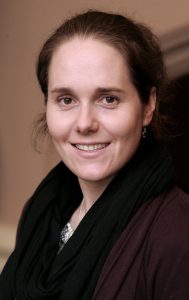 Claire White received a B.Eng. in Civil Engineering (with Honors, graduating with highest academic performance) and a B.S. in Physics from the University of Melbourne, Australia, in 2006. She completed her graduate studies in 2010 at the University of Melbourne in the Geopolymer and Minerals Processing group, supported by an Australian Postgraduate Award from the Australian government. After receiving her Ph.D., she worked as a postdoc at Los Alamos National Laboratory, and was awarded a Director’s Postdoctoral Fellowship to research the atomic structure of low-CO2 alkali-activated cements. In 2012, she was awarded the Outstanding Student Research Prize from the Neutron Scattering Society of America in recognition of her Ph.D. research contributions to neutron sciences.
Claire White received a B.Eng. in Civil Engineering (with Honors, graduating with highest academic performance) and a B.S. in Physics from the University of Melbourne, Australia, in 2006. She completed her graduate studies in 2010 at the University of Melbourne in the Geopolymer and Minerals Processing group, supported by an Australian Postgraduate Award from the Australian government. After receiving her Ph.D., she worked as a postdoc at Los Alamos National Laboratory, and was awarded a Director’s Postdoctoral Fellowship to research the atomic structure of low-CO2 alkali-activated cements. In 2012, she was awarded the Outstanding Student Research Prize from the Neutron Scattering Society of America in recognition of her Ph.D. research contributions to neutron sciences.
In August, 2013 she joined the faculty at Princeton University as an Assistant Professor in the Department of Civil and Environmental Engineering and the Andlinger Center for Energy and the Environment. Her research group focuses on understanding and optimizing engineering and environmental materials, including low-CO2 cements and CO2 sequestration. This research spans multiple length and time scales, utilizing advanced synchrotron and neutron-based experimental techniques, and simulation methodologies.
Daniel Zarrilli
Director of Resiliency for the City of New York
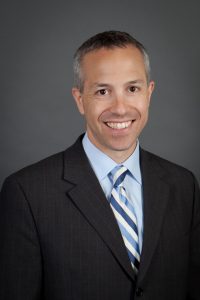 Daniel Zarrilli is the Director of Resiliency for the City of New York. Mayor Bloomberg appointed Daniel to this newly created position in June 2013 to lead the implementation of the City’s PlaNYC resiliency report: A Stronger, More Resilient New York. Until June 2013, he served on the Mayor’s Special Initiative for Rebuilding and Resiliency, leading the City’s efforts to develop a comprehensive coastal protection plan for the five boroughs. In a previous role, he was the Senior Vice President for Asset Management at the New York City Economic Development Corporation (NYCEDC), responsible for maritime assets and operations, including the City’s two cruise terminals and numerous other transportation and waterfront assets. Prior to joining NYCEDC, Daniel spent five years with Bechtel Infrastructure Corp. He is a Professional Engineer in the State of New York and holds an M.S. in Civil and Environmental Engineering from MIT and a B.S. in Civil Engineering from Lehigh University.
Daniel Zarrilli is the Director of Resiliency for the City of New York. Mayor Bloomberg appointed Daniel to this newly created position in June 2013 to lead the implementation of the City’s PlaNYC resiliency report: A Stronger, More Resilient New York. Until June 2013, he served on the Mayor’s Special Initiative for Rebuilding and Resiliency, leading the City’s efforts to develop a comprehensive coastal protection plan for the five boroughs. In a previous role, he was the Senior Vice President for Asset Management at the New York City Economic Development Corporation (NYCEDC), responsible for maritime assets and operations, including the City’s two cruise terminals and numerous other transportation and waterfront assets. Prior to joining NYCEDC, Daniel spent five years with Bechtel Infrastructure Corp. He is a Professional Engineer in the State of New York and holds an M.S. in Civil and Environmental Engineering from MIT and a B.S. in Civil Engineering from Lehigh University.
Welcome Address to E-filliates 2013 Annual Meeting
Yueh-Lin (Lynn) Loo, Emily A. Carter
The Changing U.S. Electric System: Challenges and Opportunities
Cheryl A. LaFleur
Mathematical Modeling and Optimization of Novel Waste-and-Gas-to-Liquid (WGTL) Processes
Christodoulos A. Floudas
Minimizing Cement Usage in Concrete
George W. Scherer
A Conversation with New Andlinger Center Faculty on Emerging Energy Technologies
Yueh-Lin (Lynn) Loo, Moderator; Forrest M. Meggers; Barry P. Rand; Daniel A. Steingart; Claire E. White
Multi-hazards Risk of Tropical Cyclones in a Changing Climate
Ning Lin
Climate Adaptation – Local and National
Guy J. Nordenson, Moderator; Jorge L. Cardenas; Susan Ruffo; Robert H. Socolow; Daniel A. Zarrilli
2012
The First Annual Meeting of Princeton E-ffiliates Partnership was held on Monday, November 12, 2012 at Princeton University.
Michel Di Capua – Head of US Analysis, Bloomberg New Energy Finance – gave the keynote address titled “What’s Next for US Energy?”
E-ffiliates members, industry representatives, and members of the Princeton University community had opportunities to interact in an arena that presented technical, business, and social components with the goal of building partnerships to accelerate innovation.
Registration on November 12
3:30 PM – 4:00 PM
Hydraulic Fracturing–Potential Implications for Climate Change and America’s Energy Future
4:00 PM – 5:30 PM
Moderator Denise Mauzerall, Professor of Civil and Environmental Engineering and Public and International Affairs
Pamela Franklin, U.S. Environmental Protection Agency, Chief of the Non-CO2 Programs Branch
Robert Harriss, Environmental Defense Fund, Senior Contributing Scientist; Houston Advanced Research Center, Distinguished Fellow
Gregory Hild, Chevron North America, Business Development, Planning and Integration Manager
Welcome Reception and Student Poster Session
5:30 PM – 7:30 PM
Registration on November 13
7:45 AM – 8:30 AM
Breakfast
8:00 AM – 8:30 AM
Welcome Address
8:30 AM – 8:40 AM
Lynn Loo, Professor of Chemical and Biological Engineering; Deputy Director, Andlinger Center for Energy and the Environment
Introduction to the Andlinger Center for Energy and the Environment
8:40 AM – 9:00 AM
Emily Carter, Gerhard R. Andlinger Professor in Energy and the Environment; Professor of Mechanical and Aerospace Engineering and Applied and Computational Mathematics; Founding Director, Andlinger Center for Energy and the Environment
Keynote Address – What’s Next for US Energy?
9:00 AM – 9:40 AM
Michel Di Capua, Head of US Analysis, Bloomberg New Energy Finance
Break
9:40 AM – 10:00 AM
The Challenges of Uncertainty in Energy Systems Analysis
10:00 AM – 10:30 AM
Warren Powell, Professor of Operations Research and Financial Engineering; Director, Program in Engineering and Management Systems
Photosynthesis, It’s Not Just for Plants Anymore: Light Driven Conversion of Carbon Dioxide to Fuels
10:30 AM – 11:00 AM
Andrew Bocarsly, Professor of Chemistry
Global Warming and the Land Carbon Sink
11:00 AM – 11:30 AM
Steve Pacala, Frederick D. Petrie Professor in Ecology and Evolutionary Biology; Director, Princeton Environmental Institute
Lunch – Update on the Construction of Andlinger Center for Energy and the Environment
11:30 AM – 1:00 PM
Tod Williams, Principal, Tod Williams Billie Tsien Architects
Laboratory and Campus Tours
1:00 PM – 2:00 PM
The Future of Nuclear Reactors: Large or Small?
2:00 PM – 3:30 PM
Moderator Robert Socolow, Professor of Mechanical and Aerospace Engineering
Alexander Glaser, Princeton University, Assistant Professor of Mechanical and Aerospace Engineering and International Affairs, Woodrow Wilson School
William Levis, PSEG Power, President and Chief Operating Officer
Pierre Oneid, Holtec International, Senior Vice President and Chief Nuclear Officer
Robert Rosner, University of Chicago, William E. Wrather Distinguished Service Professor
Wrap Up and Farewell
3:30 PM
Andrew Bocarsly
Professor of Chemistry
Photosynthesis, It’s Not Just for Plants Anymore: Light Driven Conversion of Carbon Dioxide to Fuels
Andrew Bocarsly received his Bachelor of Science degree jointly in chemistry and physics from UCLA in 1976, and his Ph.D. in chemistry from M.I.T. in 1980. He has been a member of the Princeton University, Chemistry Department faculty for thirty years. Professor Bocarsly has published over 175 papers in peer reviewed journals and co-authored six patents. Research in his laboratory is focused on the materials chemistry associated with elevated temperature proton exchange membrane fuel cells, including composite membranes for elevated temperature cells and electrocatalysts for direct alcohol fuel cells; visible light photoelectrochemistry for the conversion of carbon dioxide to alcohols; cyanogel sol-gel processing routes to refractory materials, metal alloys and nanostructures; and molecule-based multi-electron photoinduced charge transfer processes.
Professor Bocarsly serves as a consultant and contractor to various fuel cell and alternate energy companies. He is a founder and President of the Science Advisory Board for Liquid Light Inc., a company formed to commercialize the formation of organic commodity chemicals from carbon dioxide using alternate energy sources. Professor Bocarsly has received an Alfred P. Sloan Fellowship, the Sigma Xi (Princeton Section) Science Educator Award, the American Chemical Society-Exxon Solid State Chemistry award, and serves as the electrochem- istry editor for Methods in Materials Research. Presently, he is serving as a volume editor for Structure and Bonding in the area of fuel cells and batteries.
Michel Di Capua
Head of US Analysis, Bloomberg New Energy Finance
What’s Next for U.S. Energy?
Michel Di Capua is Head of US Analysis for Bloomberg New Energy Finance, based in New York City. In his current capacity he oversees an analyst team focused on research and analysis into renewable energy, energy efficiency, and carbon markets. This includes the production of in-depth reports and development of dedicated carbon, REC, and clean energy forecasting models. Michel’s previous professional experience includes solar energy project development with Tata Power in India and strategy consulting for the telecom industry. Michel has an undergraduate degree in Physics from Harvard, a Masters in Literature from Columbia, and an MBA from the Wharton School at the University of Pennsylvania.
Emily A. Carter
Gerhard R. Andlinger Professor in Energy and the Environment
Professor of Mechanical and Aerospace Engineering and Applied and Computational Mathematics
Founding Director, Andlinger Center for Energy and the Environment
Emily A. Carter is the Founding Director of the Andlinger Center for Energy and the Environment. Her current research is focused entirely on enabling discovery and design of molecules and materials for sustainable energy, including converting sunlight to electricity and fuels, providing clean electricity from solid oxide fuel cells, clean and efficient combustion of biofuels, and optimizing lightweight metal alloys for fuel-efficient vehicles. She was elected to the American Academy of Arts and Sciences, the National Academy of Sciences, and the International Academy of Quantum Molecular Science. She was awarded the August Wilhelm von Hofmann Lecture of the German Chemical Society in 2011, and she was awarded a Docteur Honoris Causa from L’Ecole Polytechnique Federale de Lausanne, Switzerland (EPFL) in 2012. She is a Fellow of the American Chemical Society. She is the author of over 250 publications and she has delivered more than 400 invited lectures. She received her B.S. in Chemistry from UC Berkeley in 1982 and her Ph.D. in Chemistry from Caltech in 1987
Pamela Franklin ’91
Branch Chief, Non-CO2 Programs Branch, Climate Change Division, U.S. Environmental Protection Agency
Hydraulic Fracturing–Potential Implications for Climate Change and America’s Energy Future
Pamela Franklin serves in the U.S. Environmental Protection Agency’s Climate Change Division as Chief of the Non-CO2 Programs Branch. At EPA, she oversees a number of programs focused on reducing methane and fluorinated gas emissions both domestically and internationally from key sectors such as oil & gas systems, agriculture, landfills, coal mining, and electronics manufacturing. Before serving as Branch Chief, Dr. Franklin was the Team Leader for the Coalbed Methane Outreach Program, and served as the Co-Chair of the Coal Mines Subcommittee for the Global Methane Initiative, formerly known as the international Methane to Markets Partnership. She was a Lead Author for the Intergovernmental Panel on Climate Change (IPCC) 2006 Technical Guidelines for emission inventories from the energy sector. Prior to joining U.S. EPA, she worked on a range of energy and environmental legislative issues as a Congressional Science Fellow sponsored by the American Association for the Advancement of Science (AAAS). Previously, she worked for several years as an environmental consultant, providing air quality technical and regulatory support.
Dr. Franklin earned a Ph.D. from the Energy and Resources Group at the University of California at Berkeley, an M.S. in Environmental Engineering from Stanford University, and a B.S.E. in Chemical Engineering from Princeton University.
Alexander Glaser
Assistant Professor of Mechanical and Aerospace Engineering and International Affairs, Woodrow Wilson School
Ralph O. Glendinning University Preceptor
The Future of Nuclear Reactors: Large or Small?
Alexander Glaser is Assistant Professor at the Woodrow Wilson School of Public and International Affairs and in the Department of Mechanical and Aerospace Engineering at Princeton University. His research includes both technical and policy analysis relevant to nuclear energy, nuclear nonproliferation, and climate change with a particular focus on the technical aspects of nuclear fuel-cycle technologies and policy issues related to future nuclear-energy use. Glaser works with the International Panel on Fissile Materials and directs Princeton’s Nuclearfutures Laboratory. He received his Ph.D. in Physics from Darmstadt University of Technology, Germany.
Robert Harriss
HARC Distinguished Fellow
Senior Contributing Scientist, Environmental Defense Fund
Hydraulic Fracturing–Potential Implications for Climate Change and America’s Energy Future
Robert Harriss is a Senior Contributing Scientist at the Environmental Defense Fund and Distinguished Fellow at the Houston Advanced Research Center. He also holds adjunct professorships at Texas A&M Galveston and the Department of Earth & Atmospheric Sciences at the University of Houston. His current research is focused on carbon cycle processes and budgets in Arctic regions and continental U.S. He is a former President and CEO of the Houston Advanced Research Center (HARC). His professional interests focus on sustainability science, engineering, education and policy. He was formerly Senior Scientist and Director of the Institute for the Study of Society and the Environment at the National Center for Atmospheric Research, Boulder, CO. Prior positions included a Harvard University postdoctoral fellowship and faculty appointments at McMaster University (Canada), Florida State University, University of New Hampshire, Texas A&M University, and the University of Colorado. He also served ten years as a Senior Scientist in the ocean and atmospheric sciences at the NASA Langley Research Center and three years as Science Director for the Mission to Planet Earth Program at NASA Headquarters in Washington, DC. Dr. Harriss obtained a B.S. in Geology from Florida State University and a Ph.D. in Geochemistry from Rice University.
Gregory Hild
Chevron North America, Business Development, Planning and Integration Manager
Hydraulic Fracturing–Potential Implications for Climate Change and America’s Energy Future
Hild has held numerous technical and leadership positions since joining Chevron in 1985 including: development geology, exploration geology and geophysics, and reservoir management and operations. Greg is a member of American Association of Petroleum Geologists and the Society of Petroleum Engineers where he was a Distinguished Lecturer in 1999–2000. He has authored several technical papers, served on numerous SPE technical committees, and was a member of the New Mexico Oil and Gas Association Board of Directors 2000-2004.
Currently, he directs efforts related to business and strategic planning, asset integration, property enhancement, and decision analysis since October 2011 for Chevron’s Appalachian/Michigan Business Unit (AMBU). AMBU was created in February 2011 when Chevron acquired Atlas Energy’s shale gas assets in Pennsylvania, New York, Ohio, West Virginia and Michigan. From February until October 2011, Greg led integration efforts and was the Marcellus Area Manager leading development operations as part of the early Chevron management team.
William Levis
President and Chief Operating Officer, PSEG Power
The Future of Nuclear Reactors: Large or Small?
William Levis is president and chief operating officer of PSEG Power, a position he’s held since June 2007. PSEG Power is a major, unregulated independent power producer in the U.S. with three main subsidiaries: PSEG Nuclear, PSEG Fossil, and PSEG Energy Resources and Trade (ER&T).
Before coming to PSEG, Mr. Levis was Exelon Nuclear’s vice president Mid-Atlantic operations. During his years at Exelon, Mr. Levis oversaw significant improvements, setting records for total annual megawatt production and establishing efficiency records for refueling outages. Prior to joining Exelon, Mr. Levis worked at Ontario Hydro’s Pickering Plant and held several positions over a five-year period with Carolina Power and Light’s Brunswick facility. During this time, the station was removed from the NRC Watch List and set new records in the areas of safety, production, and cost.
Mr. Levis has a B.S. in Marine Engineering from the U.S. Naval Academy and holds an SRO (senior reactor operator) certification. He retired as a commander in the Naval Reserves and attained his professional engineer license in 1985.
Mr. Levis serves as a member of Pennsylvania Congressman James Gerlach’s Service Academies Selection Committee. He is also a member of the Executive Committee of the Nuclear Energy Institute’s (NEI) Board of Directors, and serves as a member of the Institute of Nuclear Power Operations (INPO) National Nuclear Accrediting Board
Yueh-Lin (Lynn) Loo ’01
Professor of Chemical and Biological Engineering
Deputy Director, Andlinger Center for Energy and the Environment
Lynn Loo is a leader in the study of organic and polymer electronics. Her research explores the ability to use plastic and organic materials to make flexible and inexpensive electronic devices, including an effort to use plastics to make low-cost systems that convert sunlight into electricity. In 2012, she was named a Young Global Leader by the World Economic Forum and she received the Owens Corning Early Career Award. In 2010, she was one of five scientists who made IDEAS Lab presentations at the World Economic Forum’s “Annual Meeting of the Young Champions” in China. She received the 2010 John H. Dillon Medal from the American Physical Society and she was a Sloan Research fellow. She earned a BSE in Materials Science and Engineering and in Chemical Engineering from the University of Pennsylvania, and an M.A. and Ph.D. in Chemical Engineering from Princeton University.
Denise Mauzerall
Professor of Civil and Environmental Engineering and Public and International Affairs
Hydraulic Fracturing–Potential Implications for Climate Change and America’s Energy Future
Denise L. Mauzerall directs the Ph.D. program in the Science, Technology, and Environmental Policy program at the Woodrow Wilson School. Mauzerall’s research program explores linkages between air pollution, health, energy, and climate change. Prior to Princeton, Mauzerall was a postdoctoral fellow at the National Center for Atmospheric Research in Boulder, Colorado, was a program manager at the U.S. Environmental Protection Agency (EPA) in Washington D.C. where she worked on implementation of the Montreal Protocol – the international treaty which protects stratospheric ozone, and worked as an environmental consultant. Currently she sits on the EPA science advisory board, is on the editorial board of the journal Atmospheric Environment, and sits on the executive committee of both the Princeton Institute for International and Regional Studies and the Princeton Cooperative Institute for Climate Science. A chemistry graduate of Brown University, Mauzerall holds an M.S. in Environmental Engineering from Stanford University and a Ph.D. in Atmospheric Chemistry in the Earth and Planetary Science department at Harvard University.
Pierre Oneid
Senior Vice President and CNO, Holtec International
The Future of Nuclear Reactors: Large or Small?
Mr. Pierre Paul Oneid is Senior Vice President and Chief Nuclear Officer of Holtec International. He has also been recently named President of SMR, LLC, a wholly owned subsidiary of Holtec International. SMR, LLC is developing Small Modular Reactor to be deployed around the globe. Mr. Oneid earned an Executive Master of Business Administration from Queens University in Canada in 1998 and a B.S. in Mechanical Engineering from the University of Ottawa, Canada in 1981. Mr. Oneid is a Professional Engineer with thirty years of experience in the nuclear industry, including twelve years in mechanical and structural design, eight years of business development and corporate strategy, and 10 years in executive positions. Prior to joining Holtec, he served as an executive in charge of Global Marketing & Sales, Nuclear Division, for Stone & Webster, A Shaw Group Company. Mr. Oneid is the longest serving member of NEI, Nuclear Strategic Initiative Advisory Committee (NSIAC).
Mr. Oneid is the Holtec corporate executive responsible for Nuclear Projects, Manufacturing, Corporate Strategy, and Marketing & Sales. Mr. Oneid views himself as Holtec’s transformation executive with the mission to imbue the company with a “Customer First Customer Foremost” ethos through which he seeks to deepen the company’s relationships with its clients using a core group of the company’s personnel dedicated to strengthening service and responsiveness. In addition to being a die-hard “nuke”, Mr. Oneid is an enthusiastic skier and recreational aviator. Pierre and his wife Michele have four children and live in Palm Beach Gardens, FL.
Stephen Pacala
Frederick D. Petrie Professor in Ecology and Evolutionary Biology
Director, Princeton Environmental Institute
Global Warming and the Land Carbon Sink
Stephen W. Pacala has been a leader in relating ecological studies to global climate models and has demonstrated the importance of biodiversity to predicting ecosystem responses and increased carbon. He obtained his B.A. from Dartmouth College in 1978 and his Ph.D. from Stanford University in 1982. He was on the faculty of the University of Connecticut before joining the Princeton faculty in 1992. He is the director of the Princeton Environmental Institute and co-director of Princeton’s Carbon Mitigation Initiative. Among his many honors are the Robert H. MacArthur Award, the David Starr Jordan Prize and the George Mercer Award of the Ecological Society of America. He is a member of the American Academy of Arts and Sciences and the National Academy of Sciences.
Warren Powell ’77
Professor of Operations Research and Financial Engineering
Director, Program in Engineering and Management Systems
The Challenges of Uncertainty in Energy Systems Analysis
Warren Powell is a faculty member in the Department of Operations Research and Financial Engineering at Princeton University where he has taught since 1981. In 1990, he founded CASTLE Laboratory which spans research in computational stochastic optimization with applications initially in transportation and logistics. In 2011, he founded the Princeton Laboratory for Energy Systems Analysis (PENSA) to tackle the rich array of problems in energy systems analysis. He received his B.S. in Engineering from Princeton University, his M.S. and Ph.D. in Civil Engineering from MIT.
Robert Rosner
William E. Wrather Distinguished Service Professor, Departments of Astronomy and Astrophysics, and Physics, and the College, University of Chicago
Senior Fellow, Computation Institute
Director, Energy Policy Institute
Enrico Fermi Institute
Harris School of Public Policy Studies
The Future of Nuclear Reactors: Large or Small?
Robert Rosner is a theoretical physicist. He is on the faculty of the University of Chicago (since 1987), where he is the William E. Wrather Distinguished Service Professor in the departments of Astronomy & Astrophysics and Physics, as well as in the Enrico Fermi Institute and the Harris School of Public Policy Studies. He served as Argonne National Laboratory’s Chief Scientist and Associate Laboratory Director for Physical, Biological and Computational Sciences (2002-05), and was Argonne’s Laboratory Director from 2005-09; he was the founding chair of the U.S. Department of Energy’s National Laboratory Directors’ Council (2007-09). His degrees are all in physics (BA, Brandeis University; Ph.D., Harvard University). He was elected to the American Academy of Arts and Sciences in 2001, and to the Norwegian Academy of Science and Letters (as a Foreign Member) in 2004; he has also been elected Fellow of the American Physical Society.
Most of his scientific work has been related to astrophysical and laboratory fluid dynamics and plasma physics problems, as well as in applied mathematics and computational physics, especially in the development of modern high-performance computer simulation tools, with a particular interest in complex systems. Within the past few years, he has been increasingly involved in energy technologies, and in the public policy issues that relate to the development and deployment of various energy production and consumption technologies, including especially nuclear energy and the electrification of transport. He is the founding director of the Energy Policy Institute at Chicago (EPIC), located at the Harris School of Public Policy Studies and Booth School of Business of the University of Chicago.
Robert Socolow
Professor of Mechanical and Aerospace Engineering
The Future of Nuclear Reactors: Large or Small?
Robert Socolow is a Professor of Mechanical and Aerospace Engineering at Princeton University. His current research focuses on global carbon management and fossil-carbon sequestration. He is the co-principal investigator (with ecologist, Stephen Pacala) of Princeton University’s Carbon Mitigation Initiative (CMI), a fifteen-year (2000-2015) research project supported by BP (and formerly by Ford). Under CMI, Princeton has launched new, coordinated research in environmental science, energy technology, geological engineering, and public policy. He is a Lifetime National Associate of the National Research Council of the National Academies, a Fellow of the American Physical Society, and a Fellow of the American Association for the Advancement of Science.
He received a Ph.D. in theoretical high energy physics in l964 from Harvard University. He was an assistant professor of physics at Yale University from l966 to l97l. He was awarded the 2003 Leo Szilard Lectureship Award by the American Physical Society: “For leadership in establishing energy and environmental problems as legitimate research fields for physicists, and for demonstrating that these broadly defined problems can be addressed with the highest scientific standards.”
Tod Williams ’65 *67
Principal, Tod Williams Billie Tsien Architects
Tod Williams was born in Detroit, Michigan. He received his undergraduate degree and Master of Fine Arts and Architecture from Princeton. For over thirty years he has been principal of his own firm, and in 1986 formed the partnership of Tod Williams Billie Tsien Architects.
The firm’s work has been repeatedly honored by The American Institute of Architects. In 1988 the firm received a National AIA Award for a dormitory at Princeton University, in 1989 for the Spiegel Pool House addition and in 1992 for two projects in New York City, the Quandt loft and the Go Silk Room. In 1997 the firm won a National Honor Award for the Neurosciences Institute and in 2001 they received two more, for a natatorium at the Cranbrook School and for a house on Long Island. In 2002 they were honored for the American Folk Art Museum, the first new museum built in New York City in over three decades. In 2010, Skirkanich Hall received a National Honor Award from the AIA. Most recently the Rubenstein Atrium at Lincoln Center was awarded an AIA New York Honor Award for the interior architecture and the C.V. Starr East Asian Library was awarded an AIA NY Honor Award for Architecture.
Williams has held visiting professorships at a number of schools of architecture. He taught at the Cooper Union from 1974 to 1989. In 1995, Williams held the Ruth Carter Stevenson Chair at the University of Texas in Austin. He held the Eliel Saarinen Chair at the University of Michigan in 2002, and the Thomas Jefferson Chair in 2004 at the University of Virginia.
In 1982 he received an Advanced Fellowship from the American Academy in Rome and in 1992 he was made a Fellow on the American Institute of Architects. In 2007 he was made a member of the American Academy of Arts and Sciences and in 2009 he was elected to the American Academy of Arts and Letters.
The work of the firm has been published extensively both in the United States and overseas. A monograph entitled Work/ Life was released in the fall of 2000 by Monacelli Press.